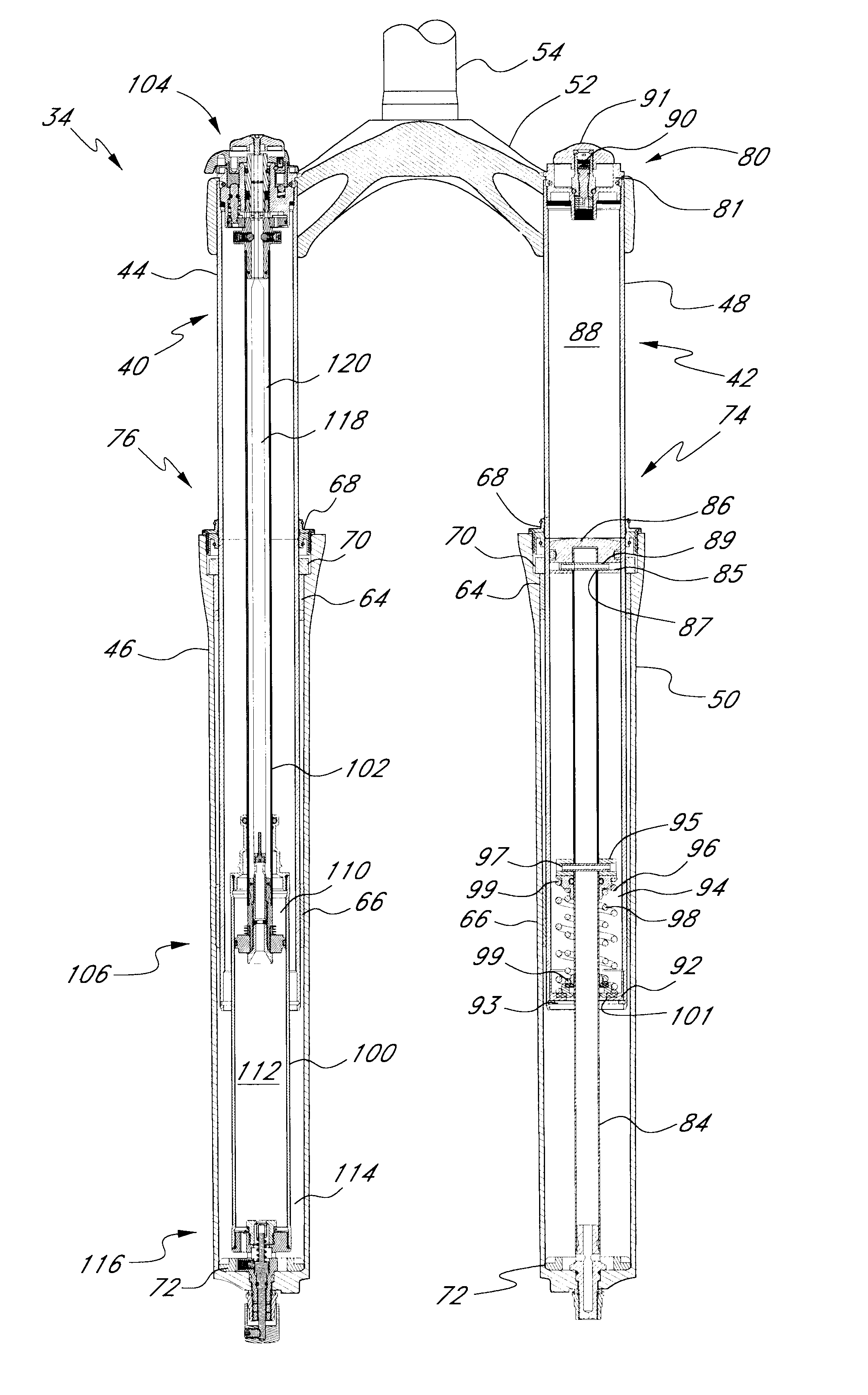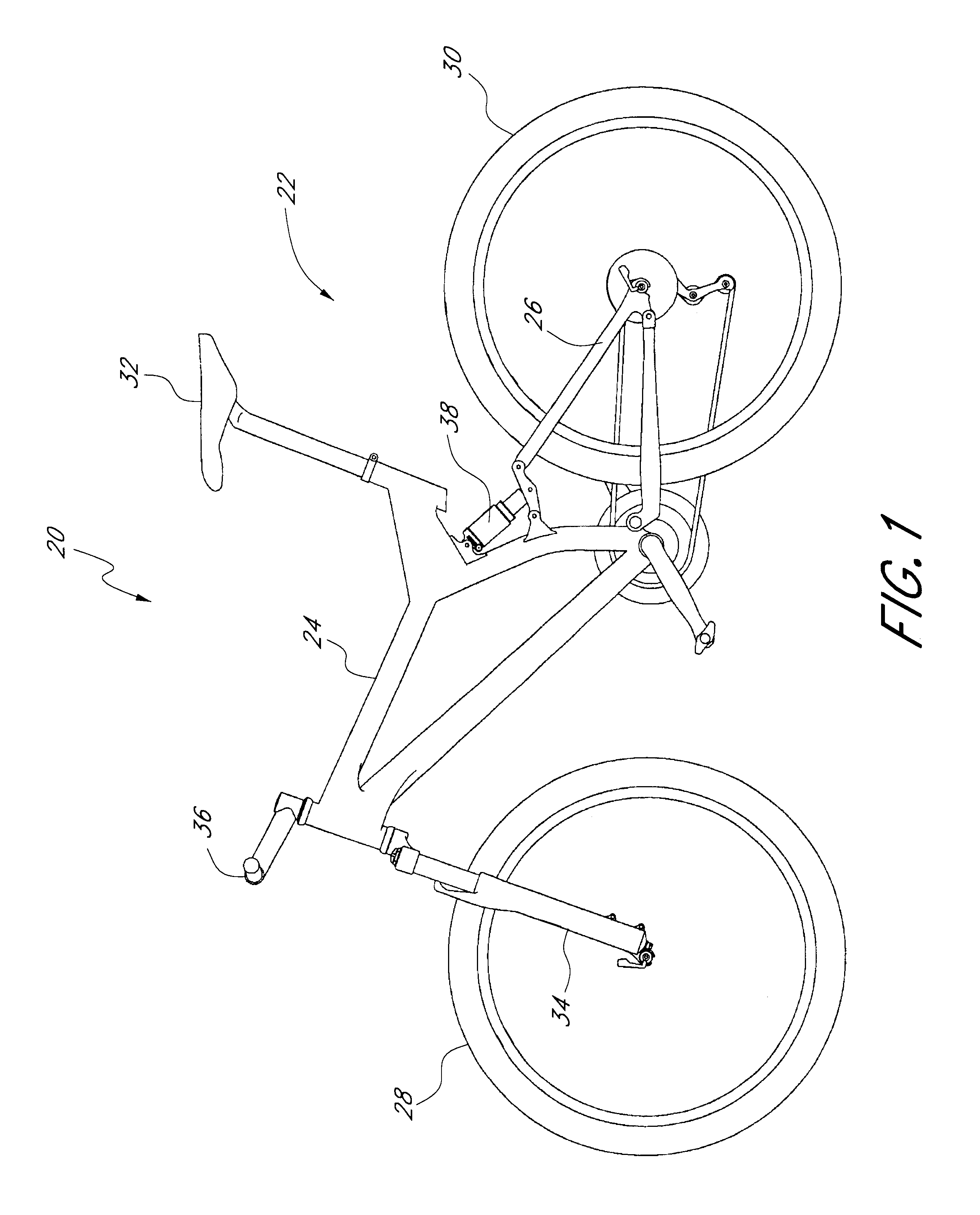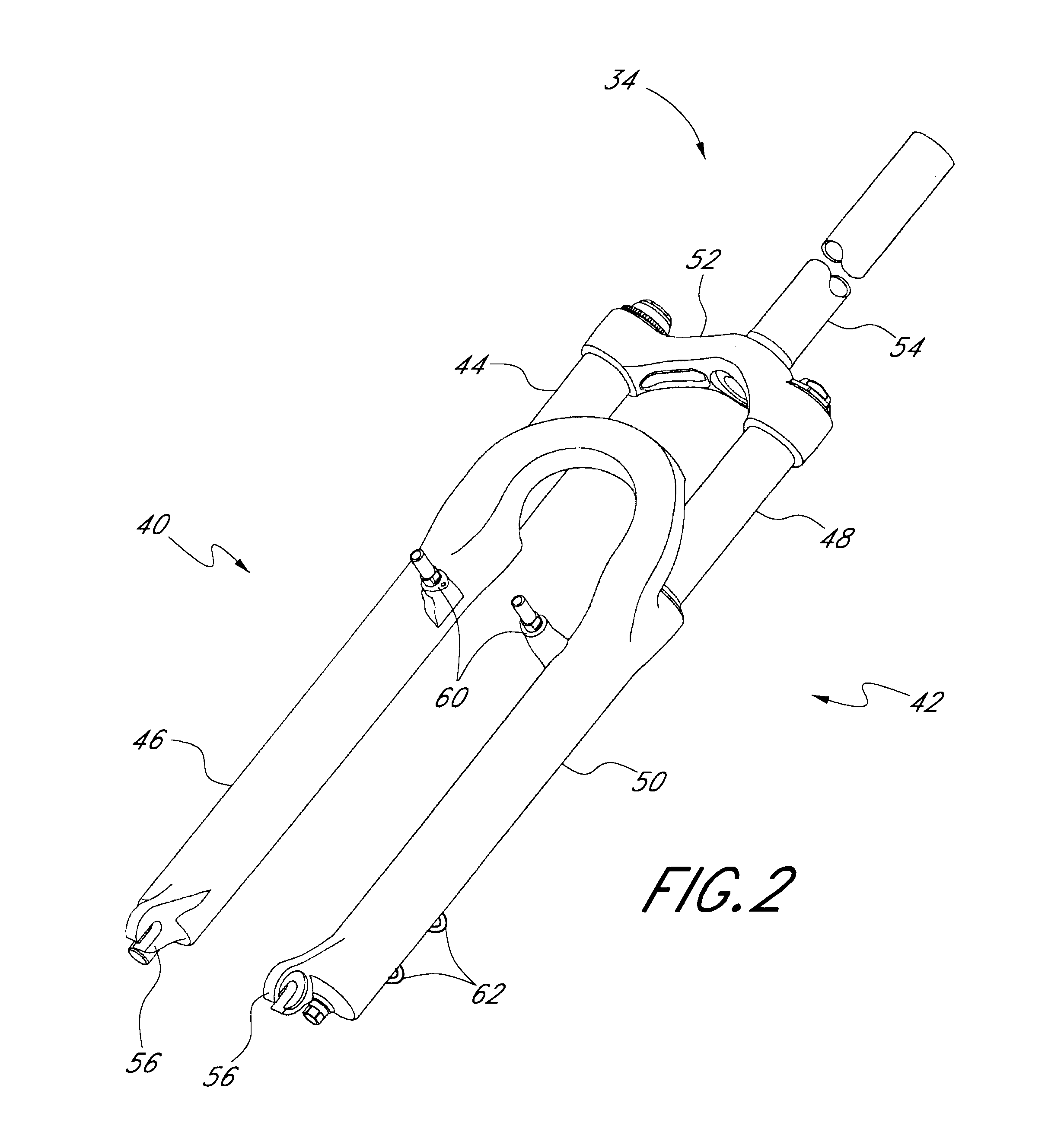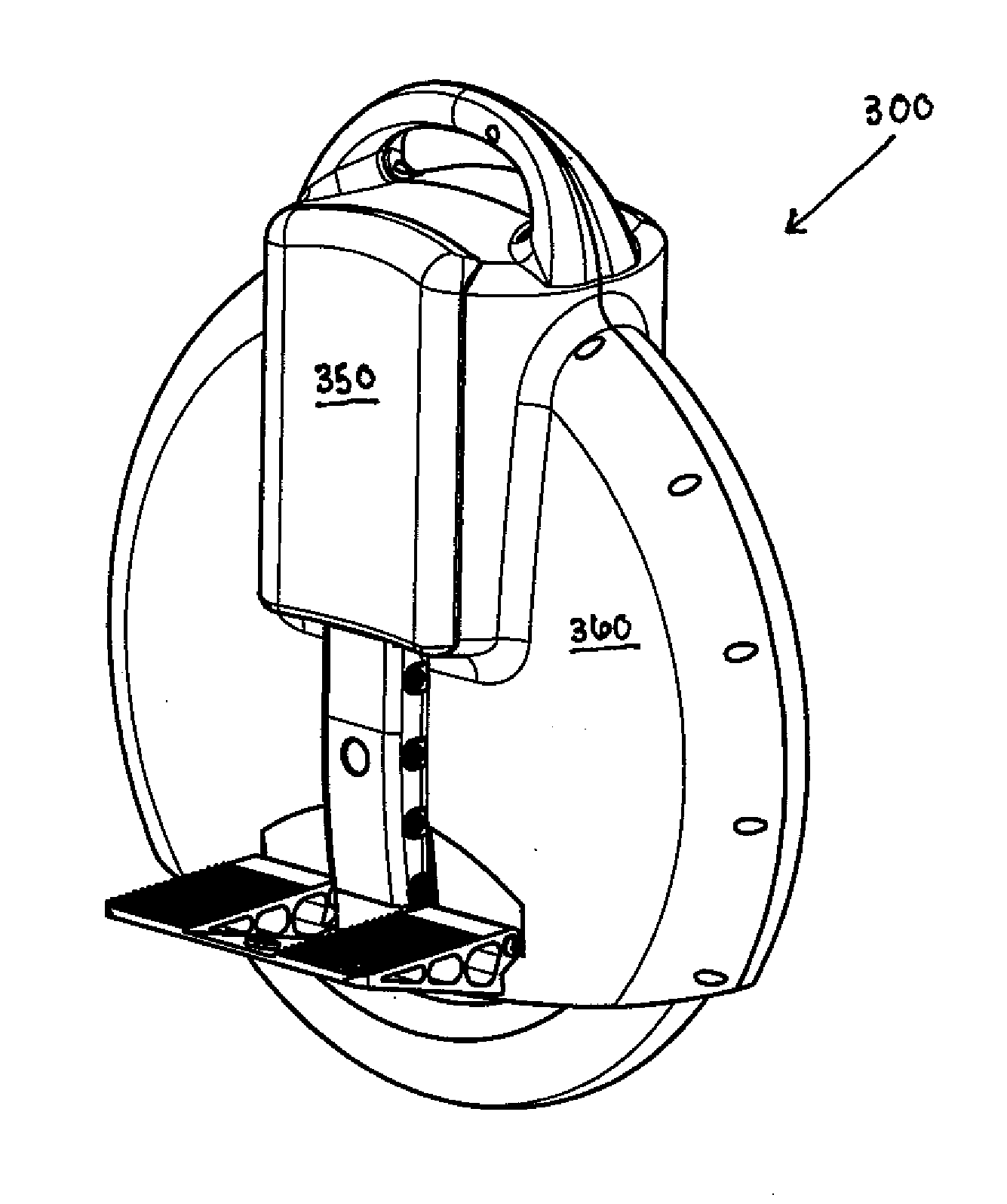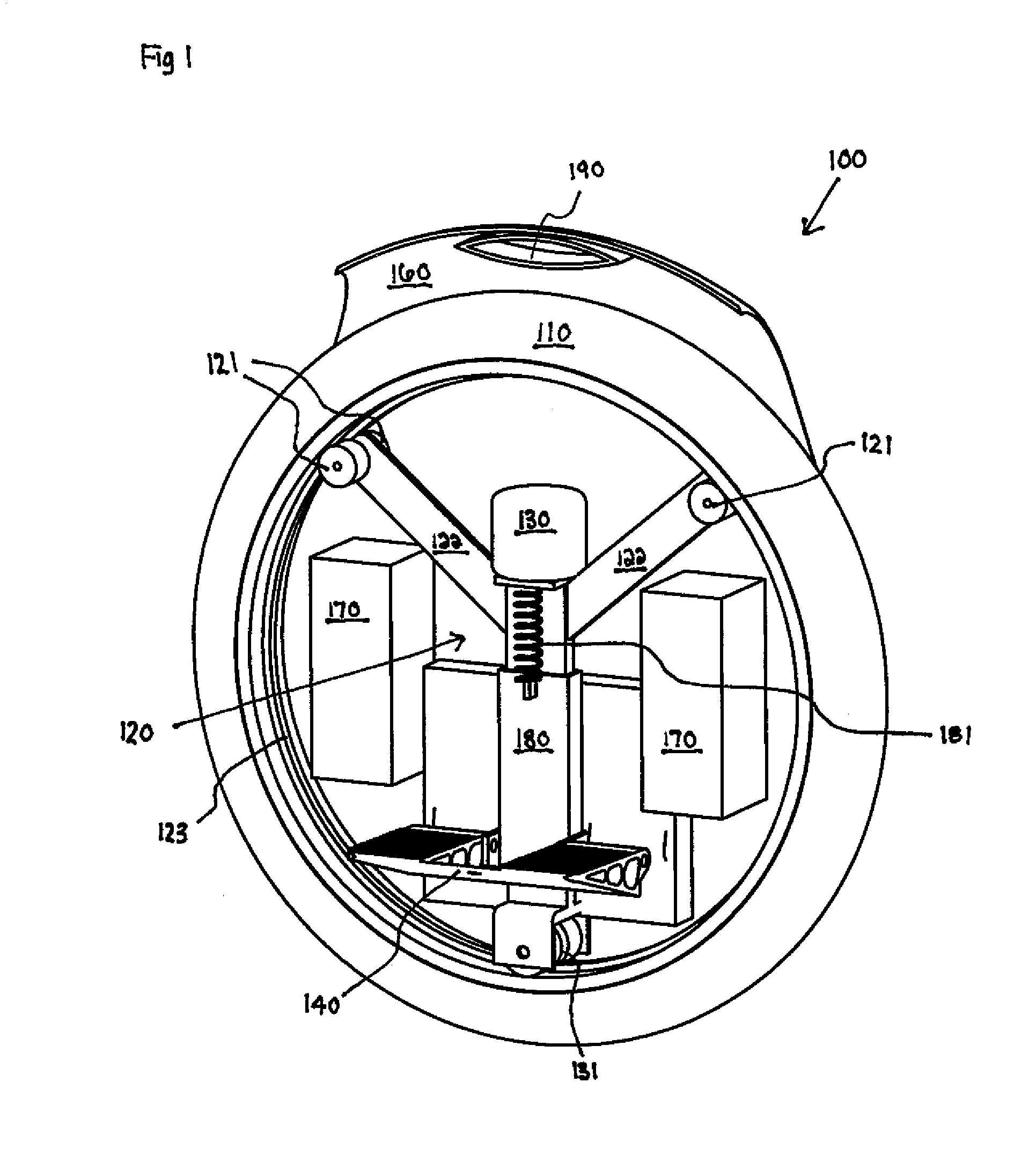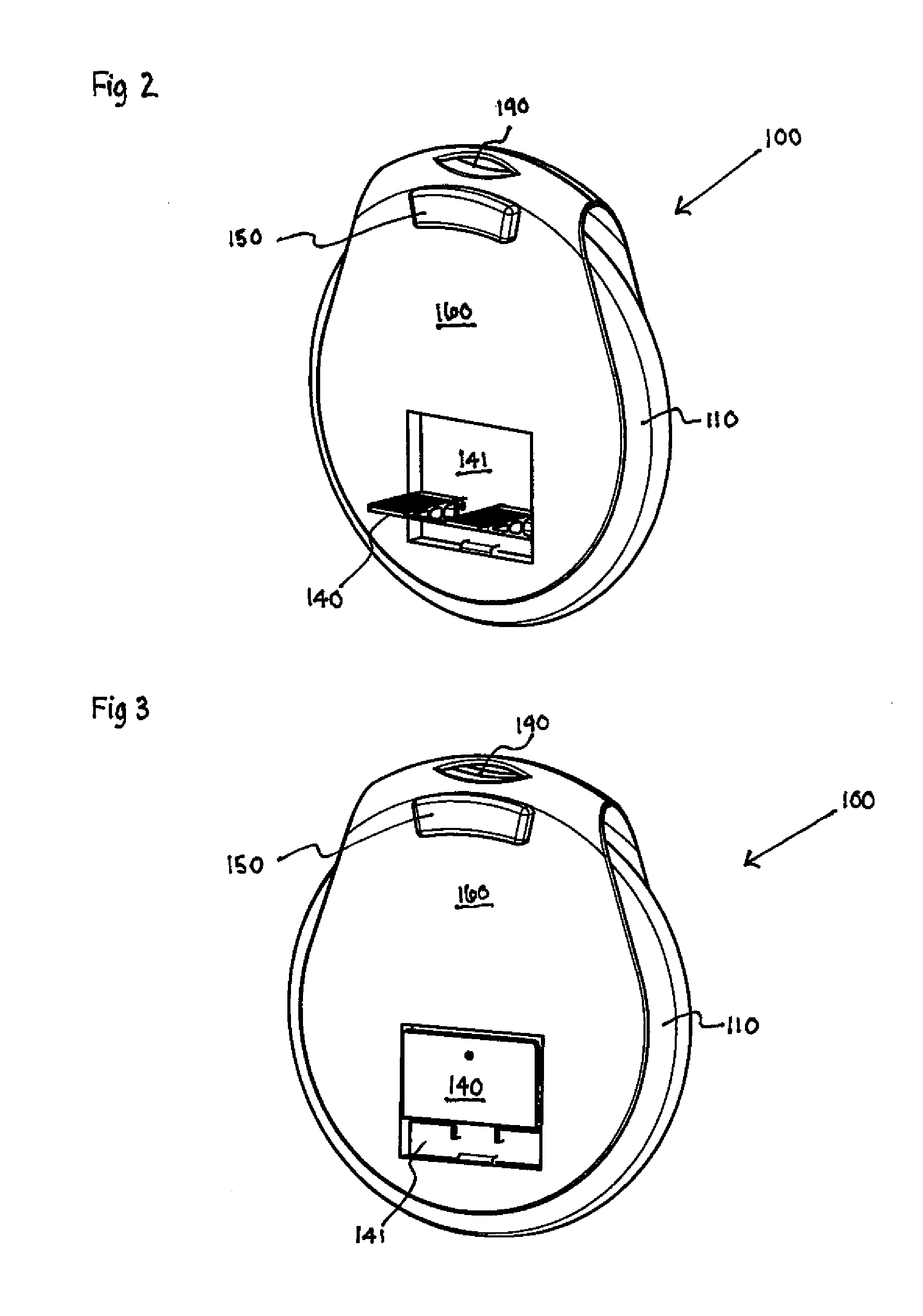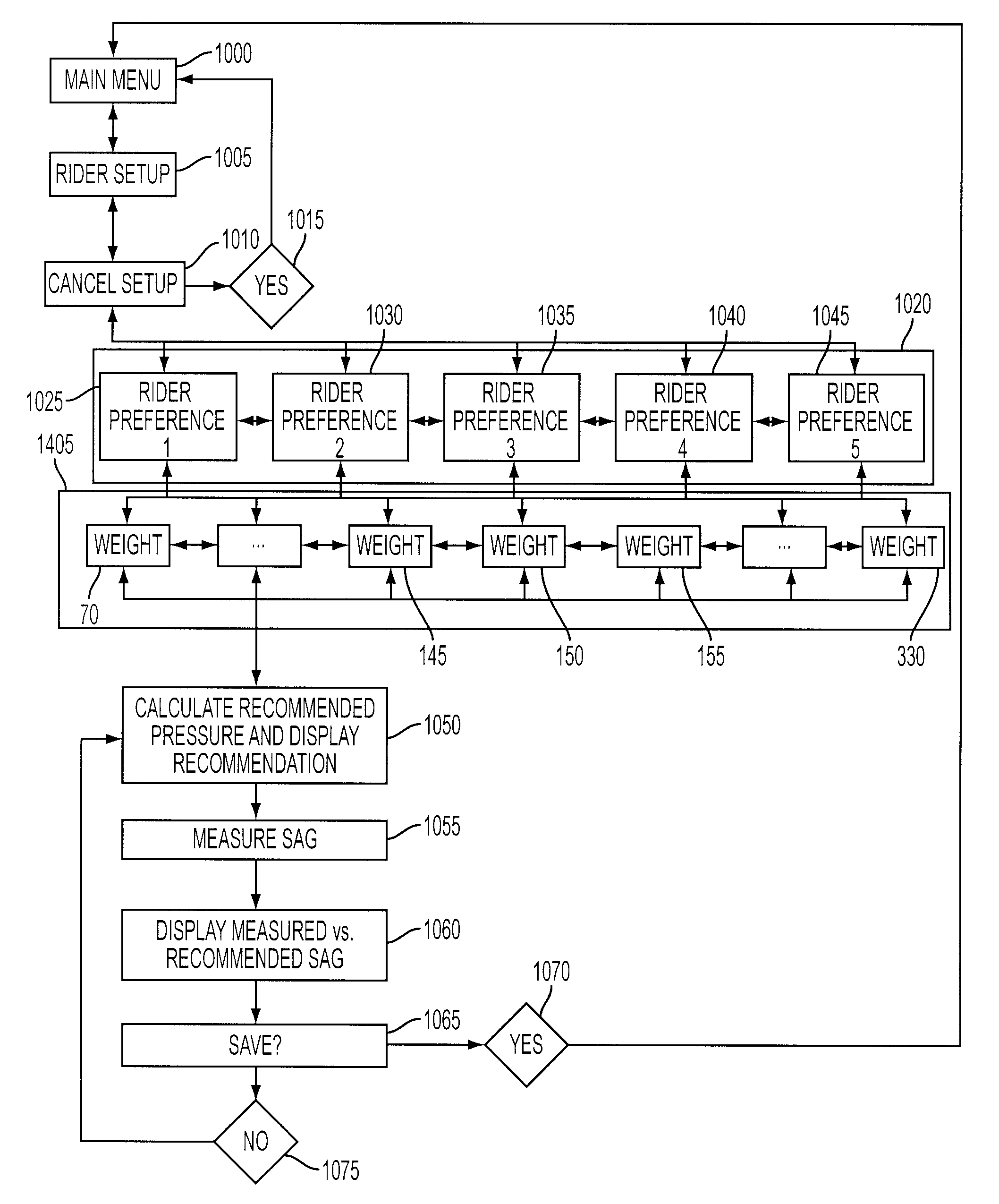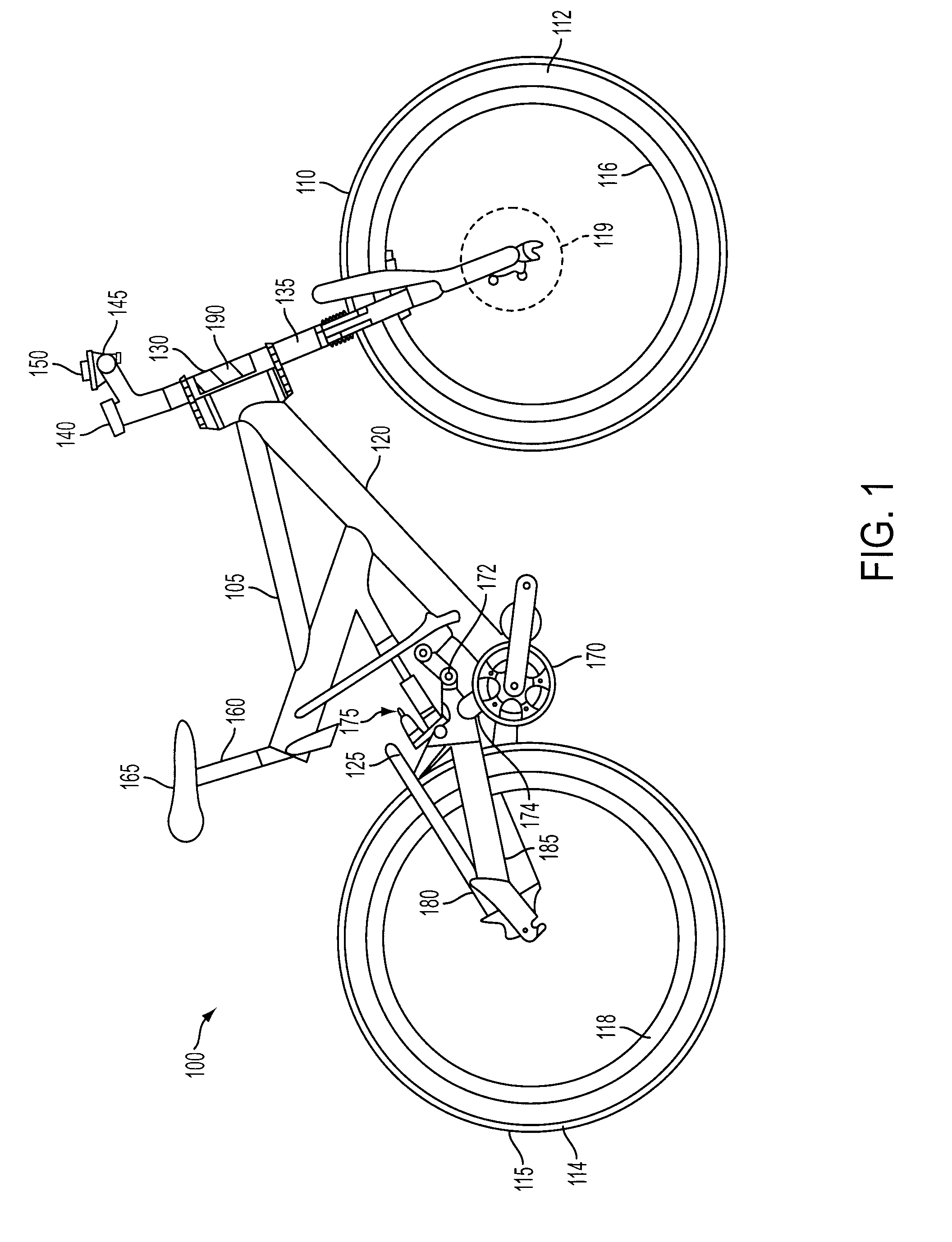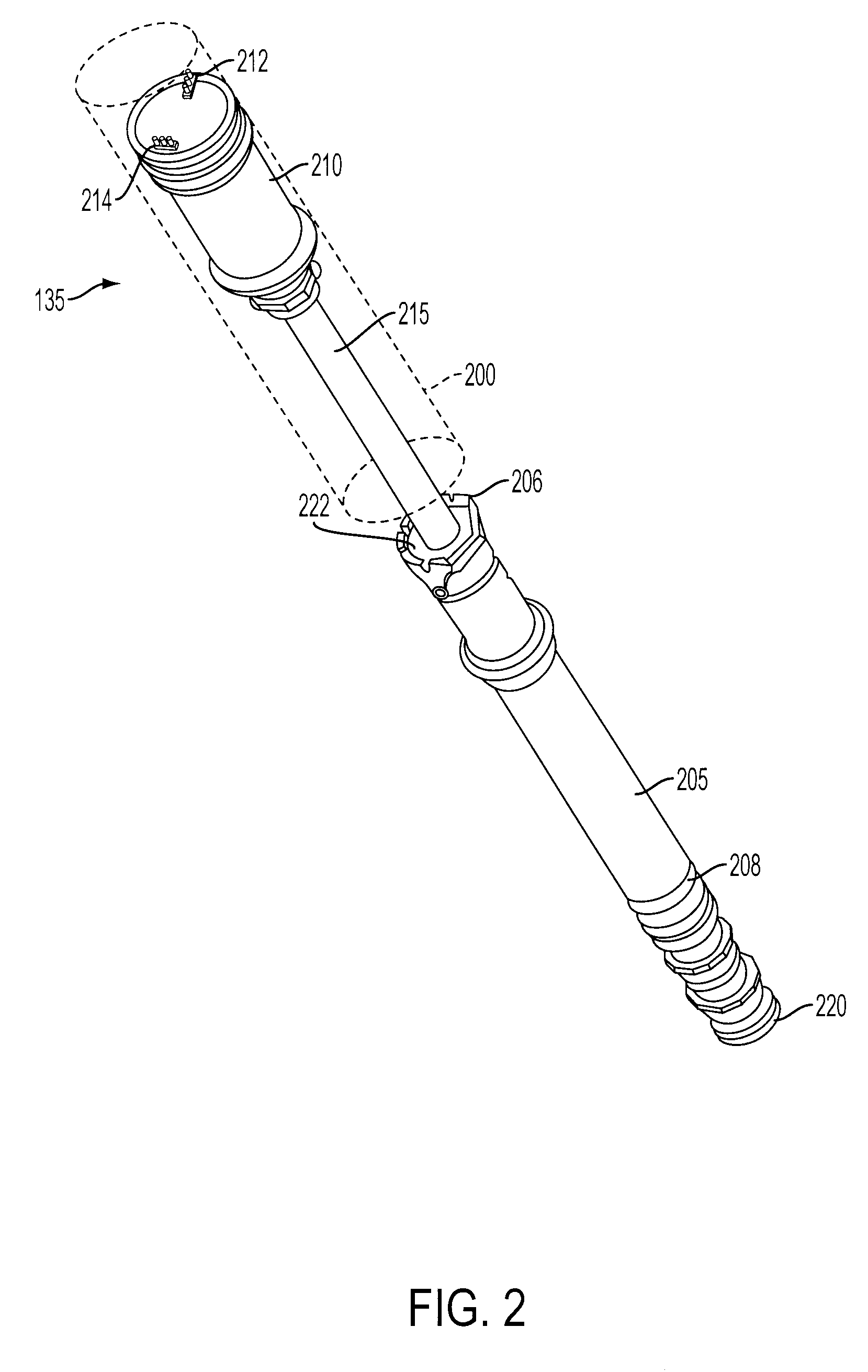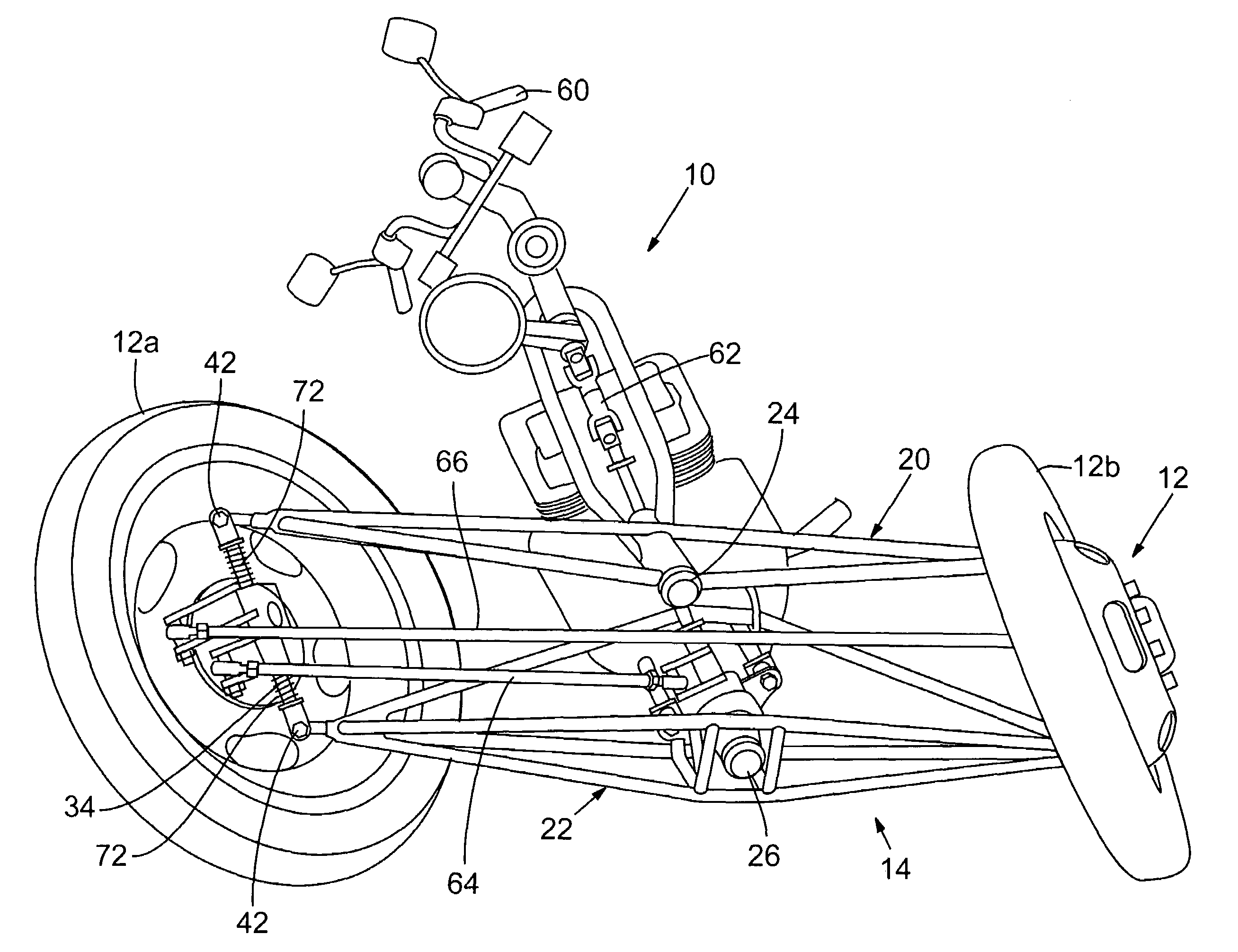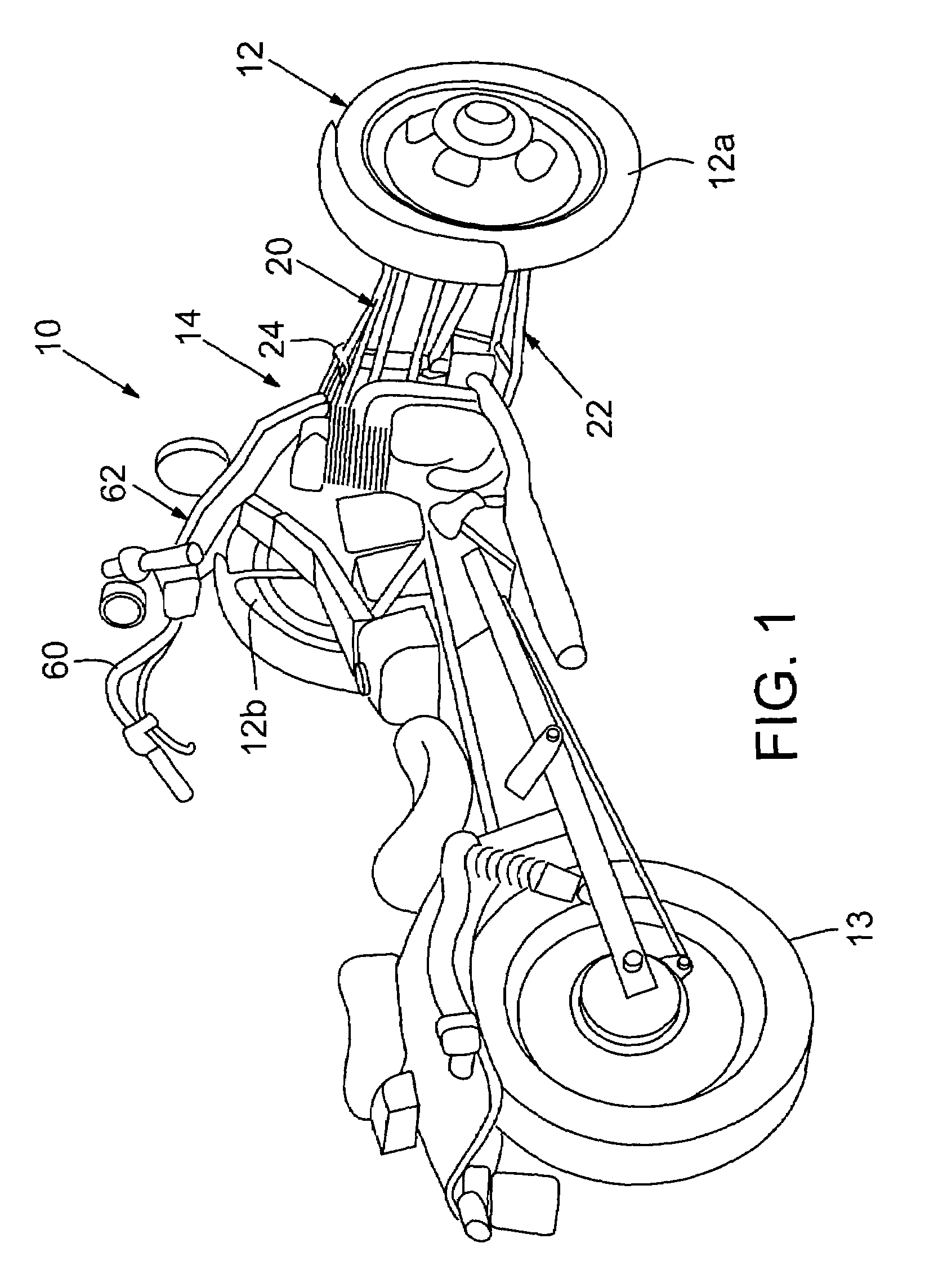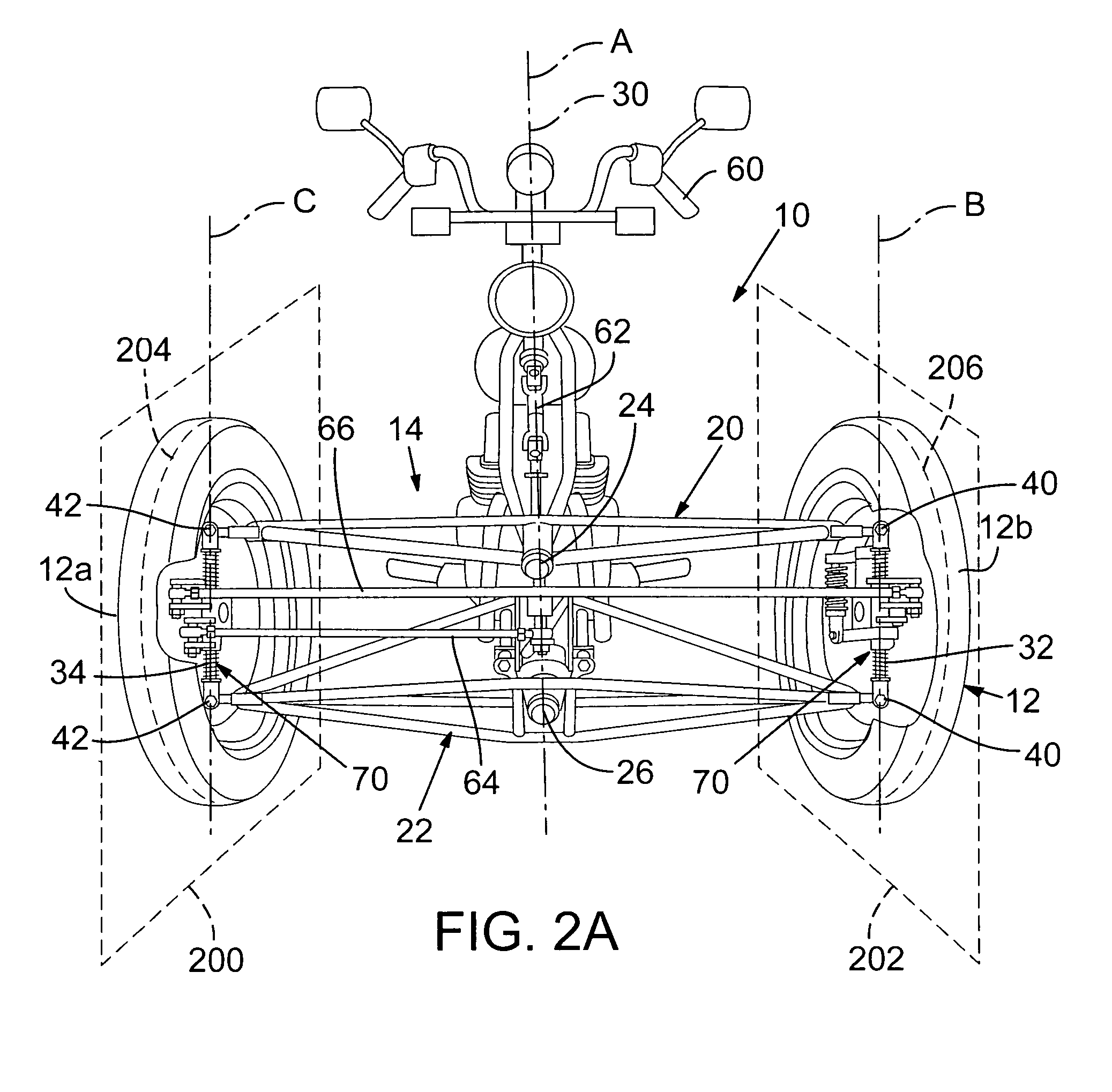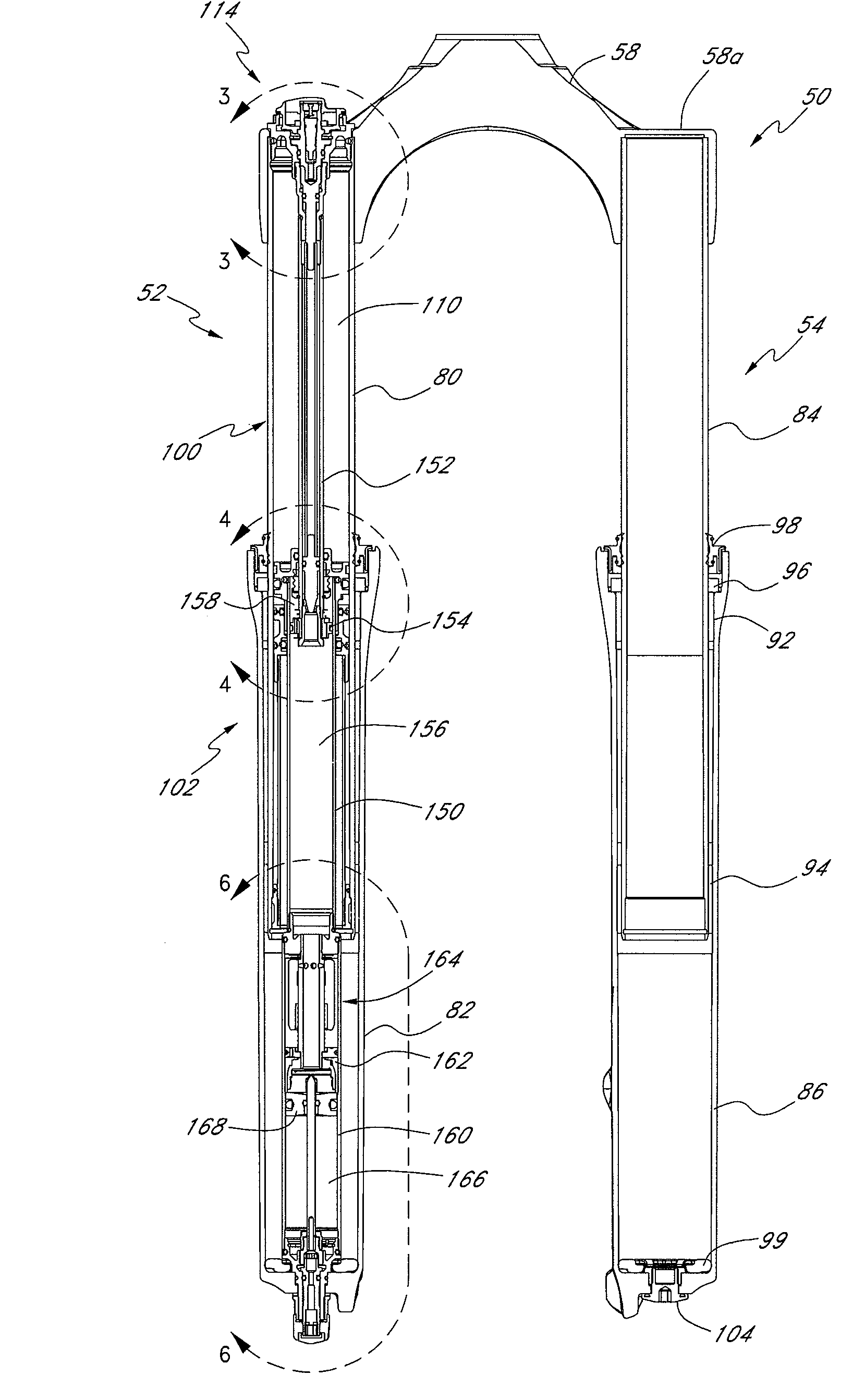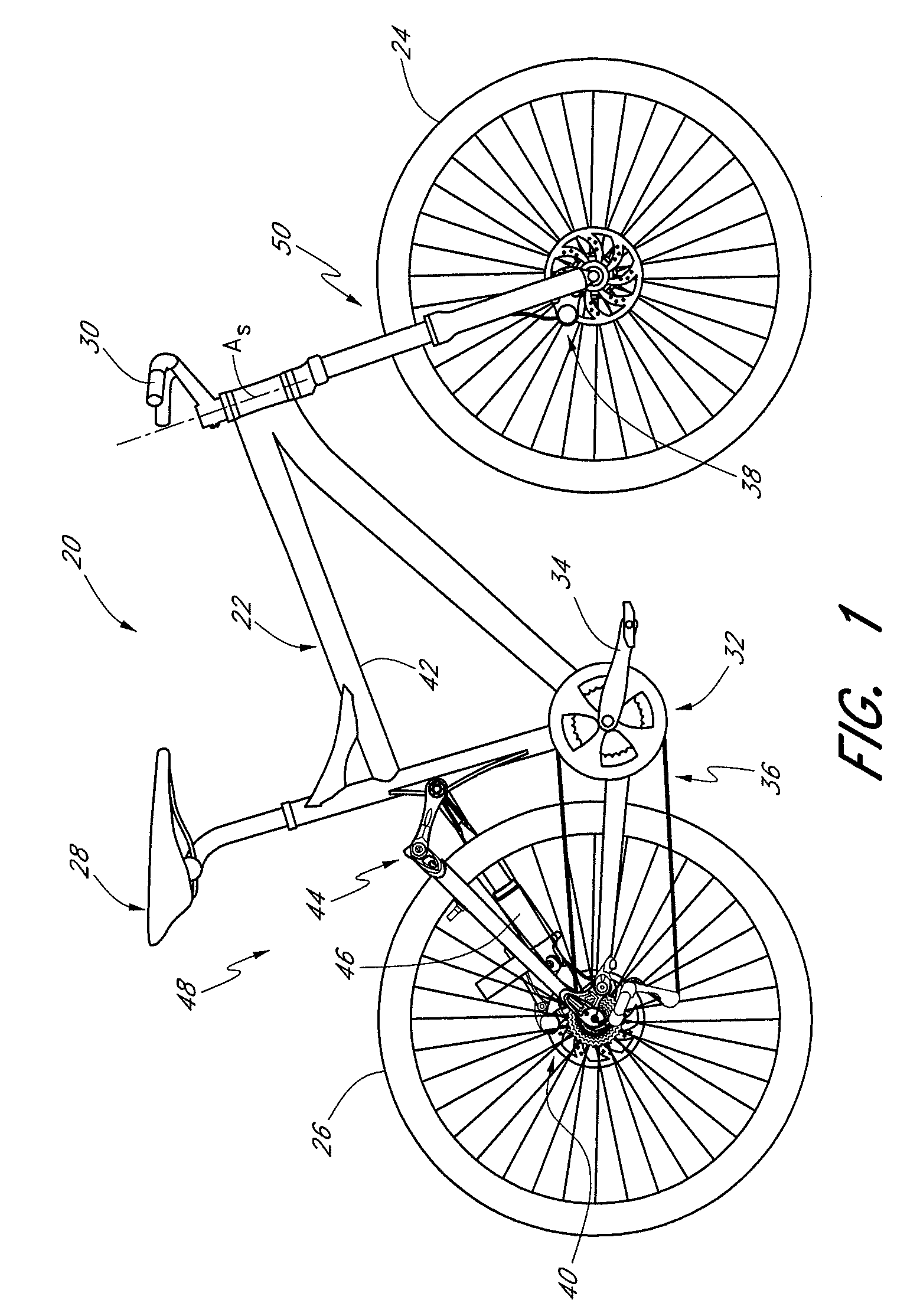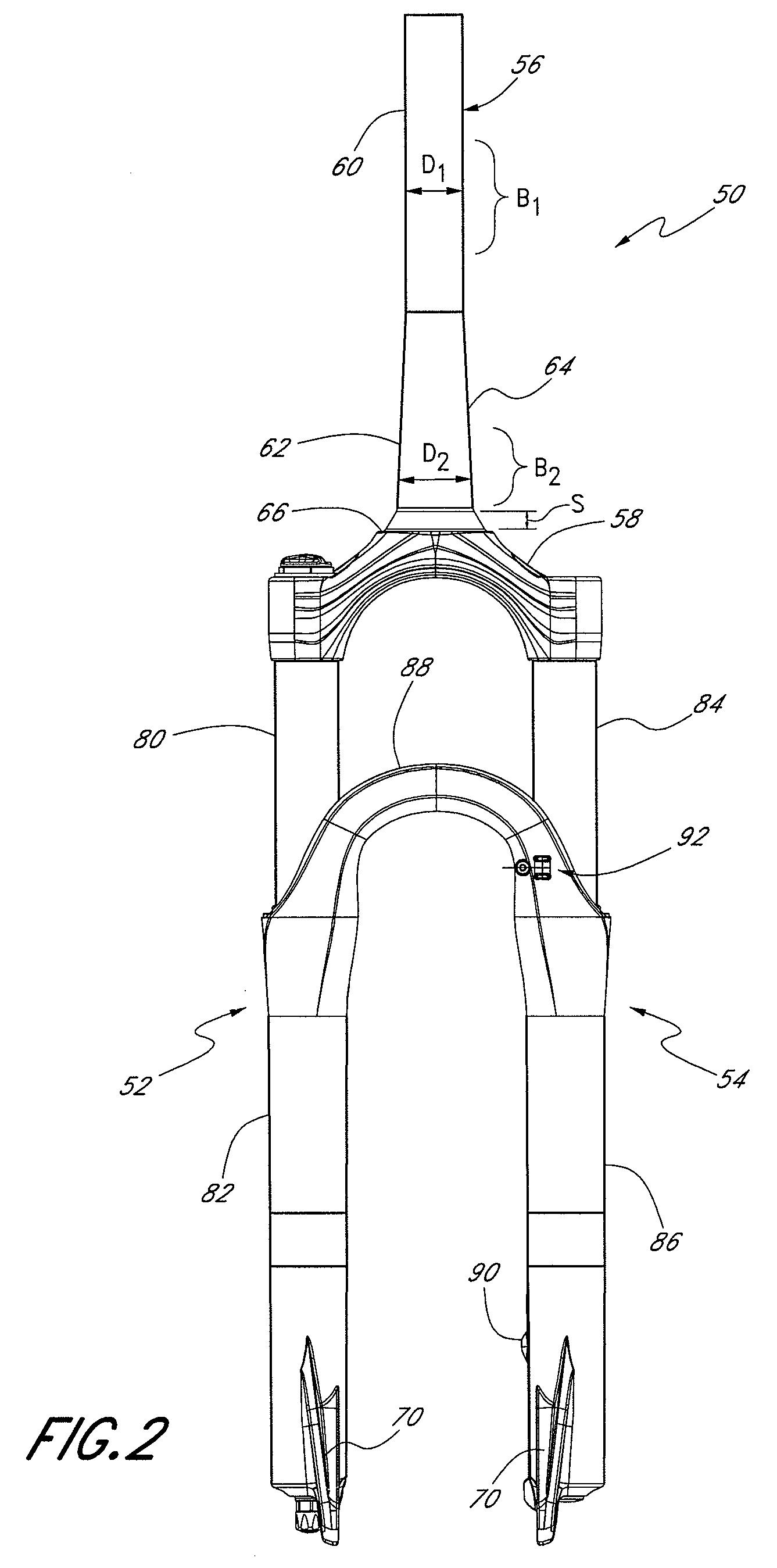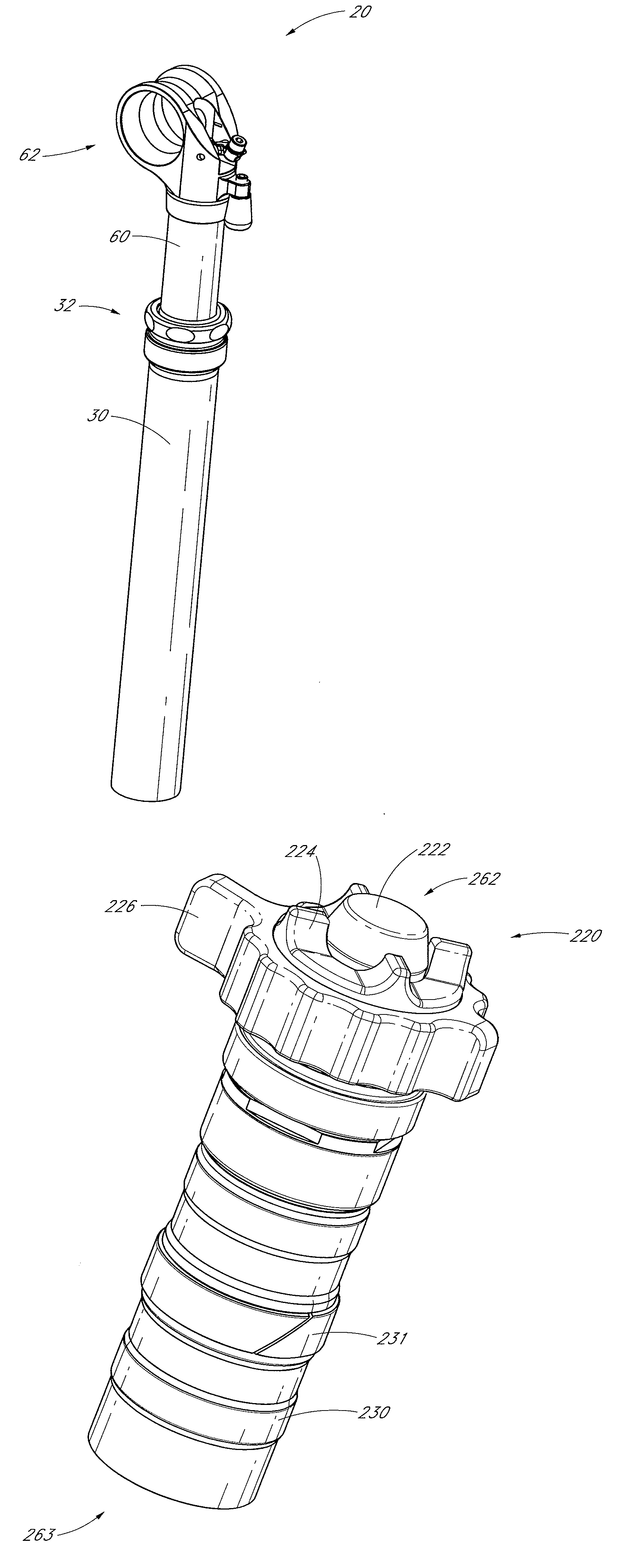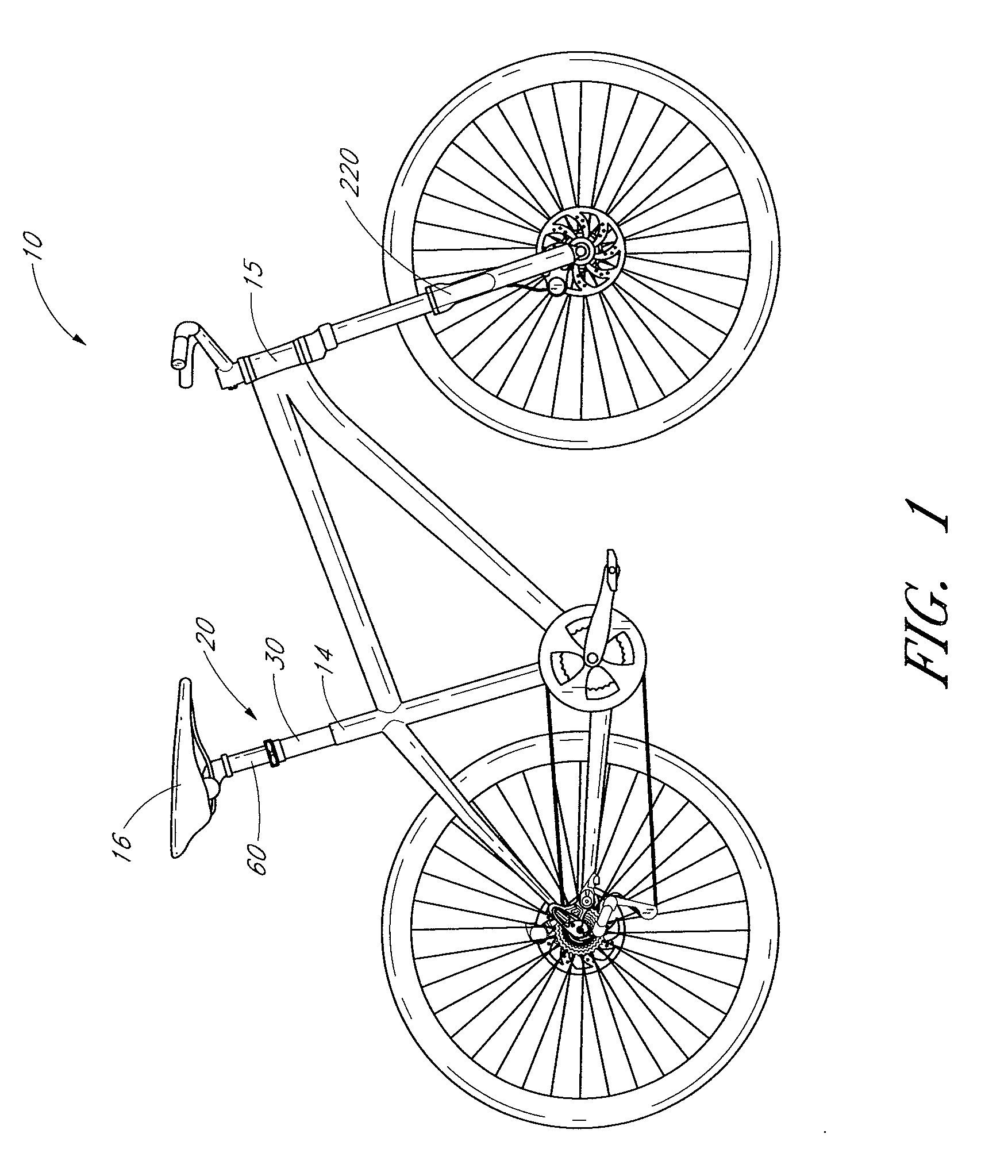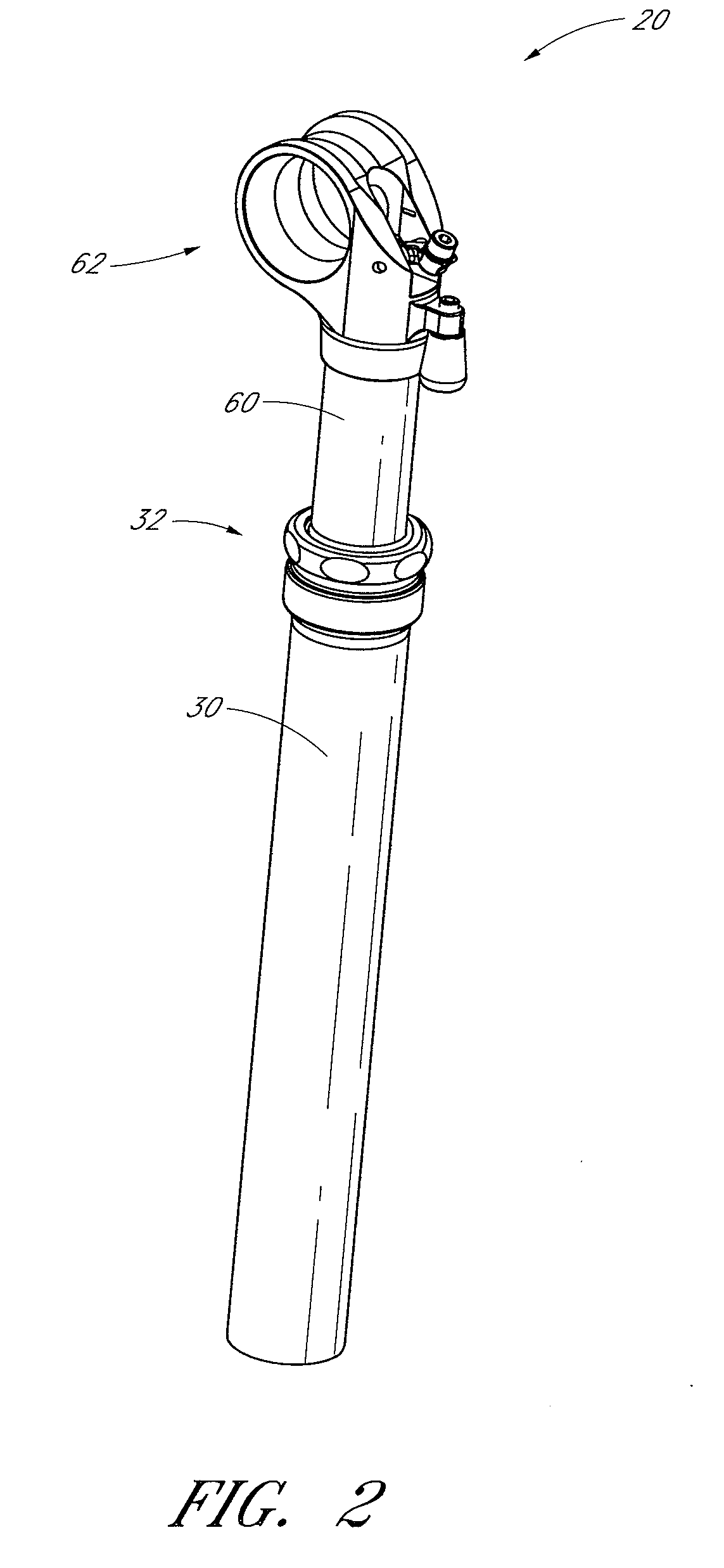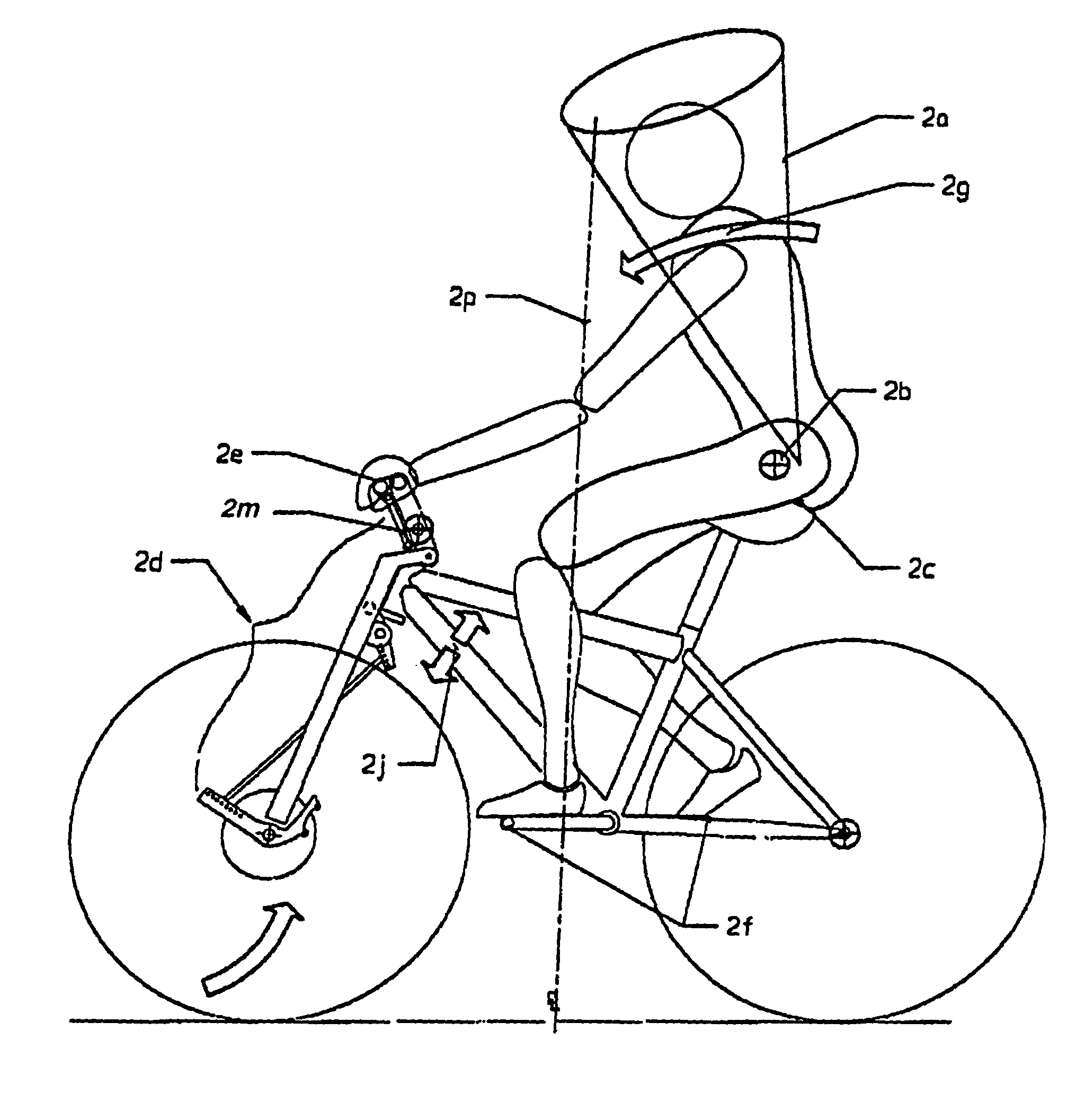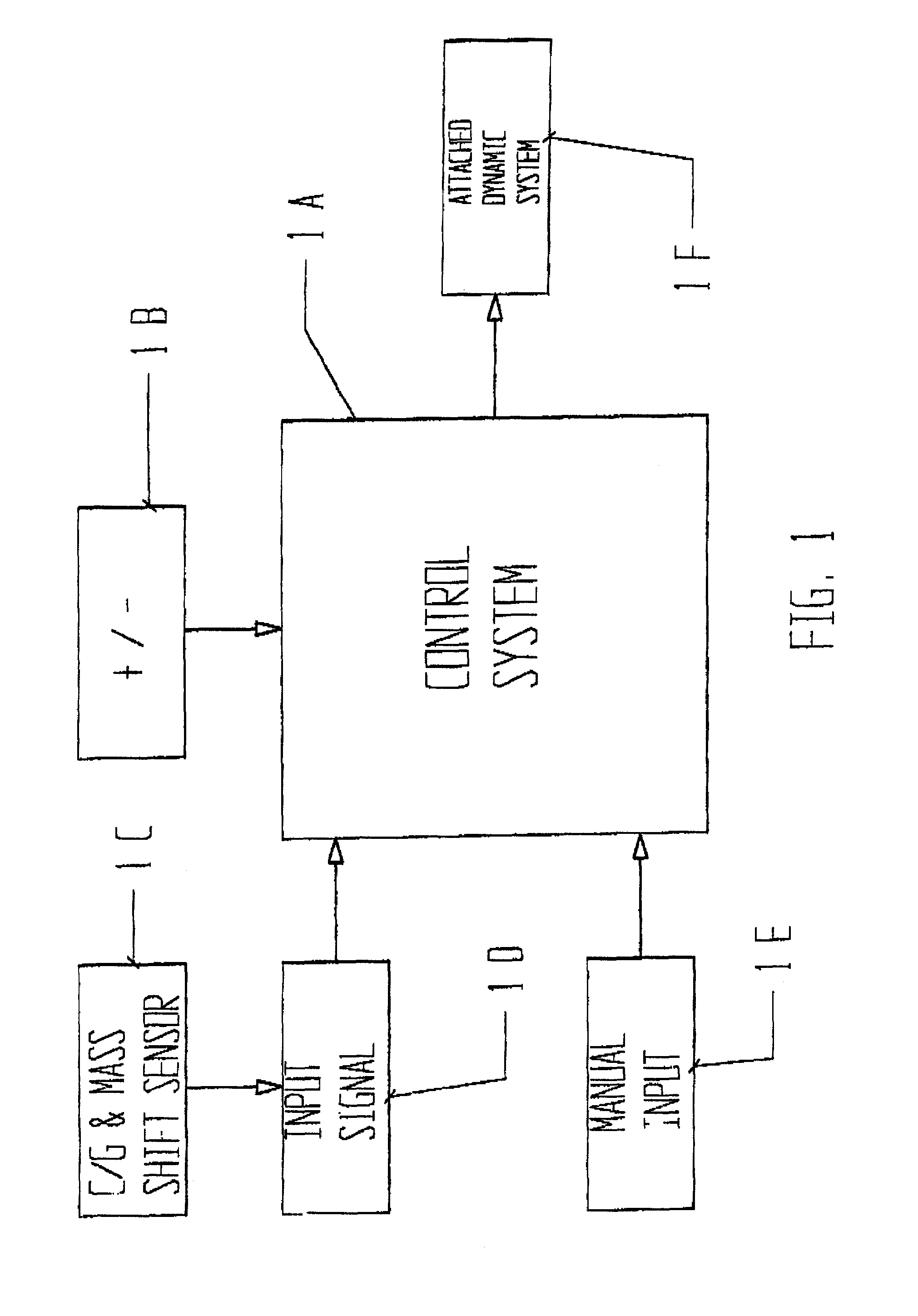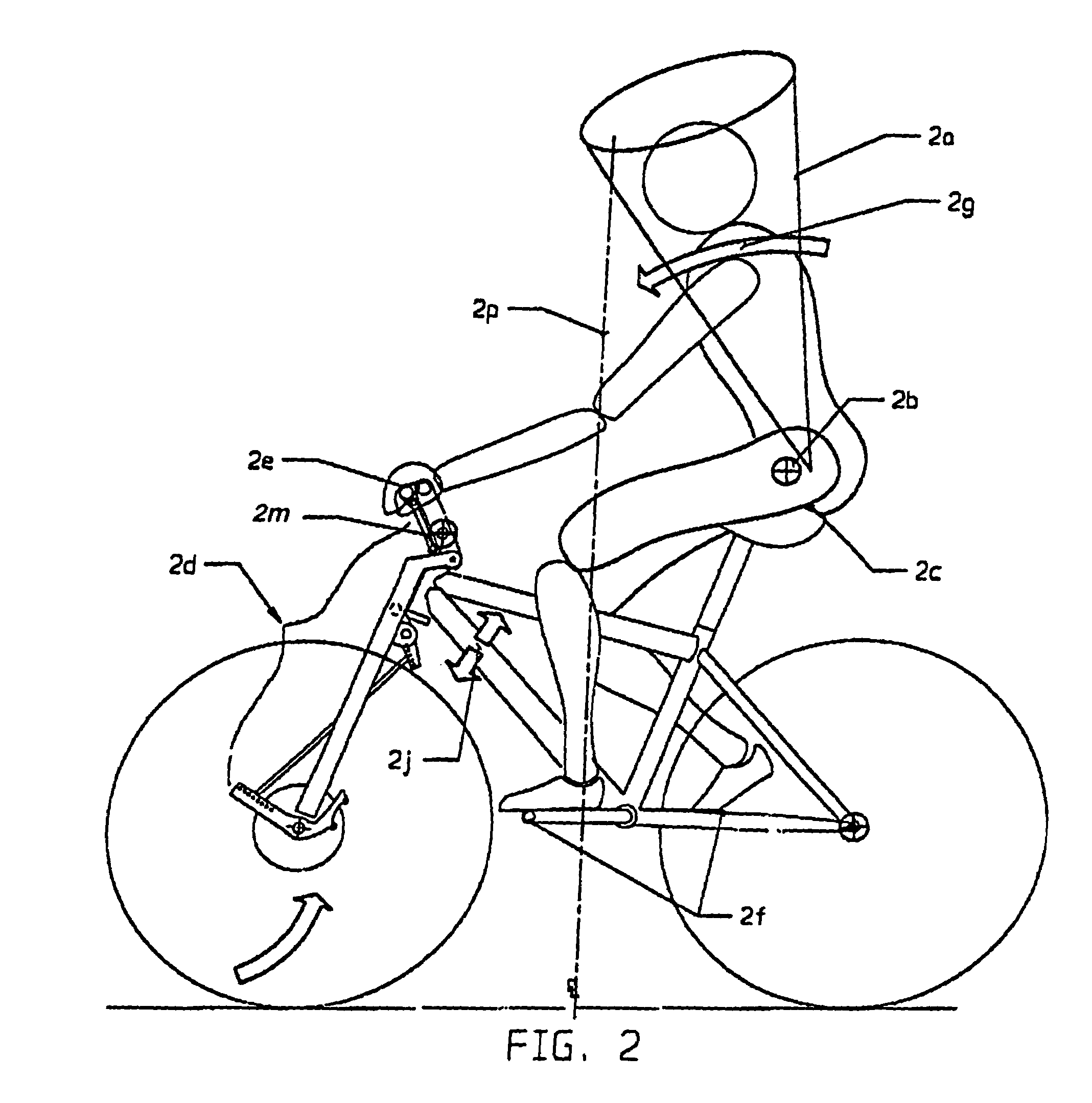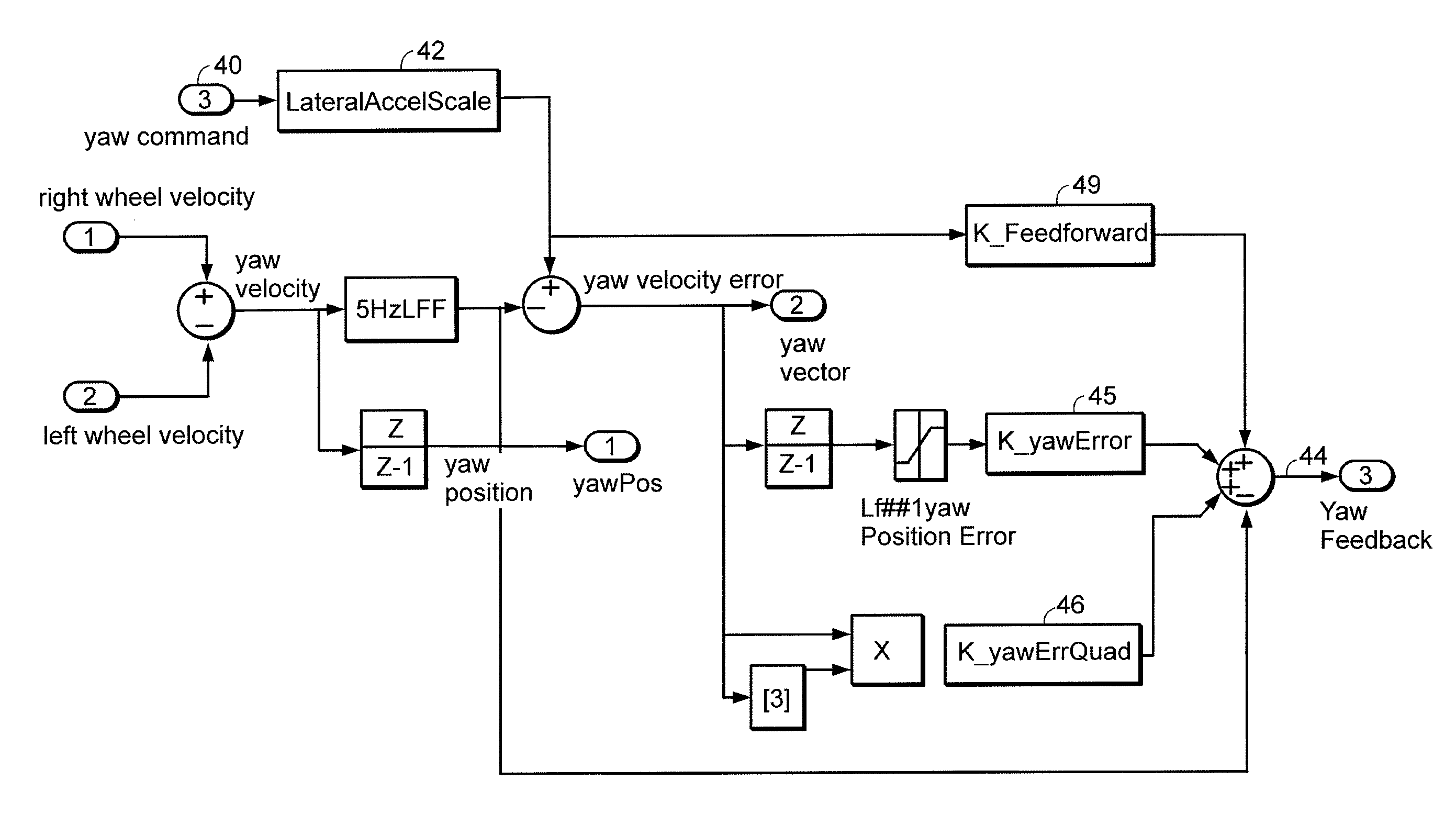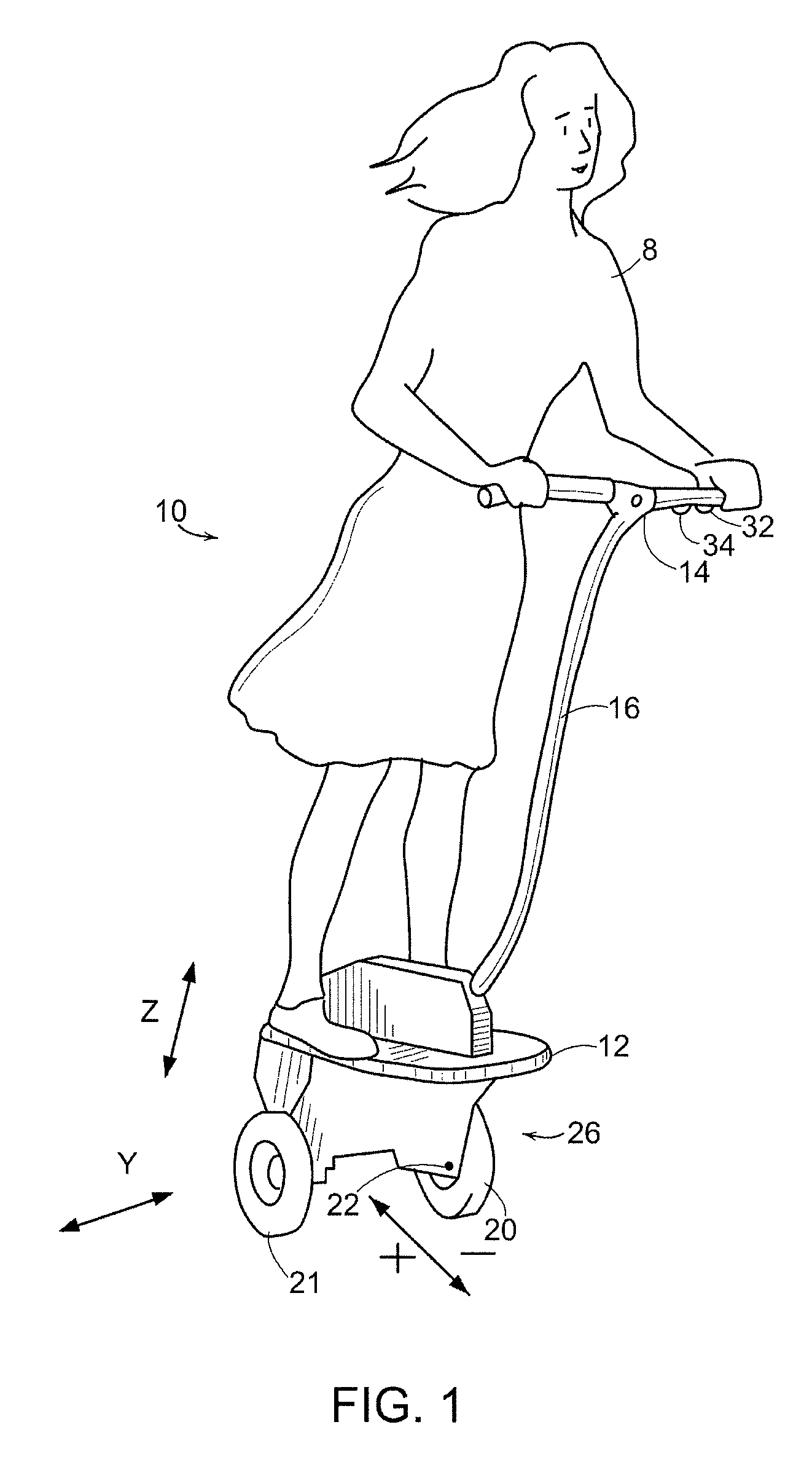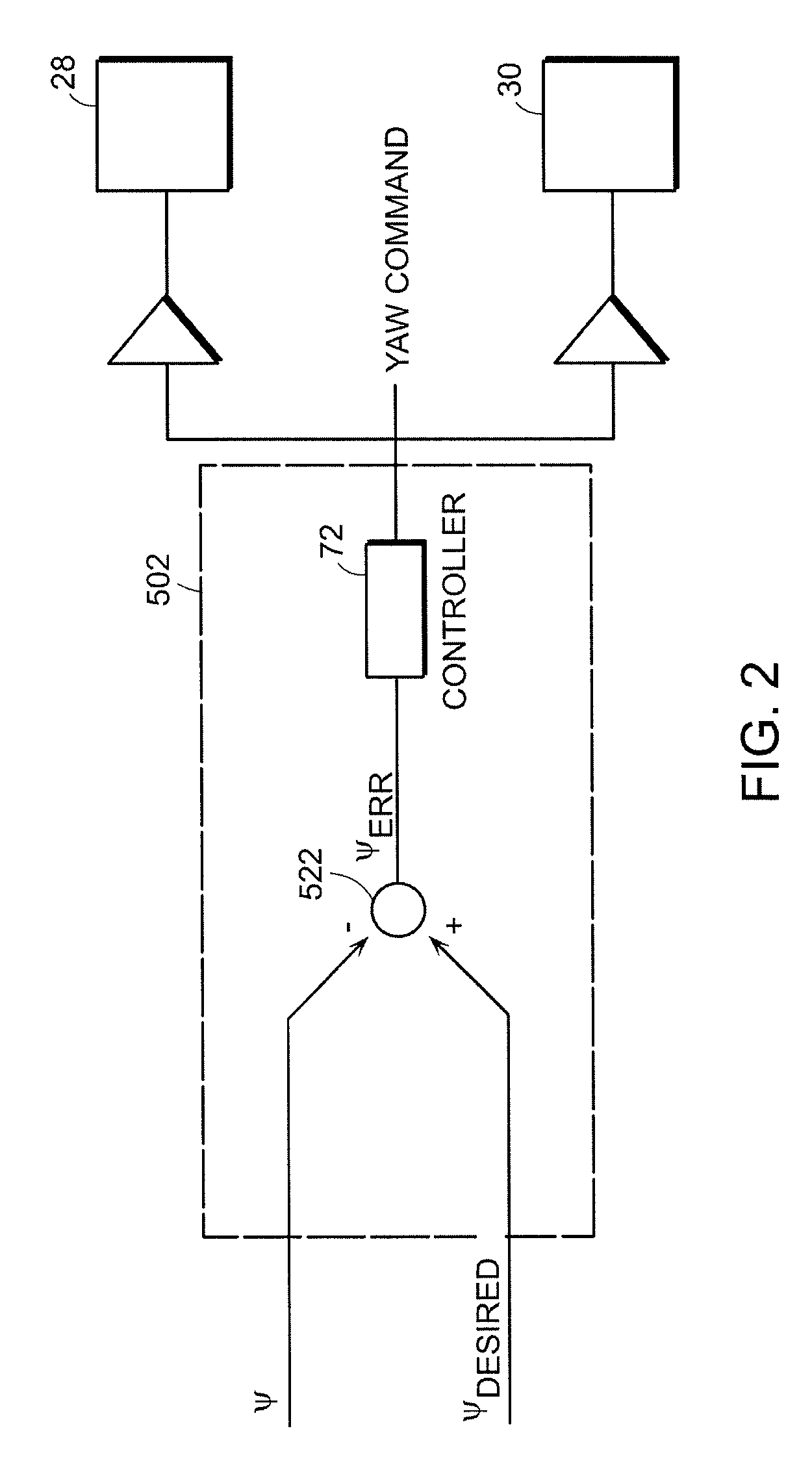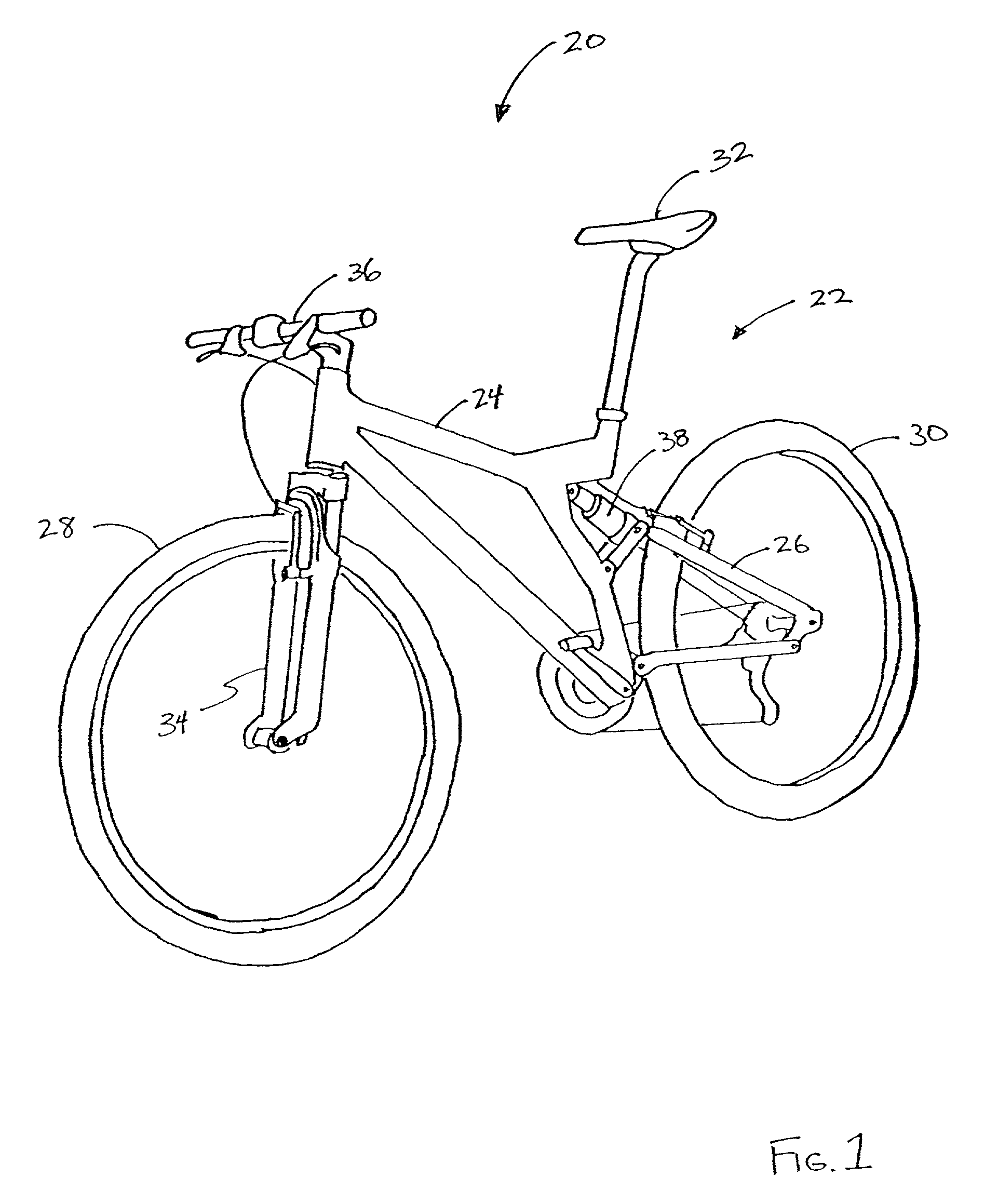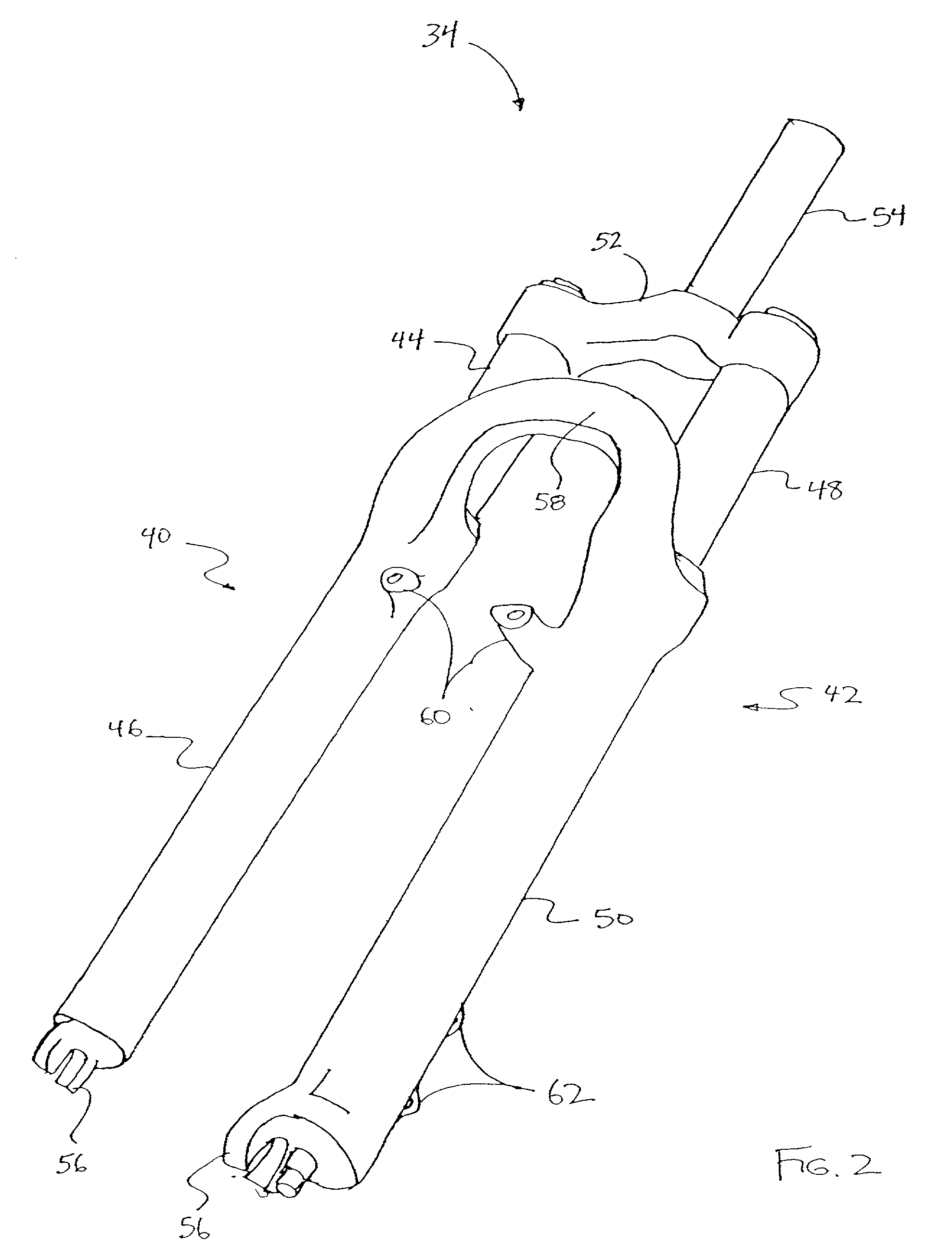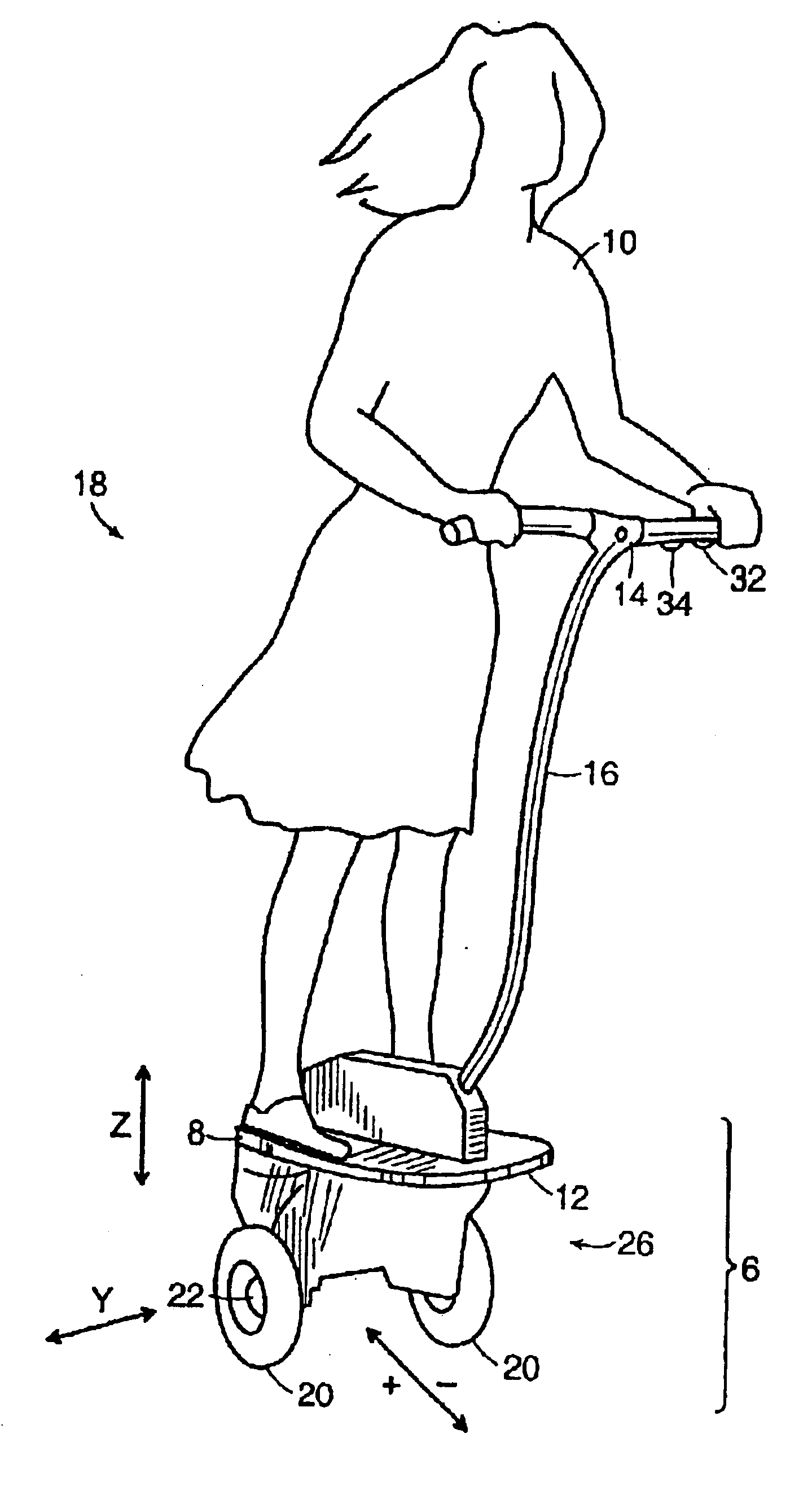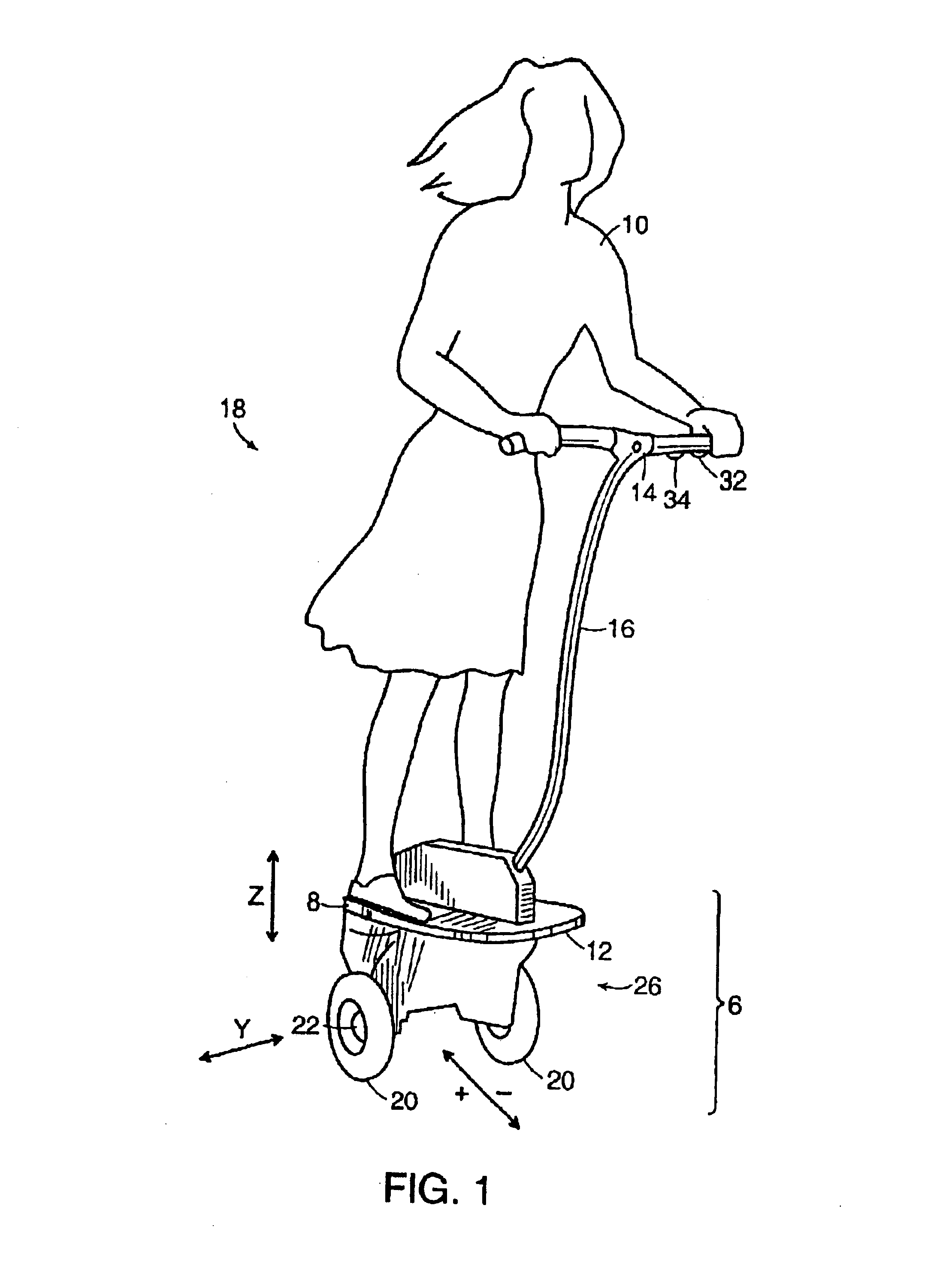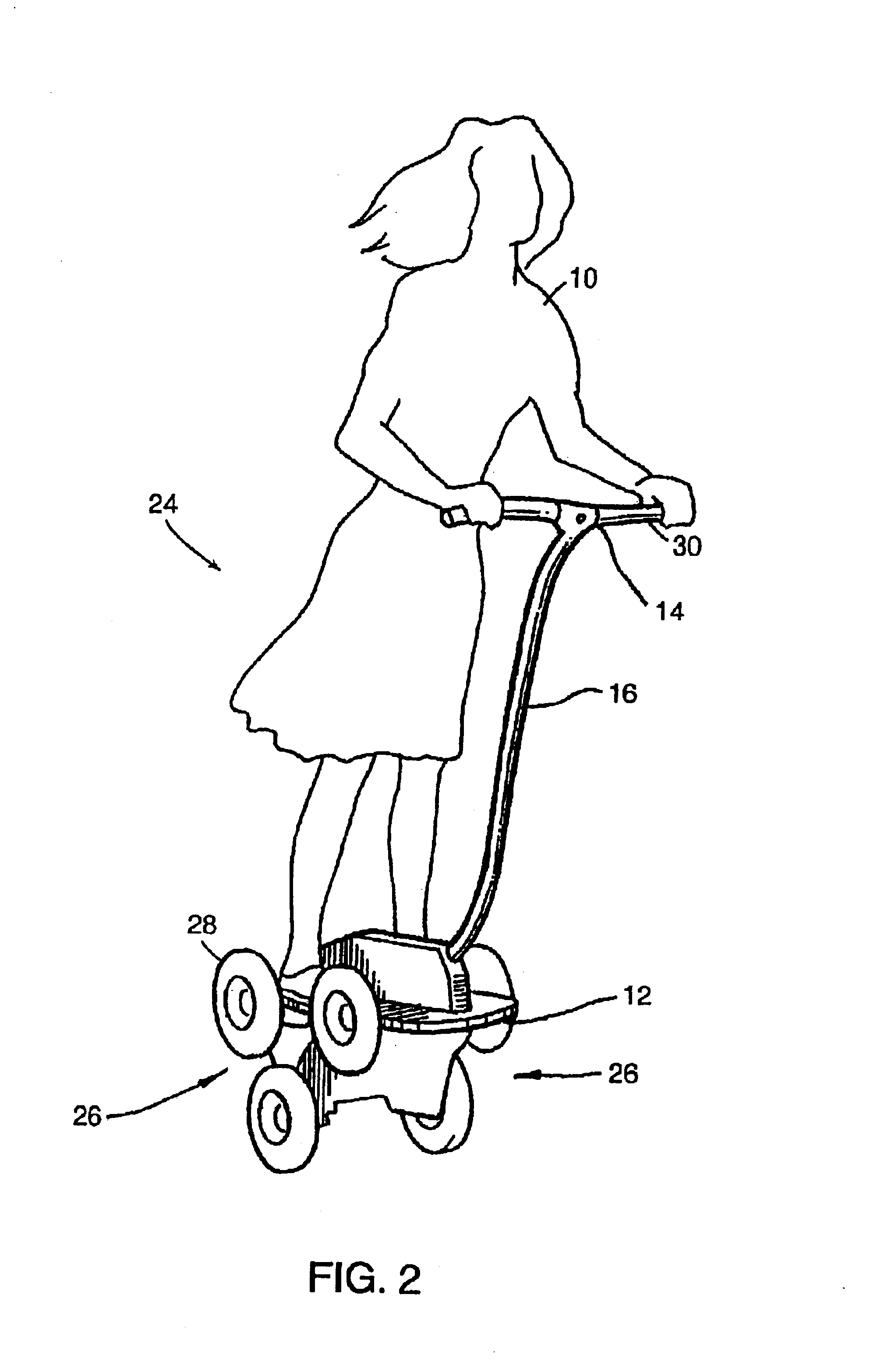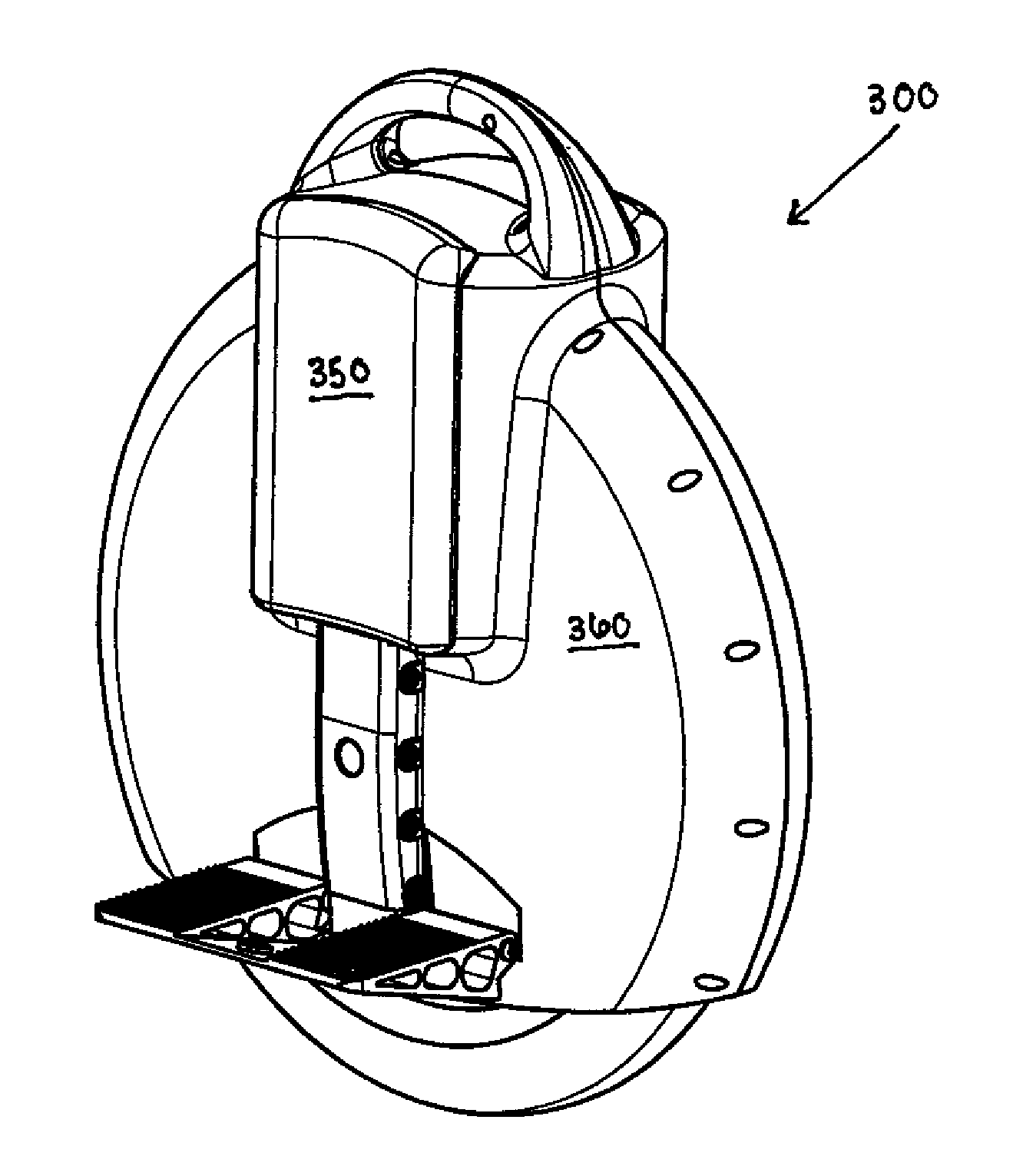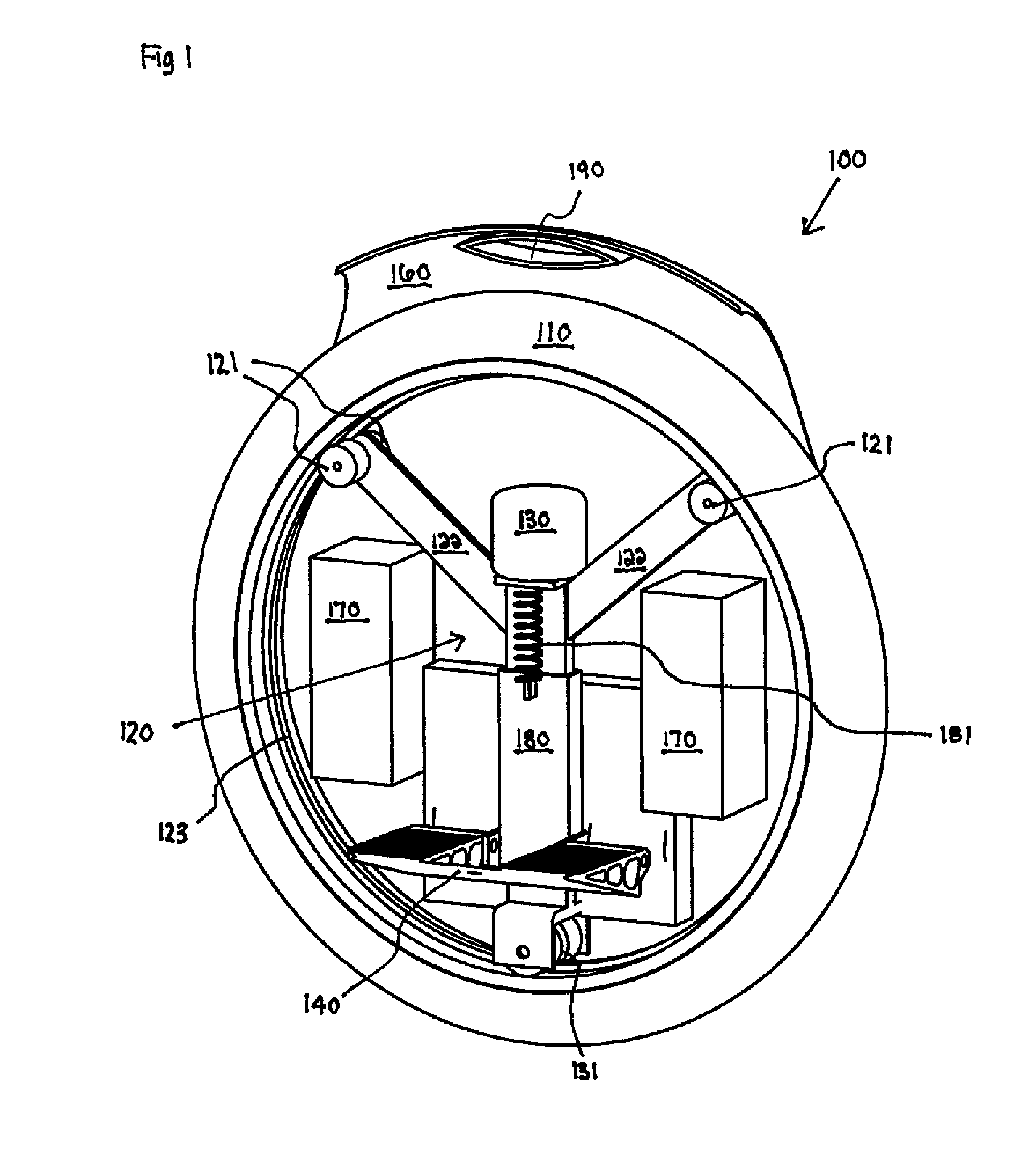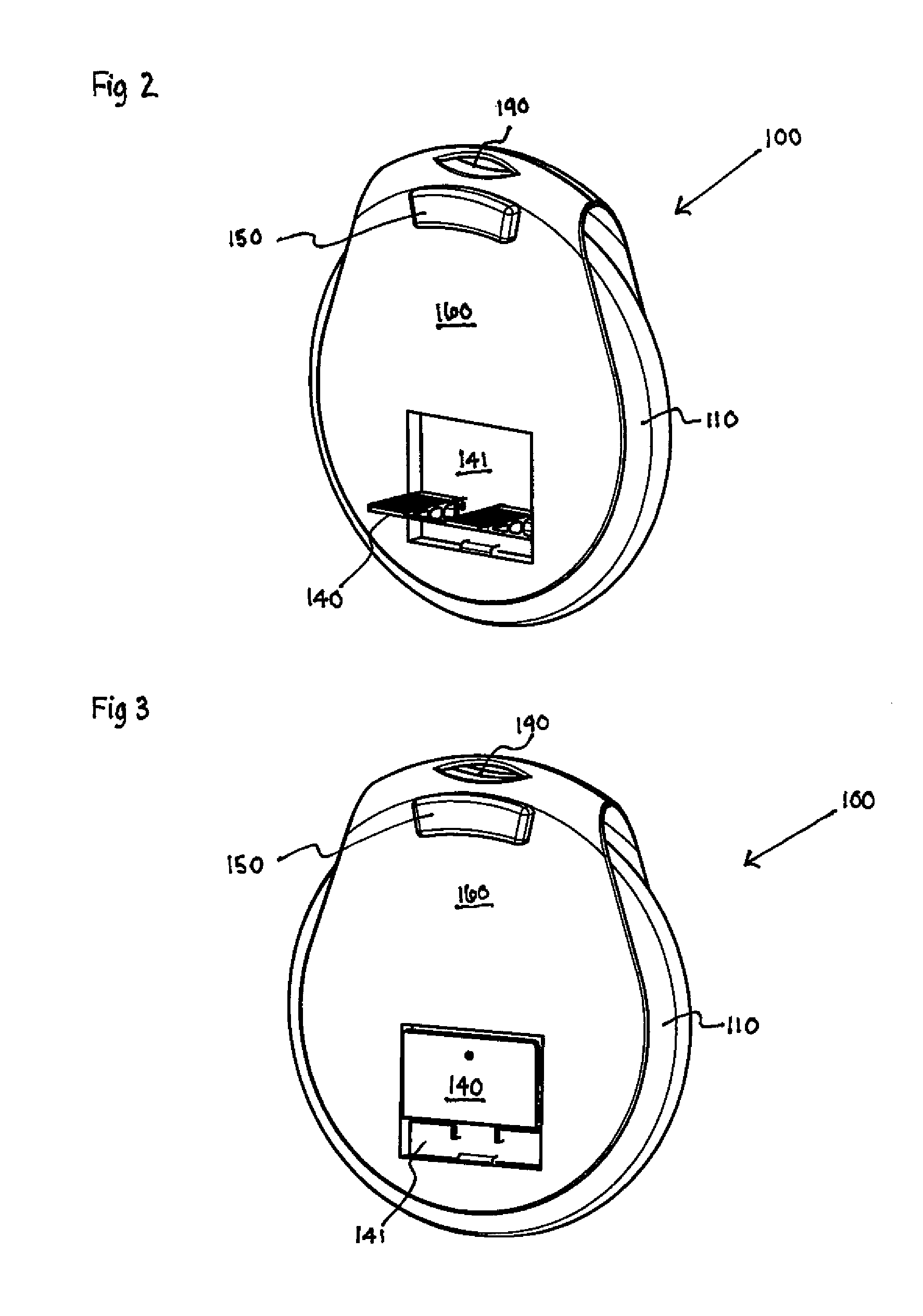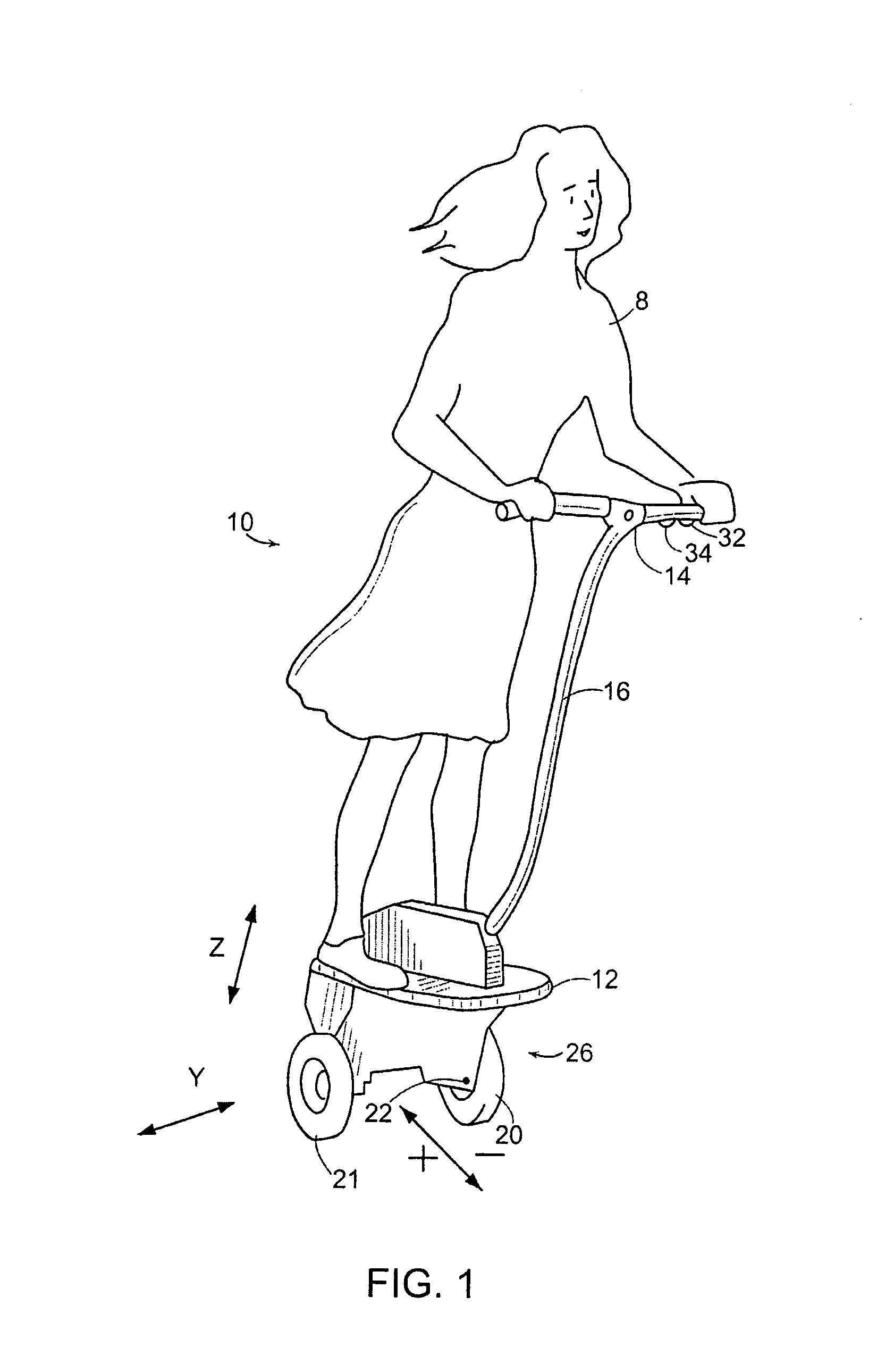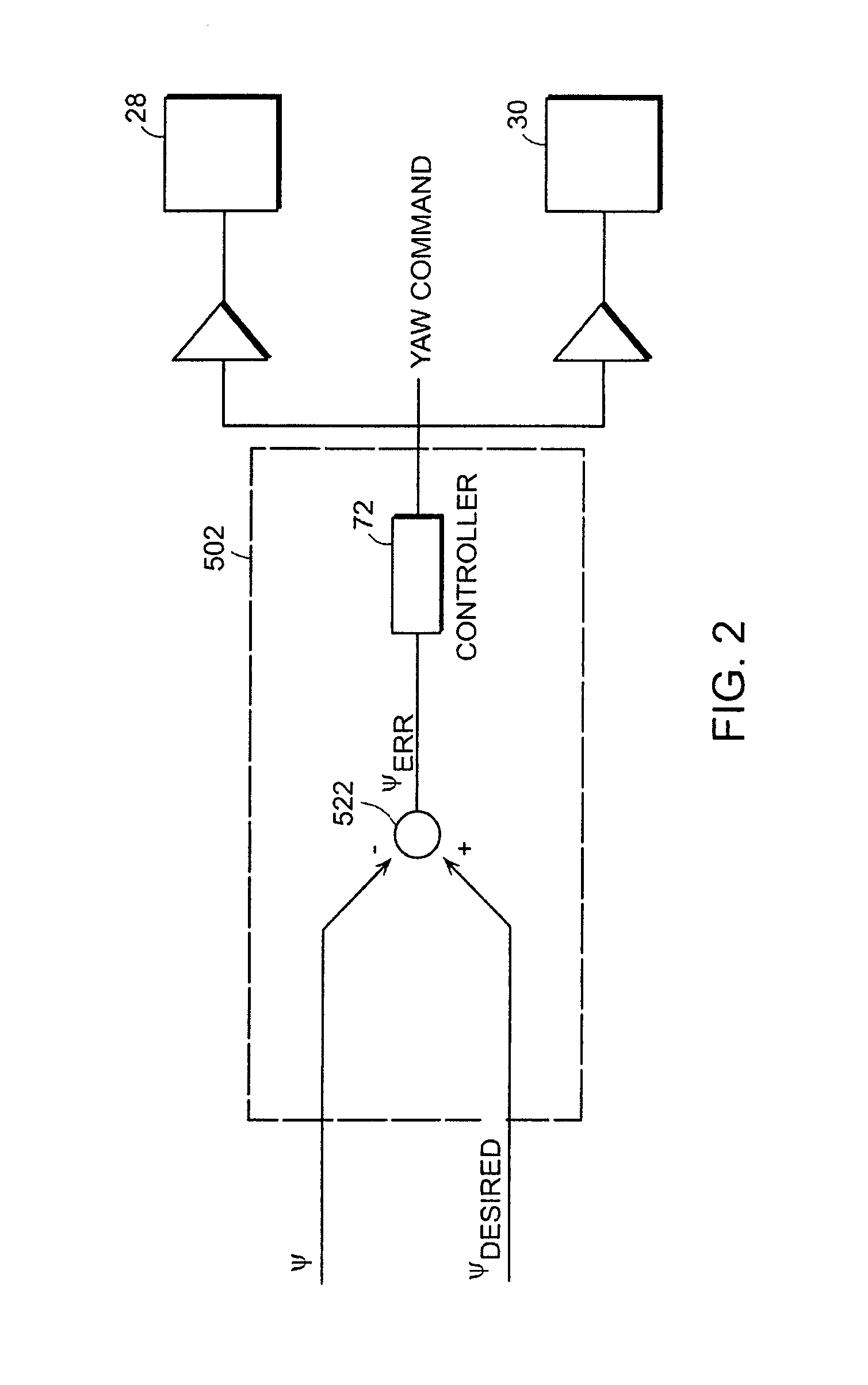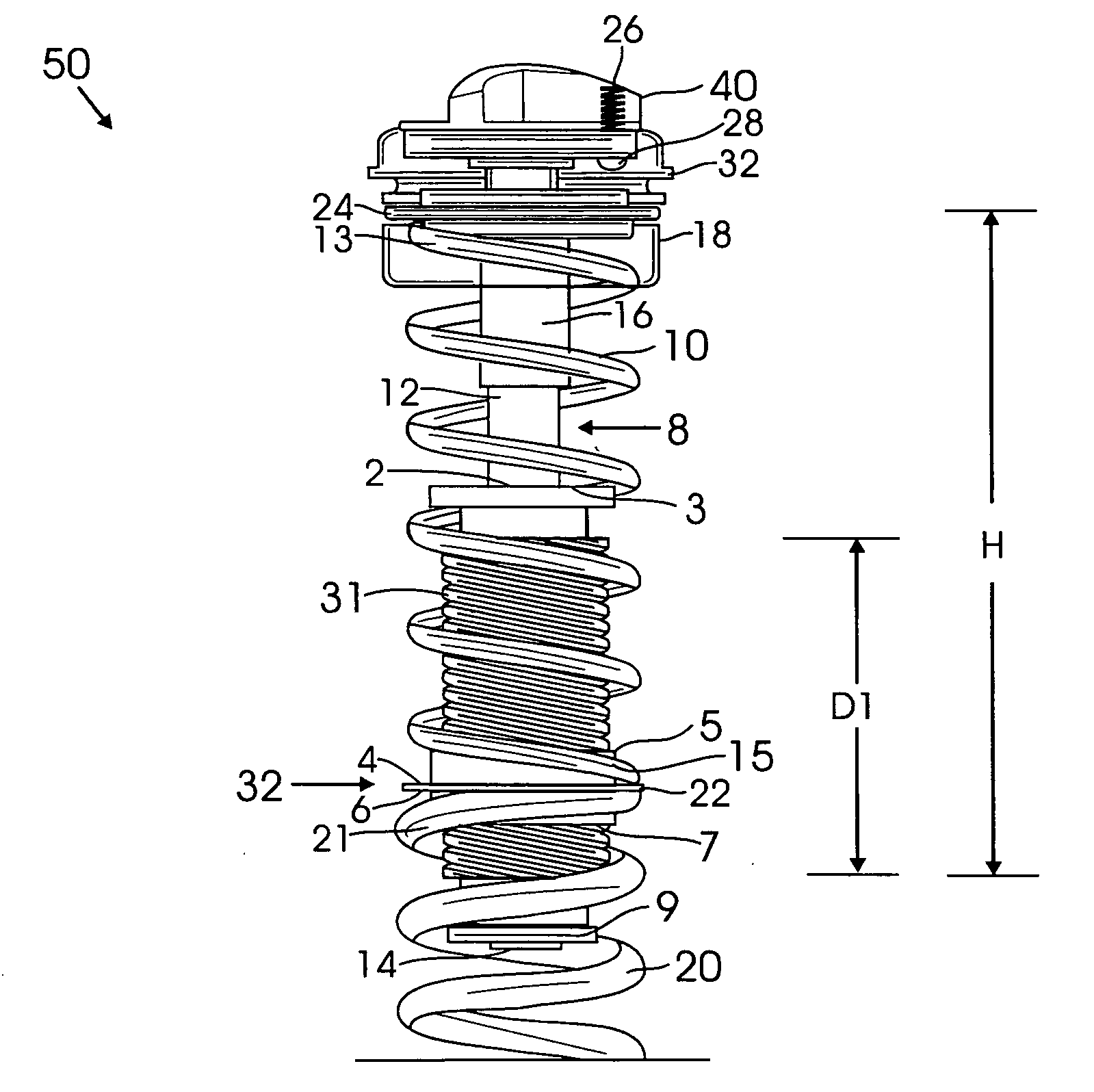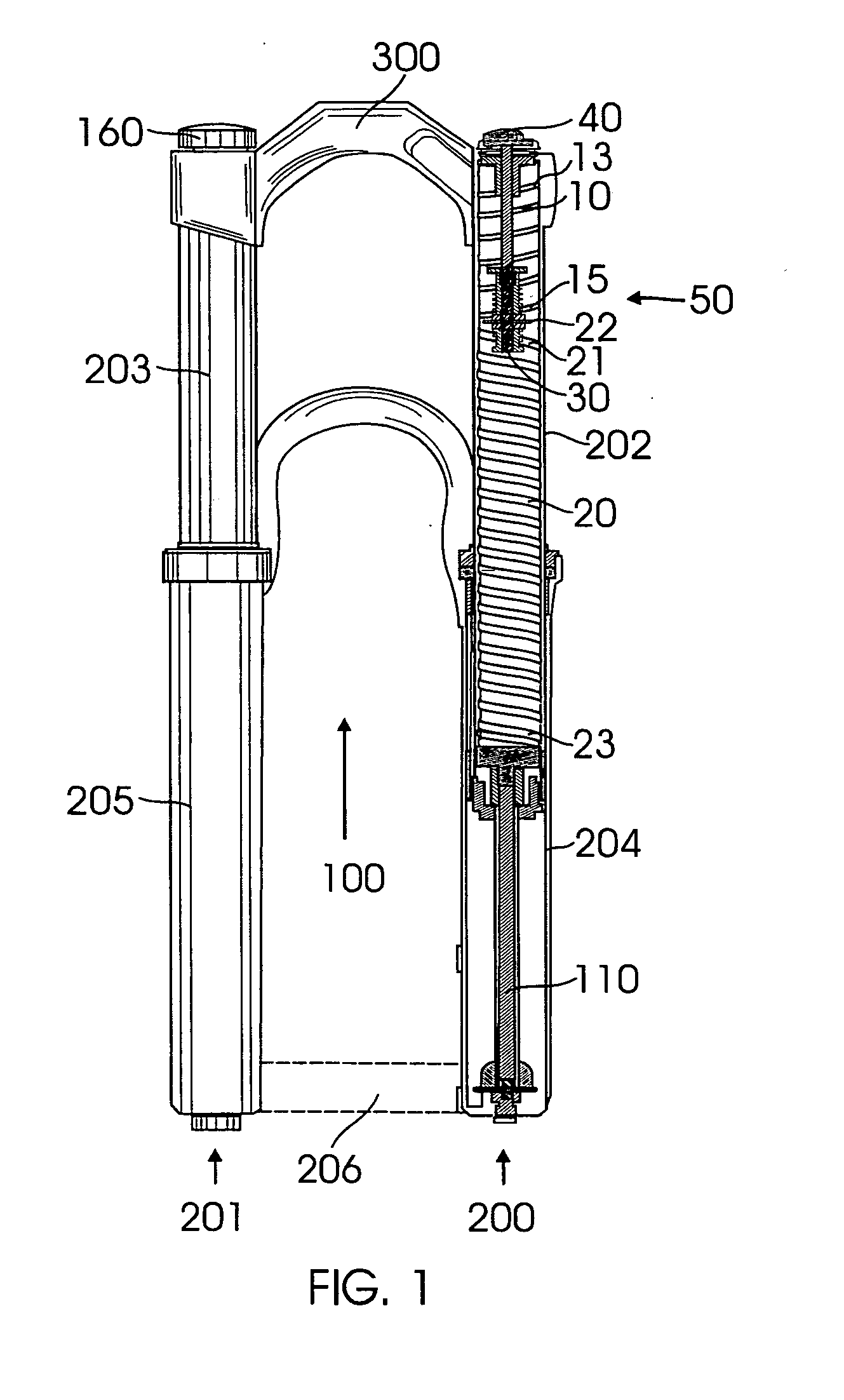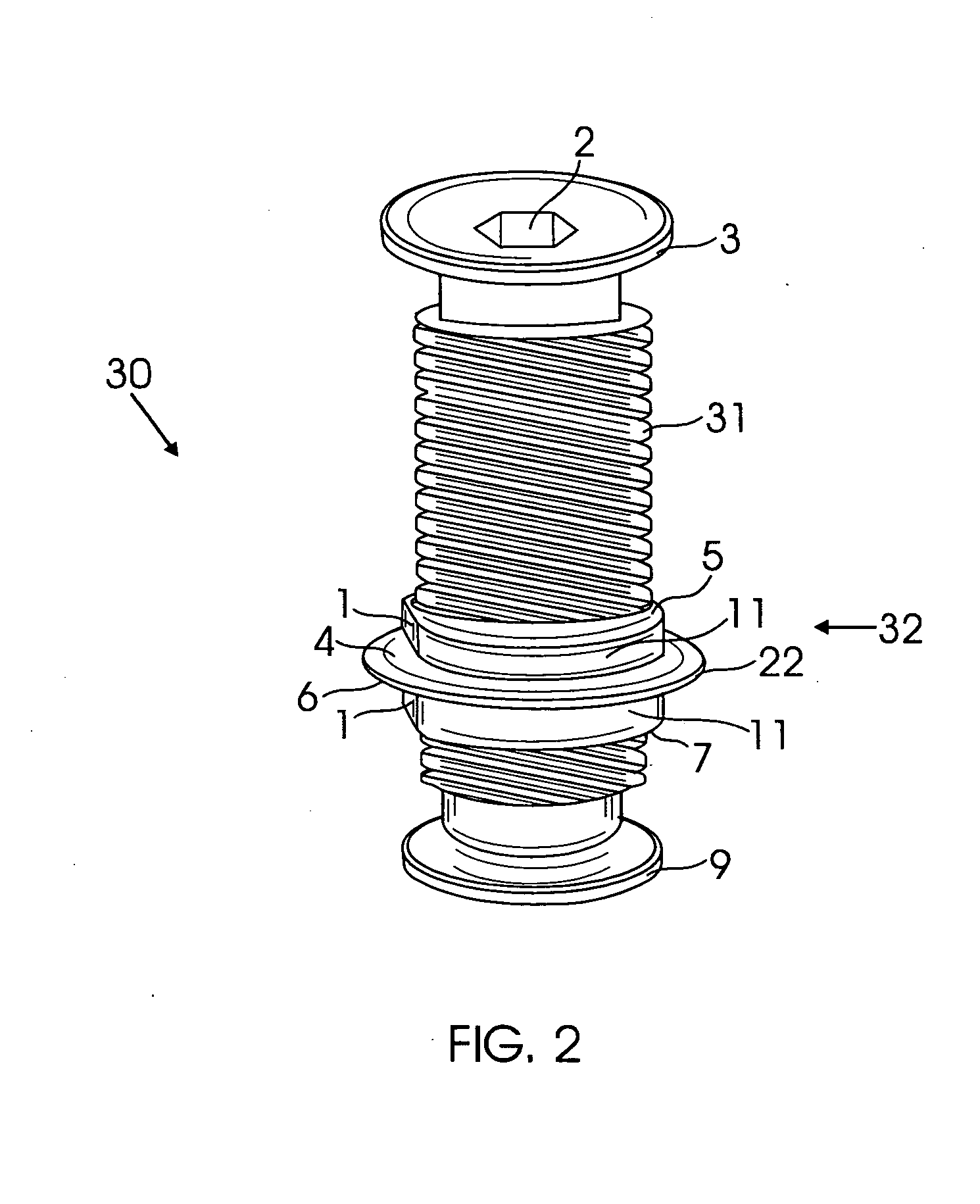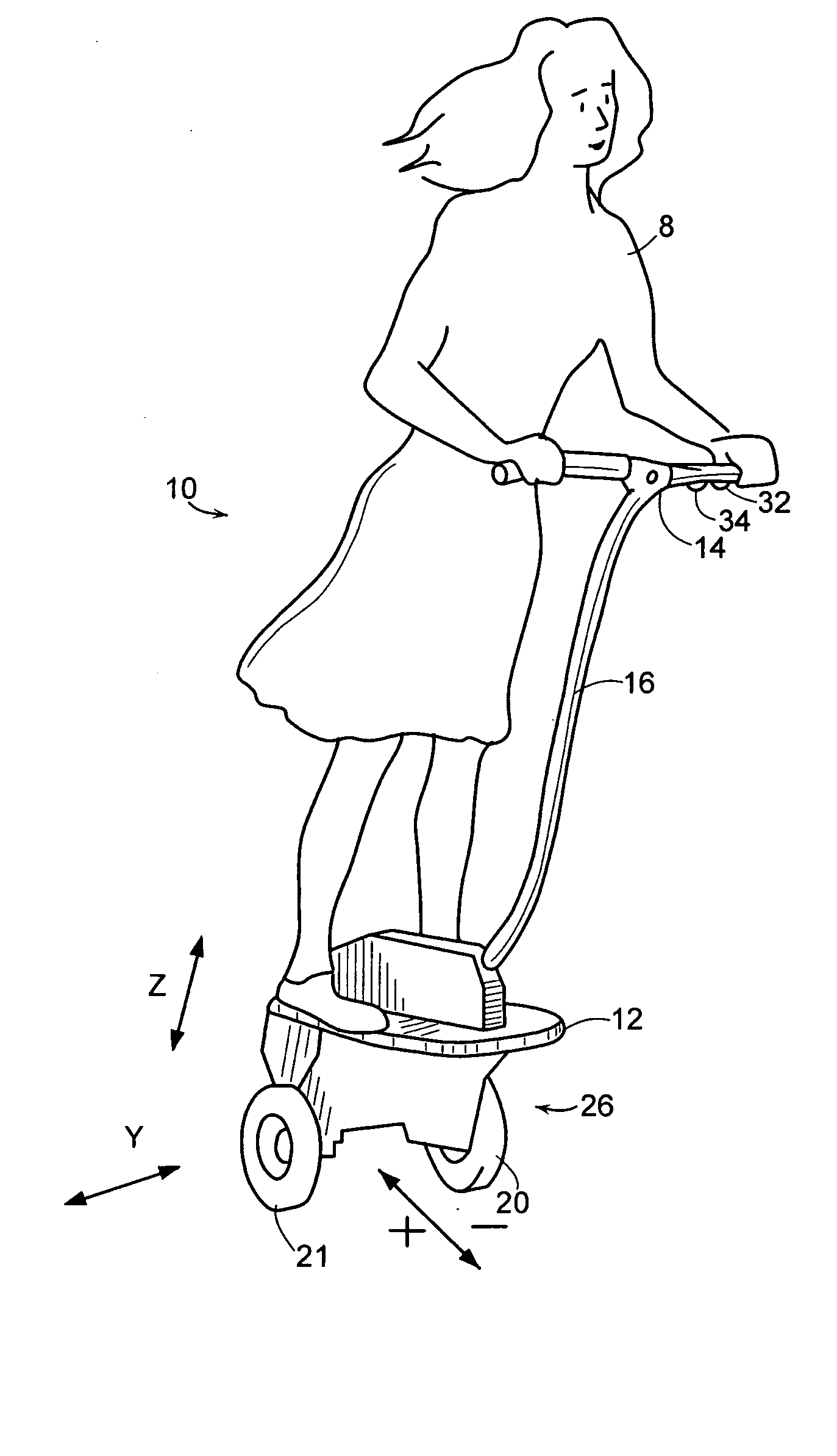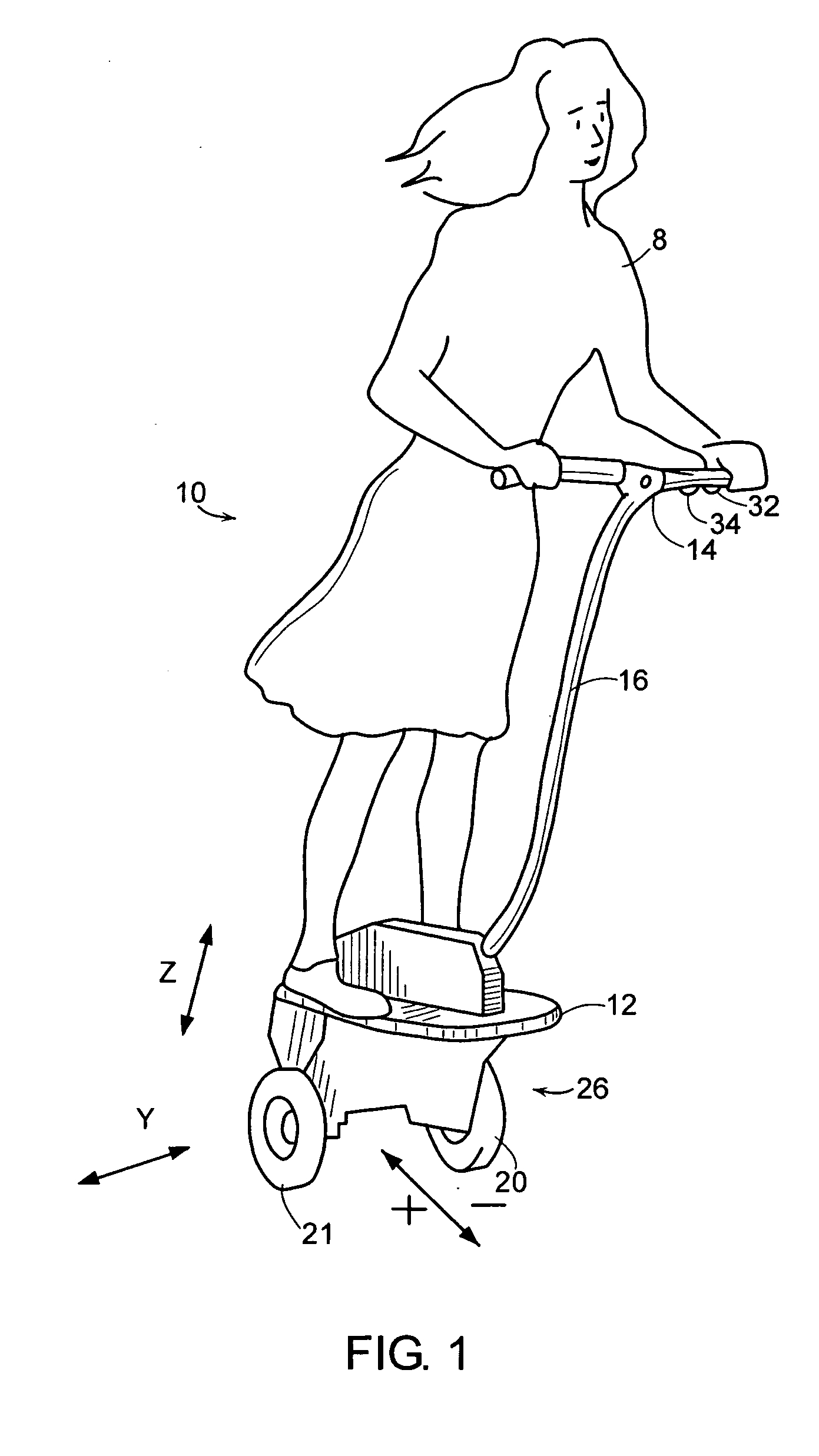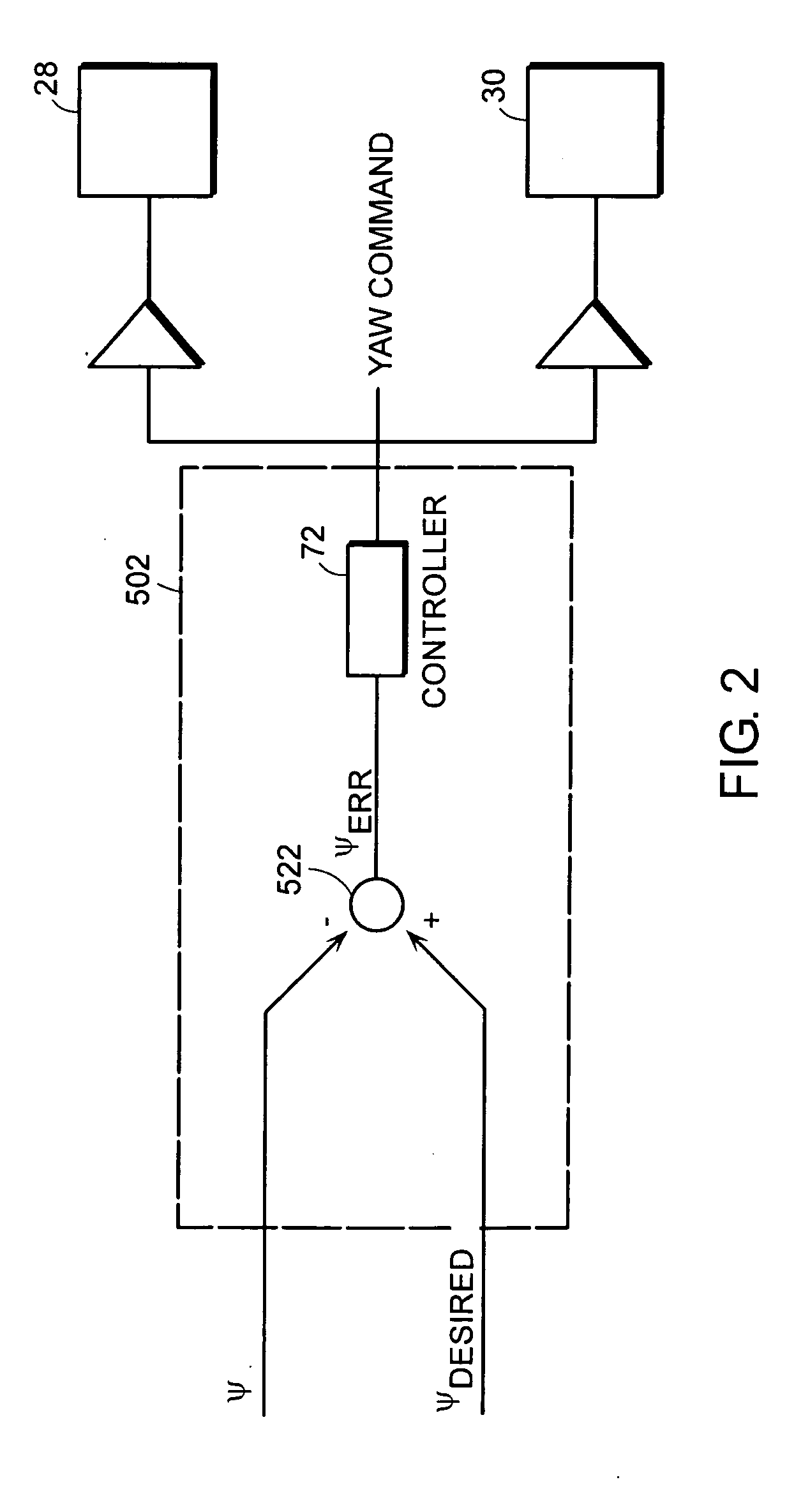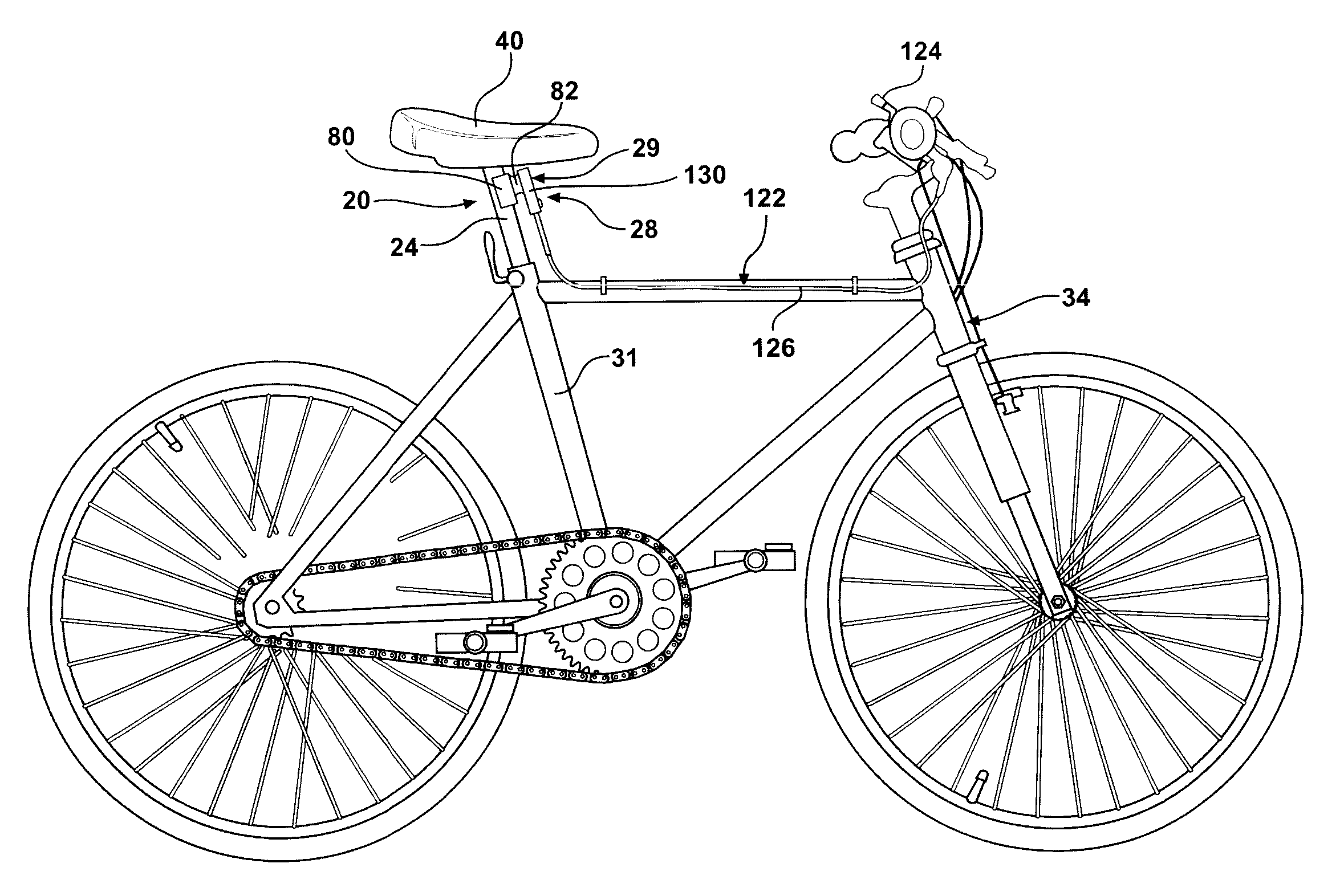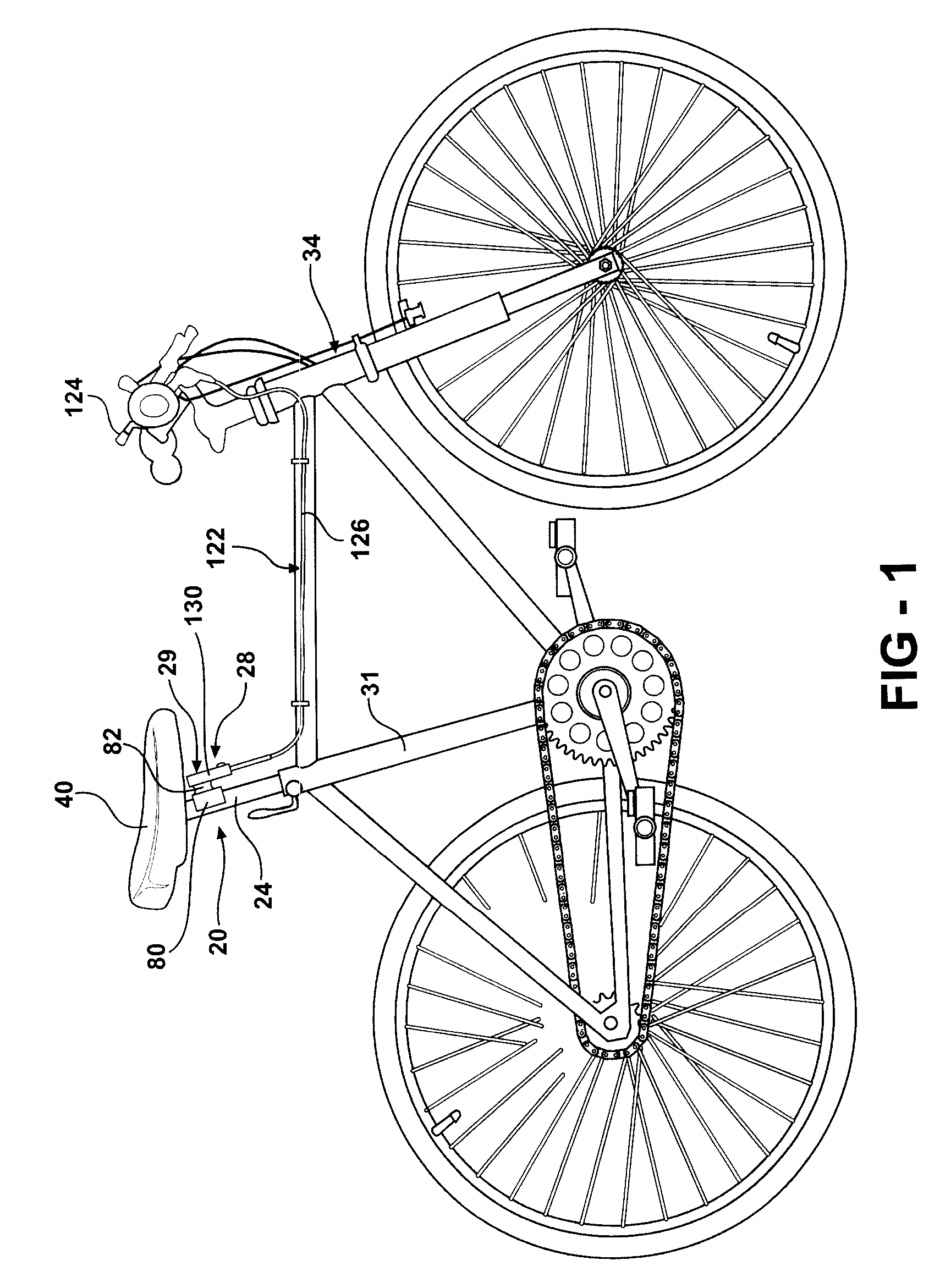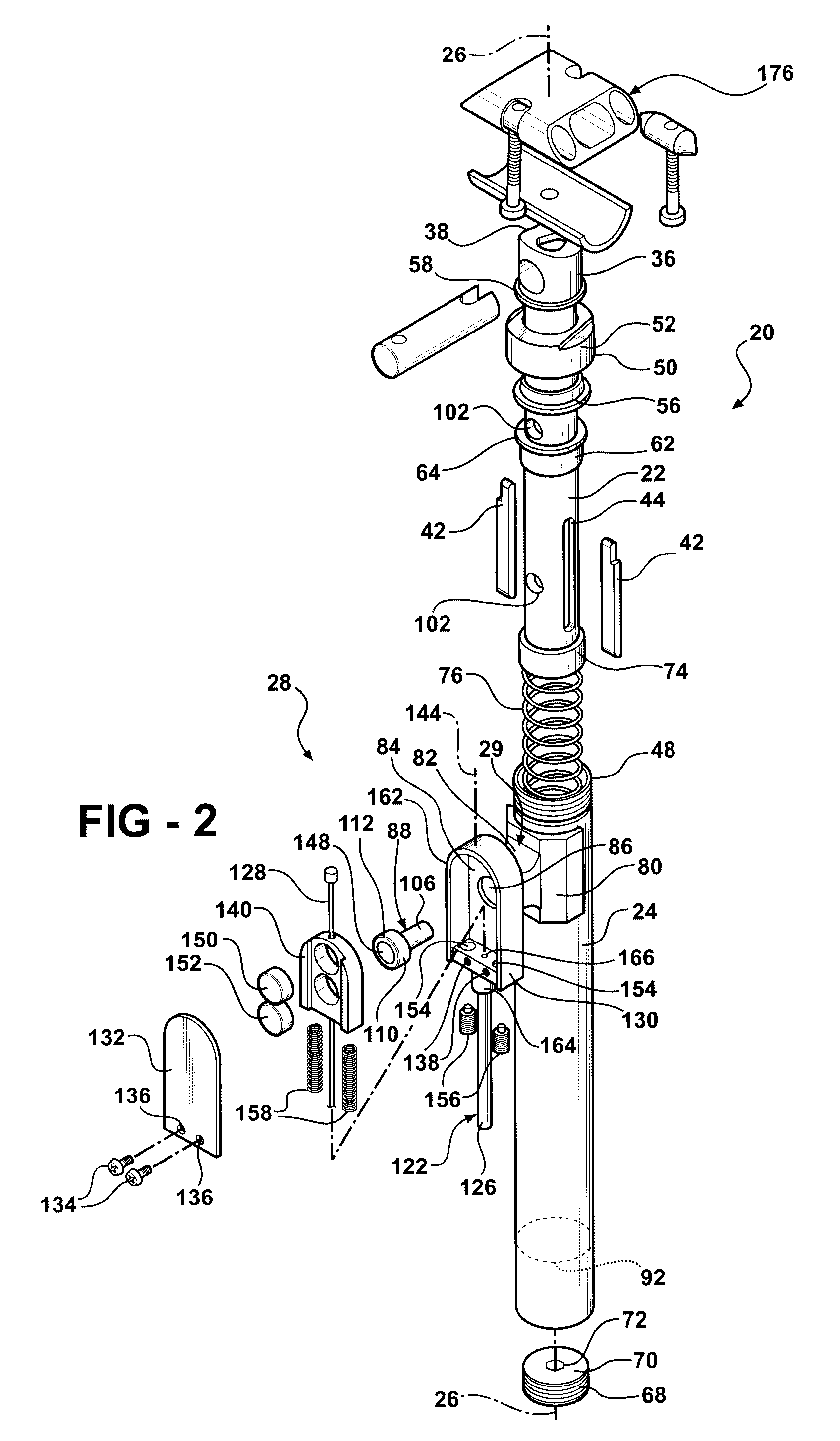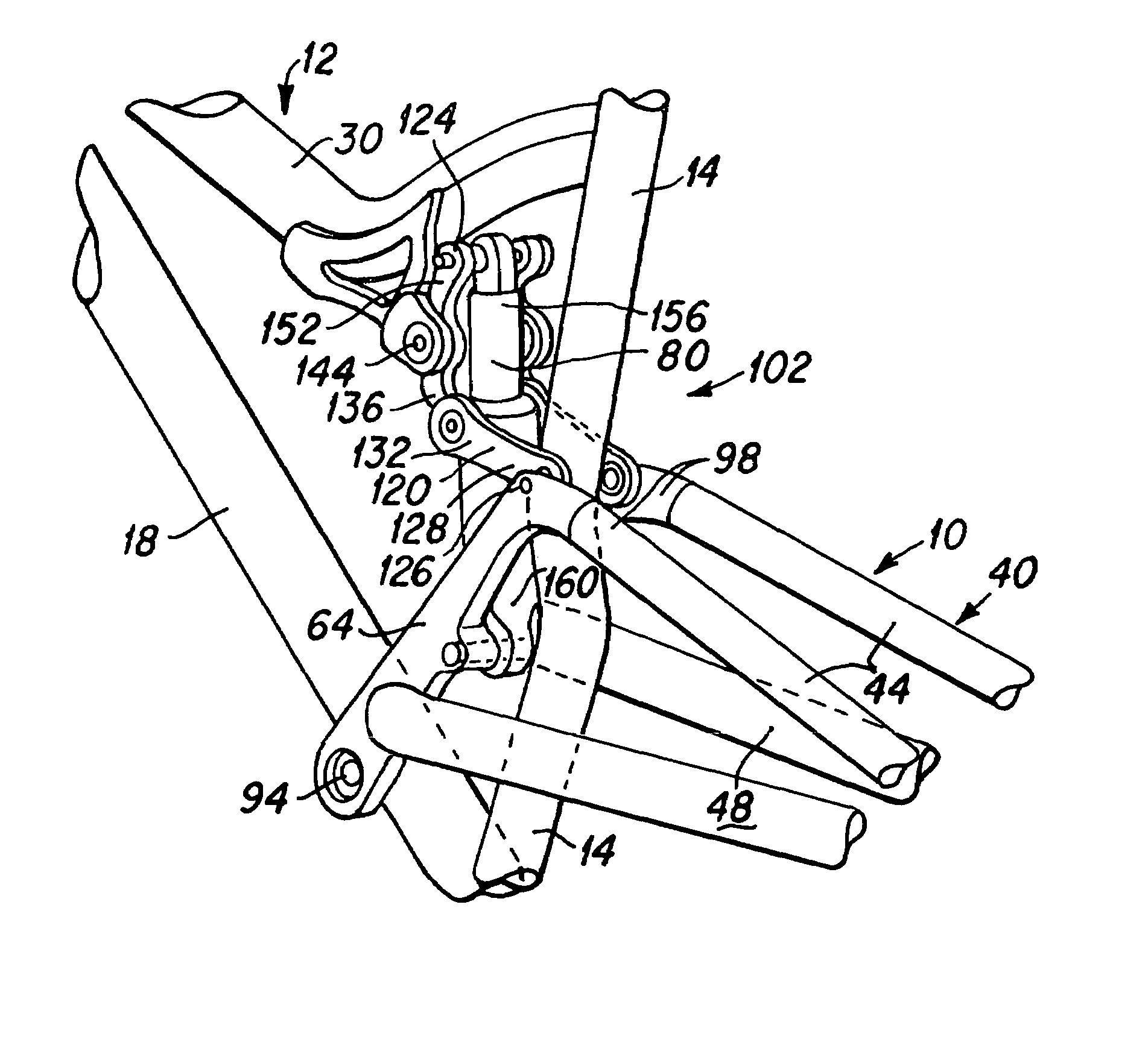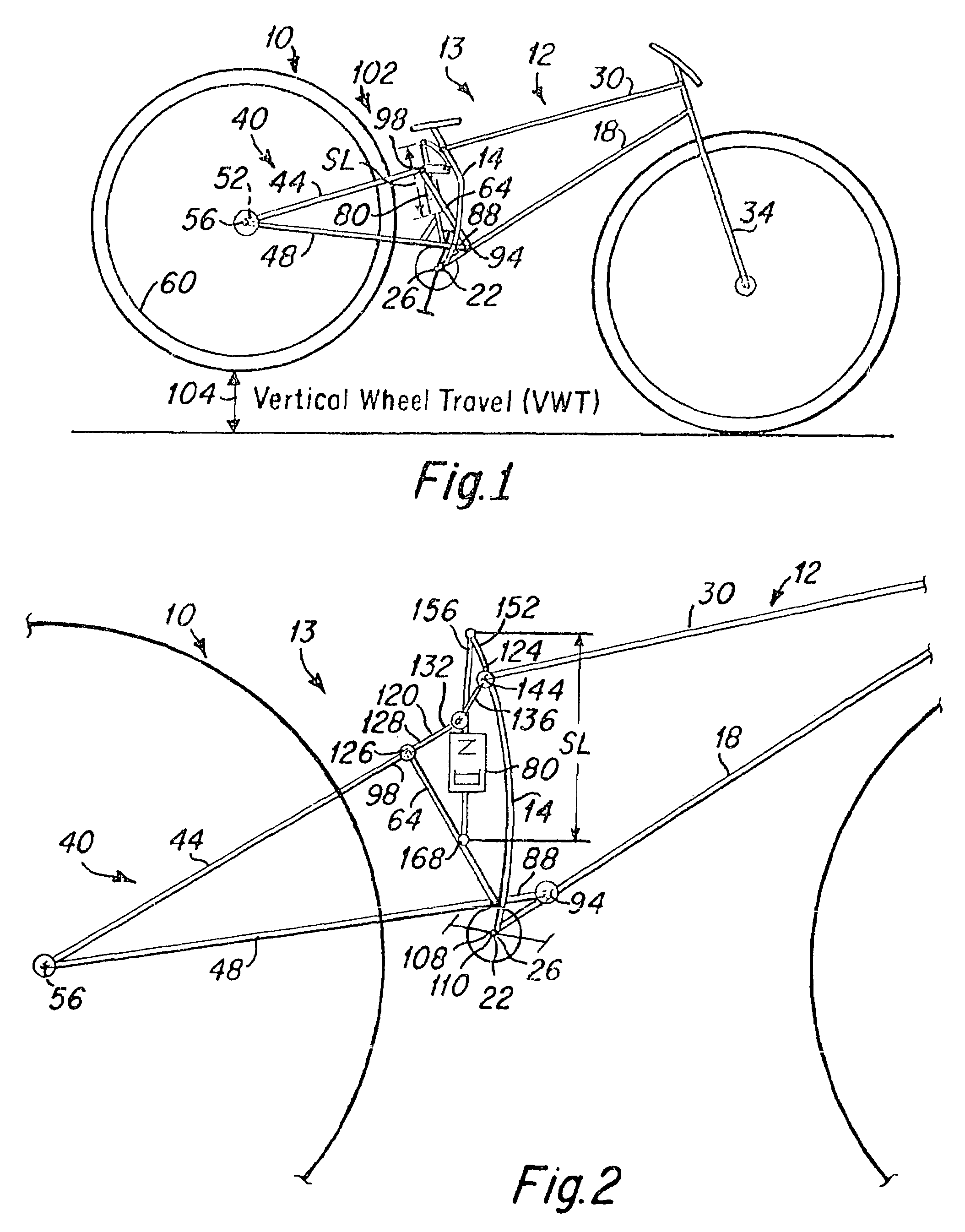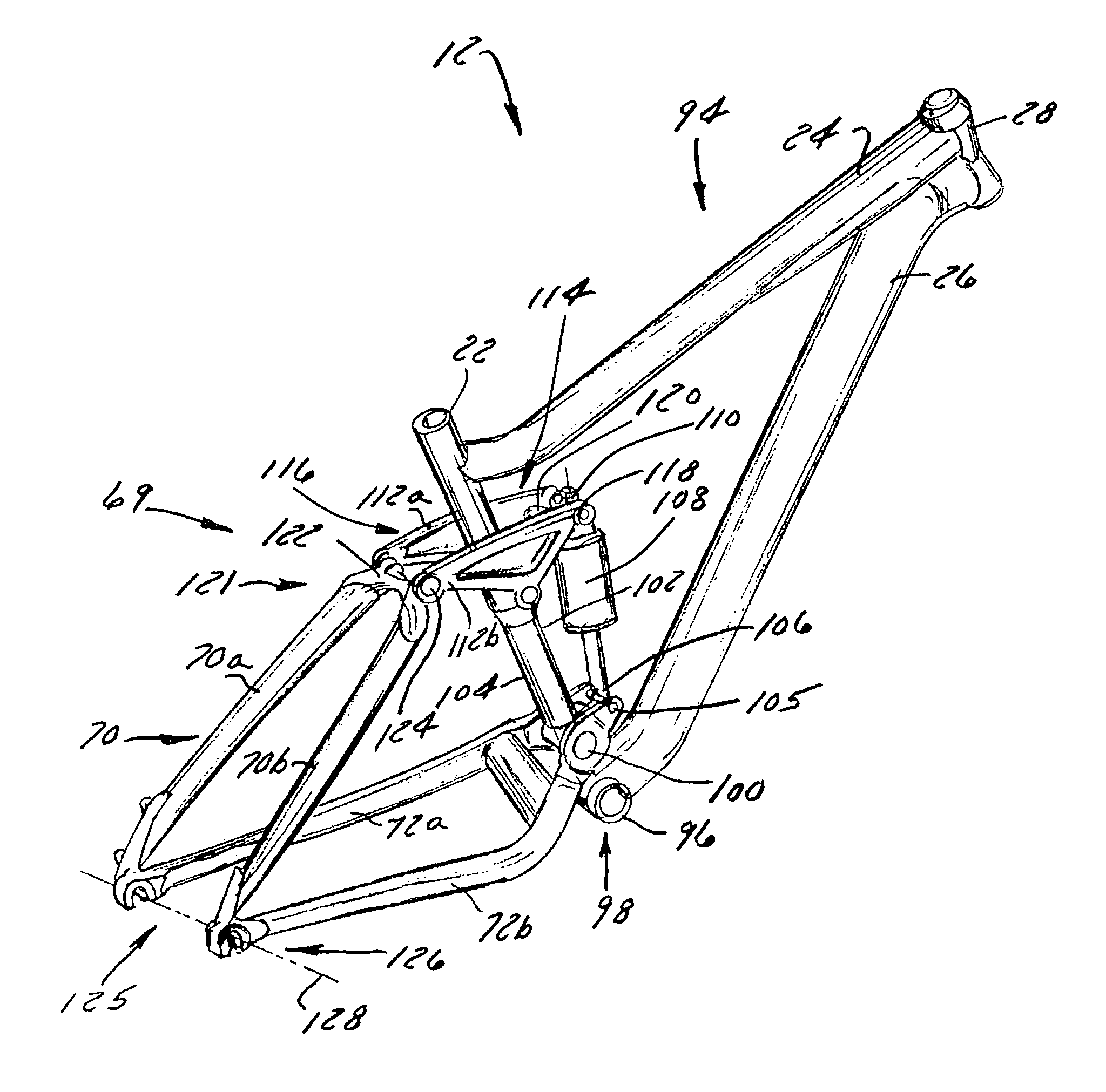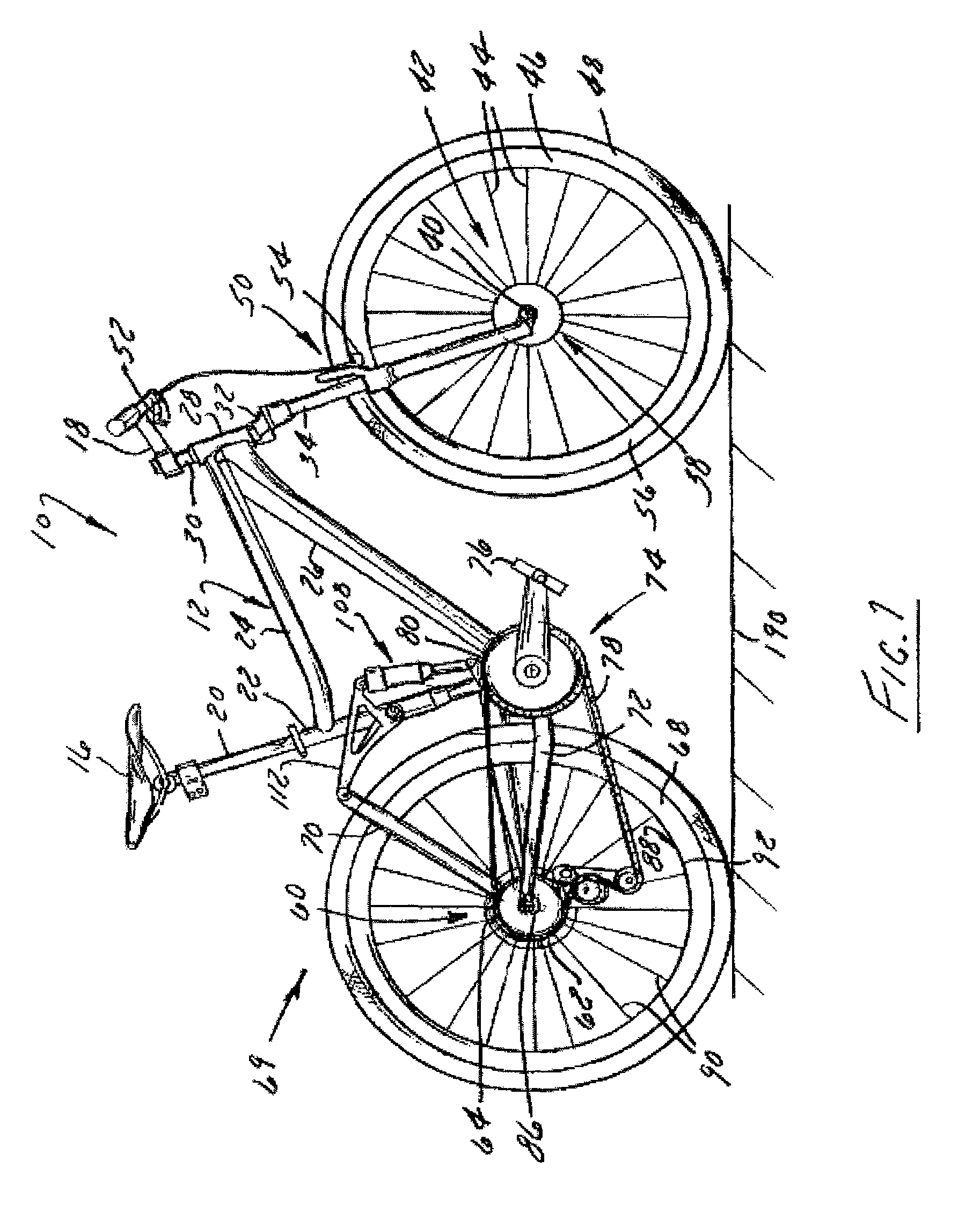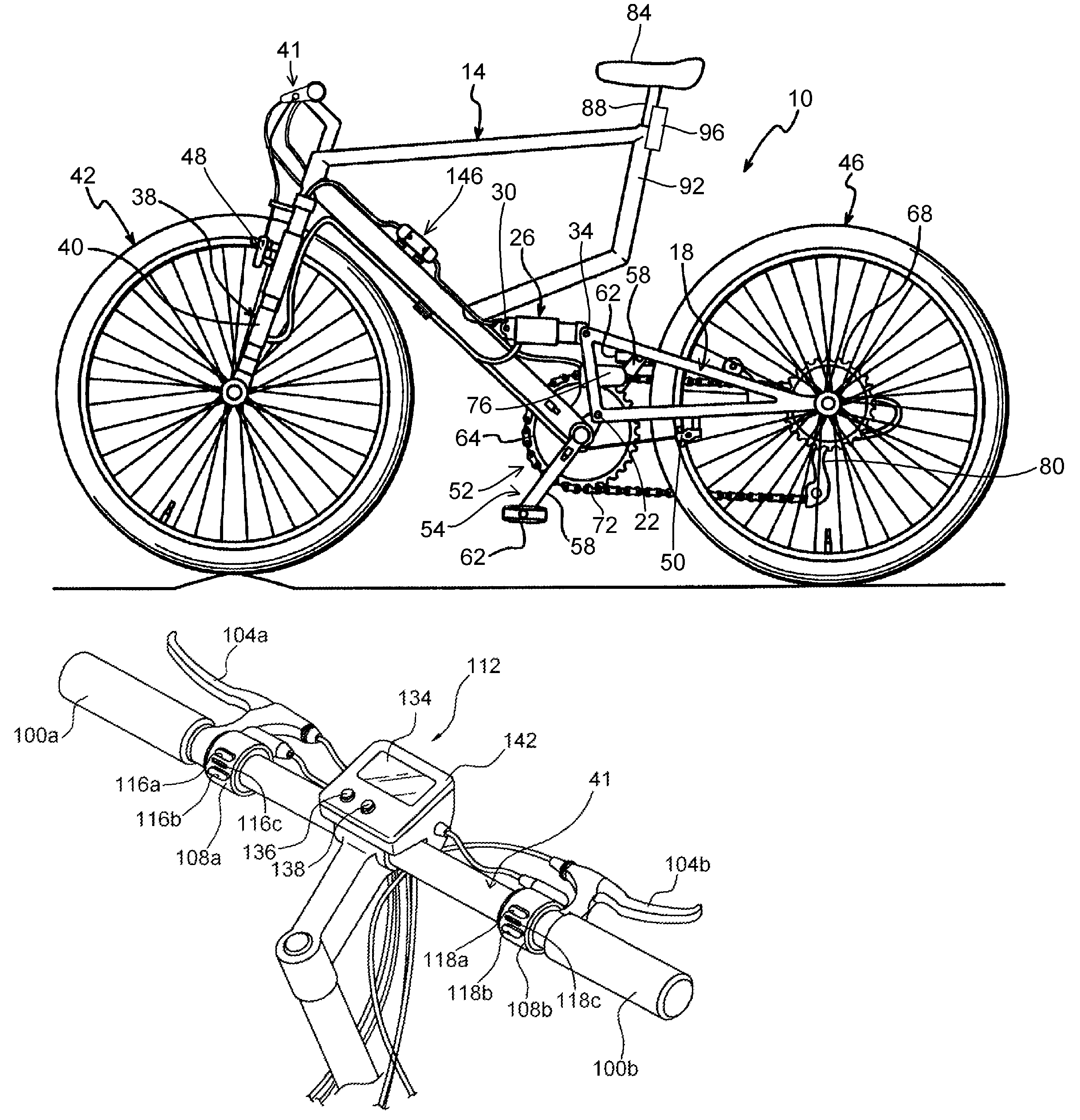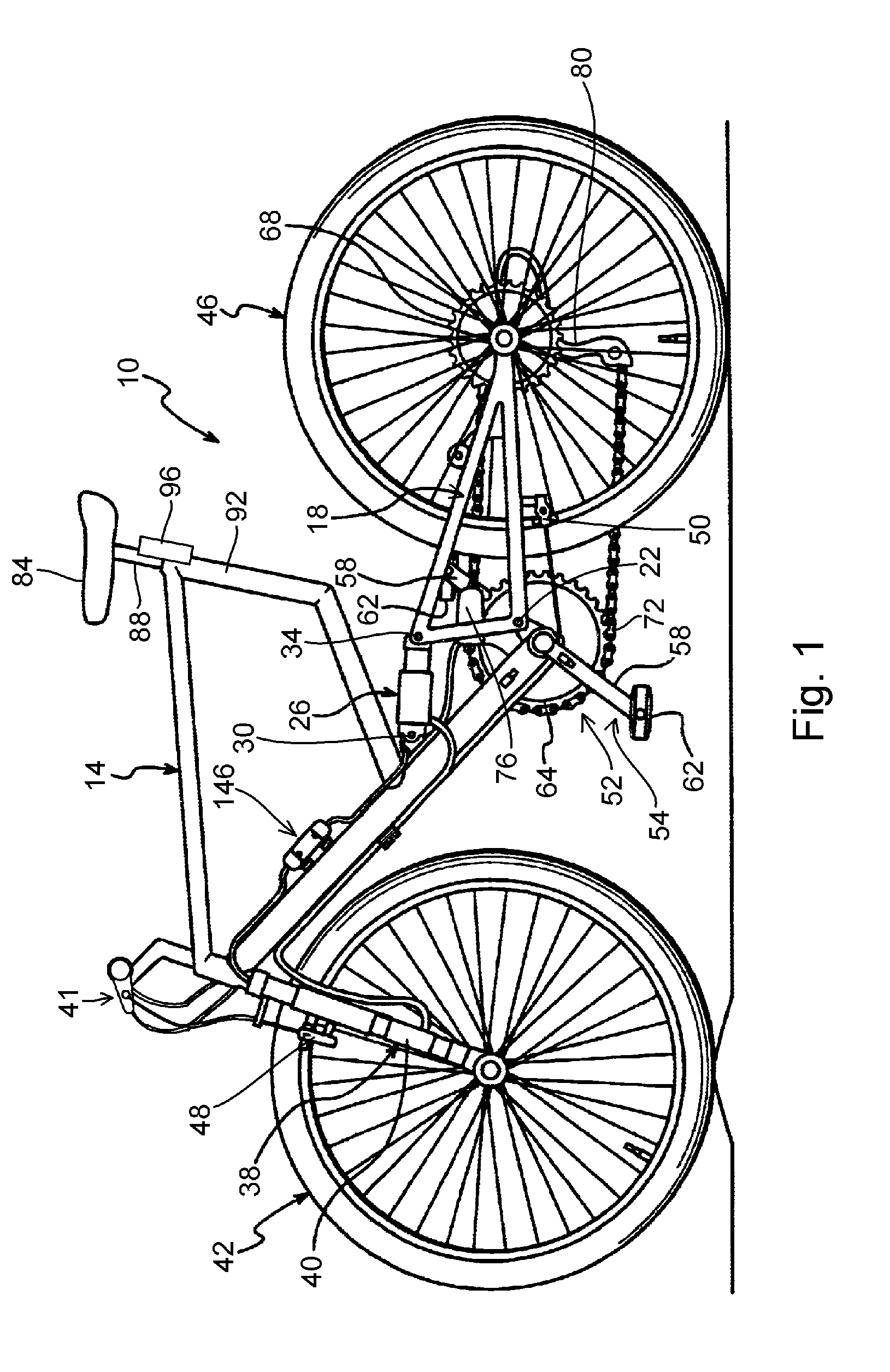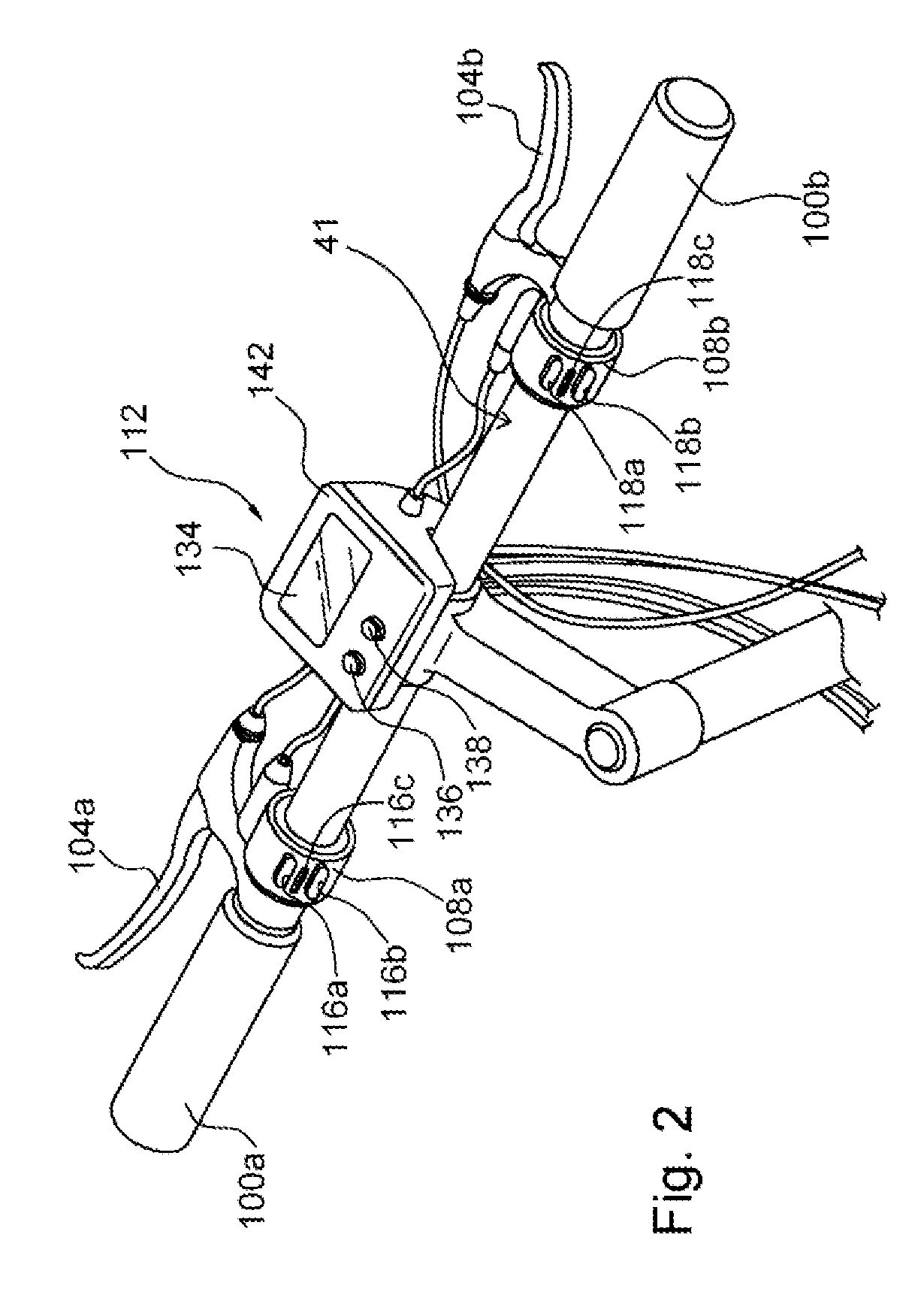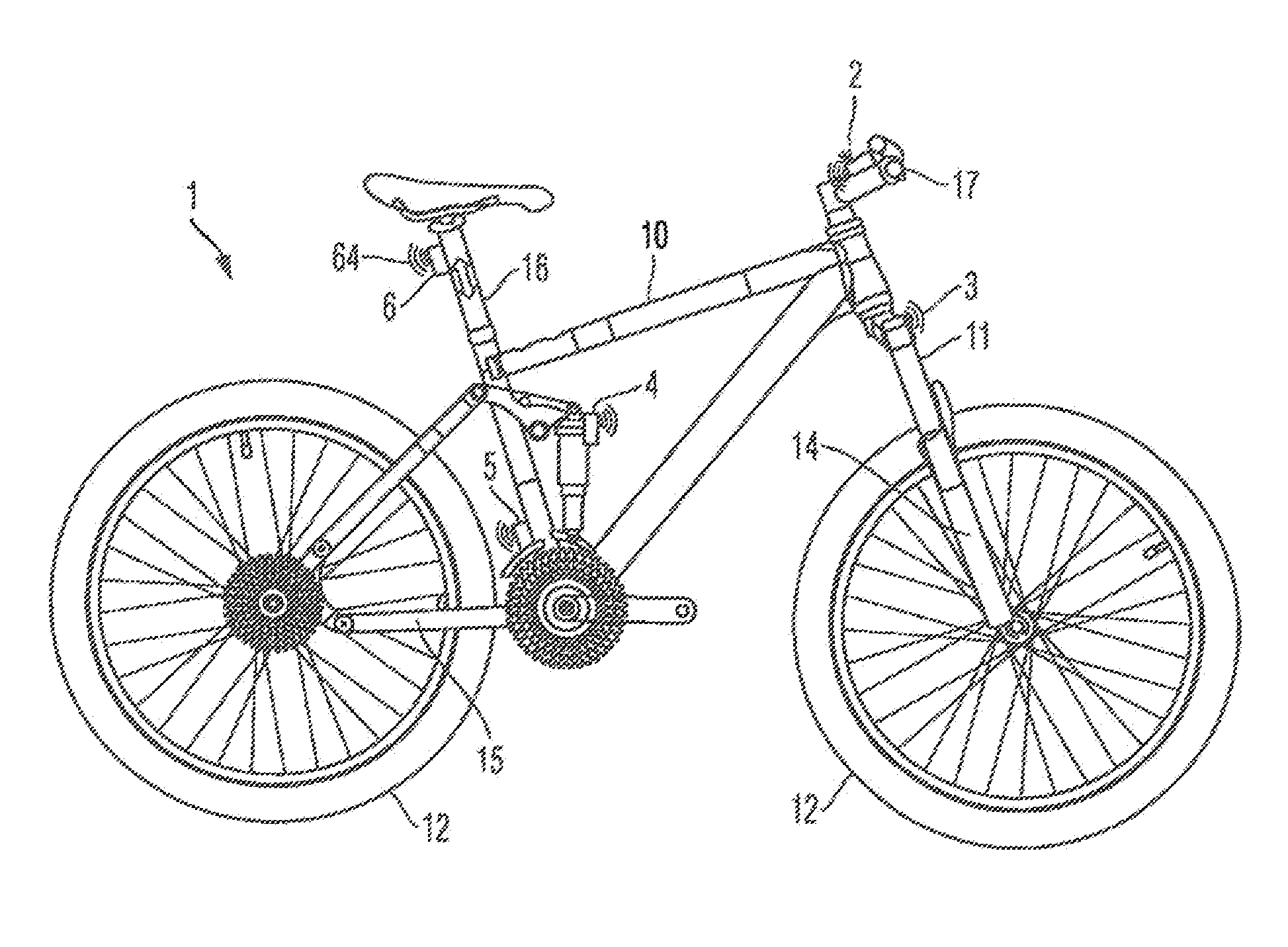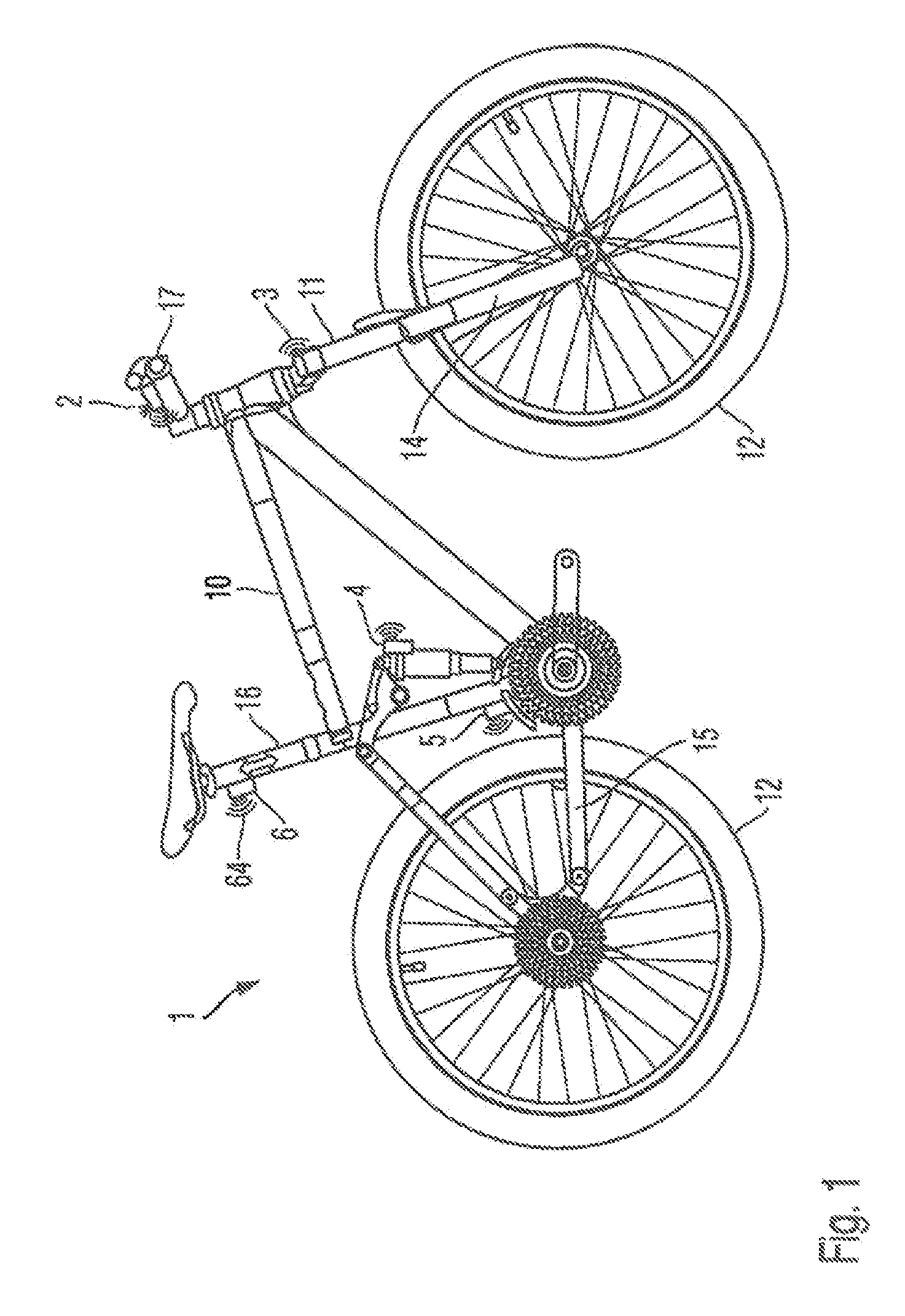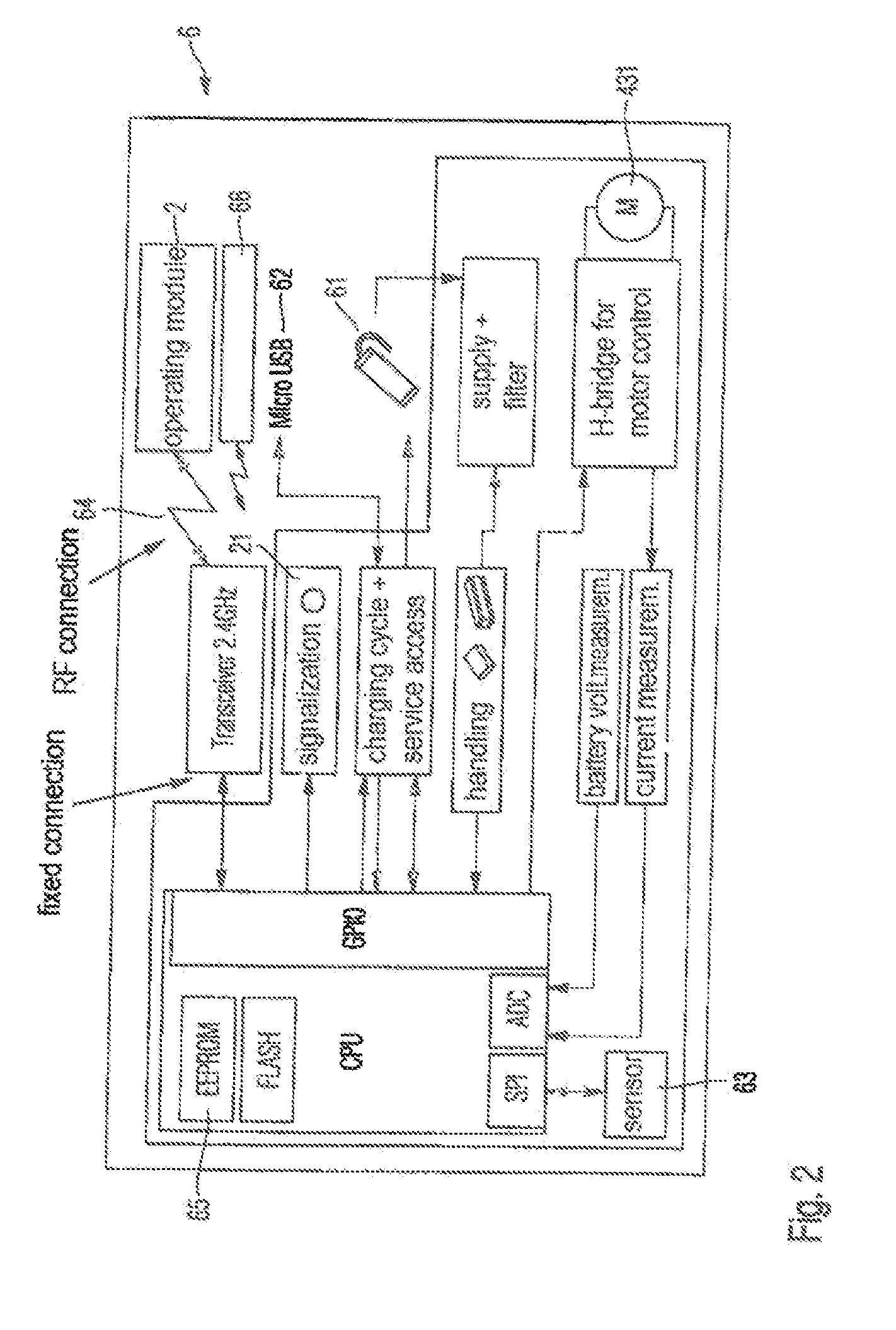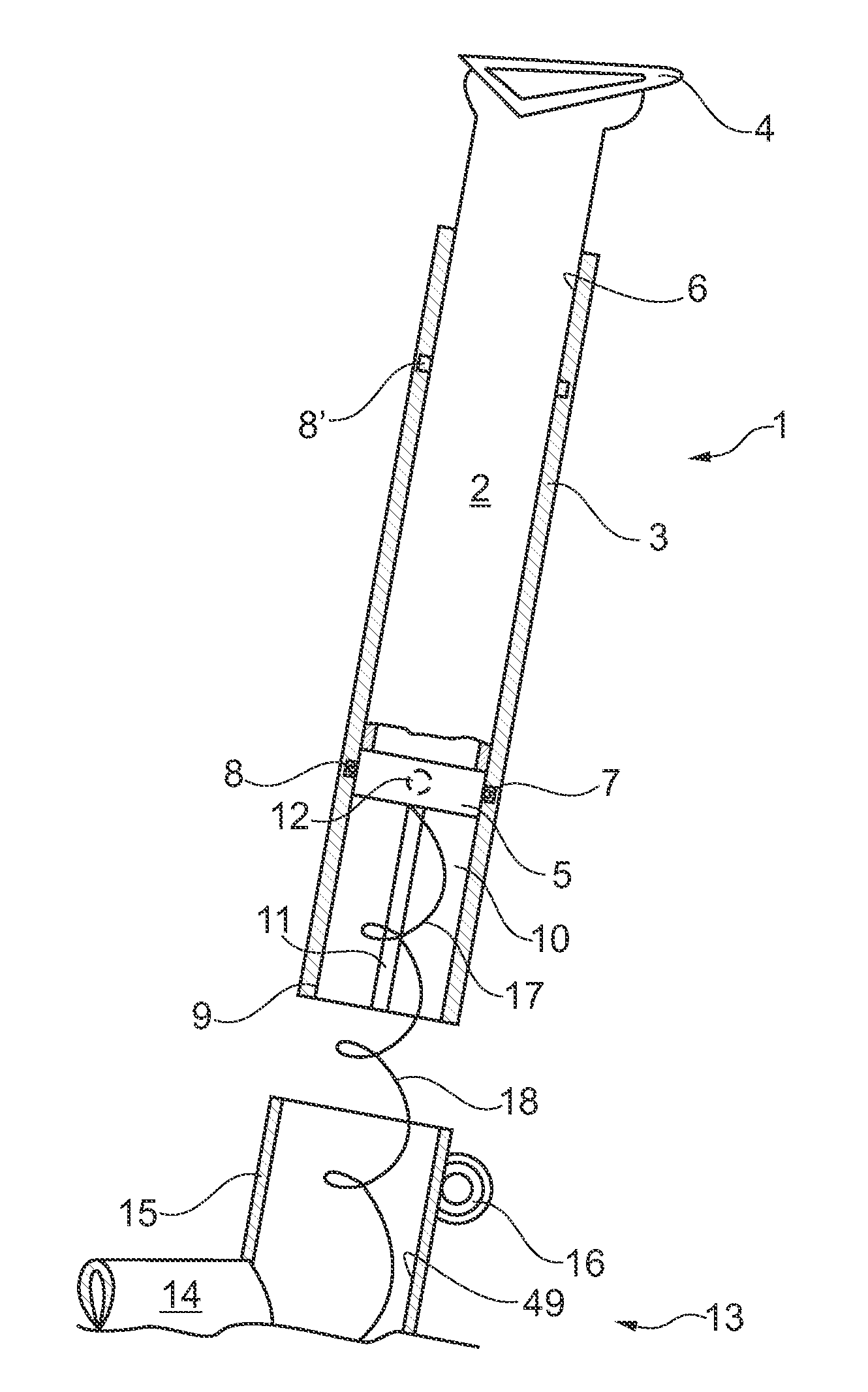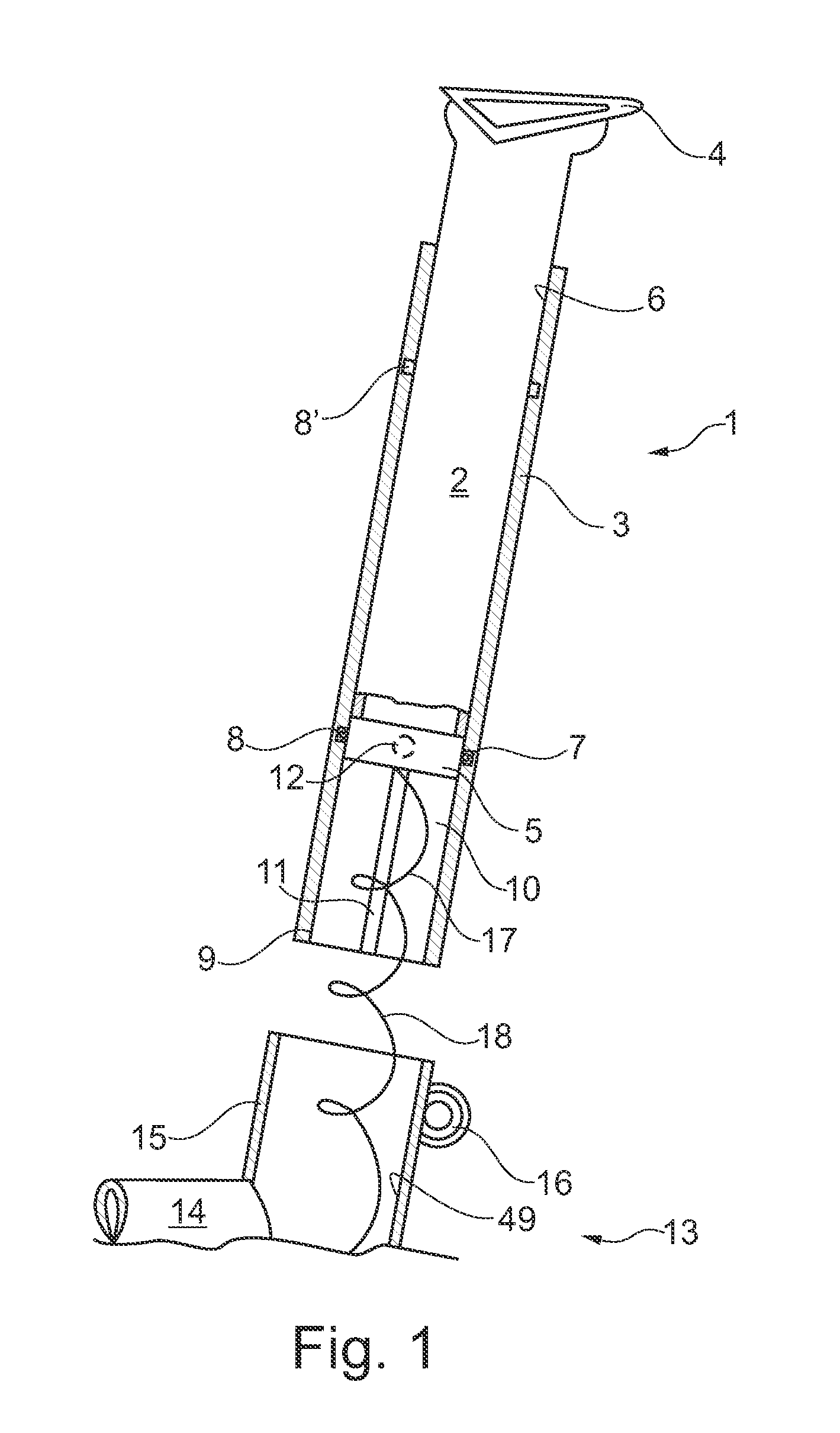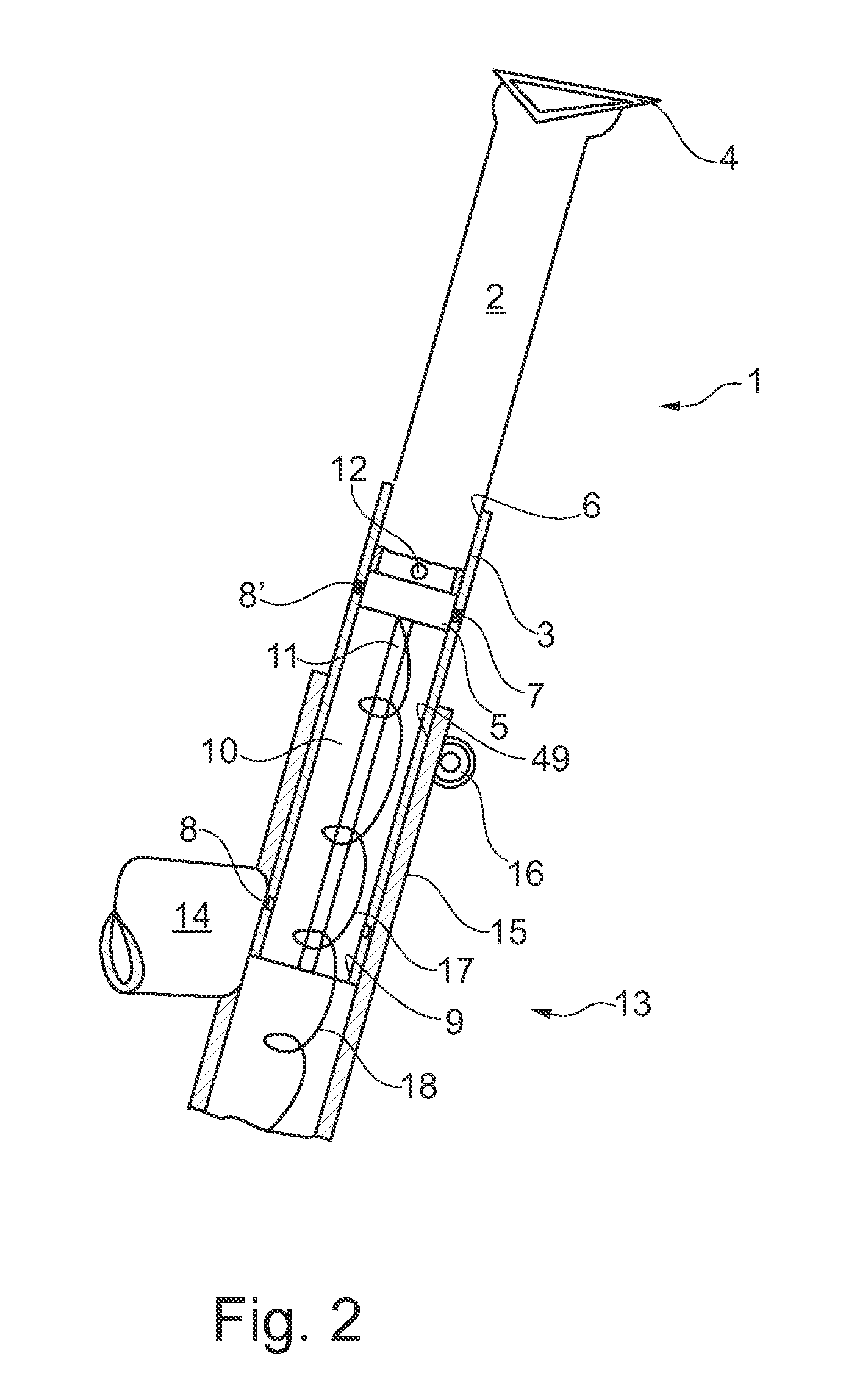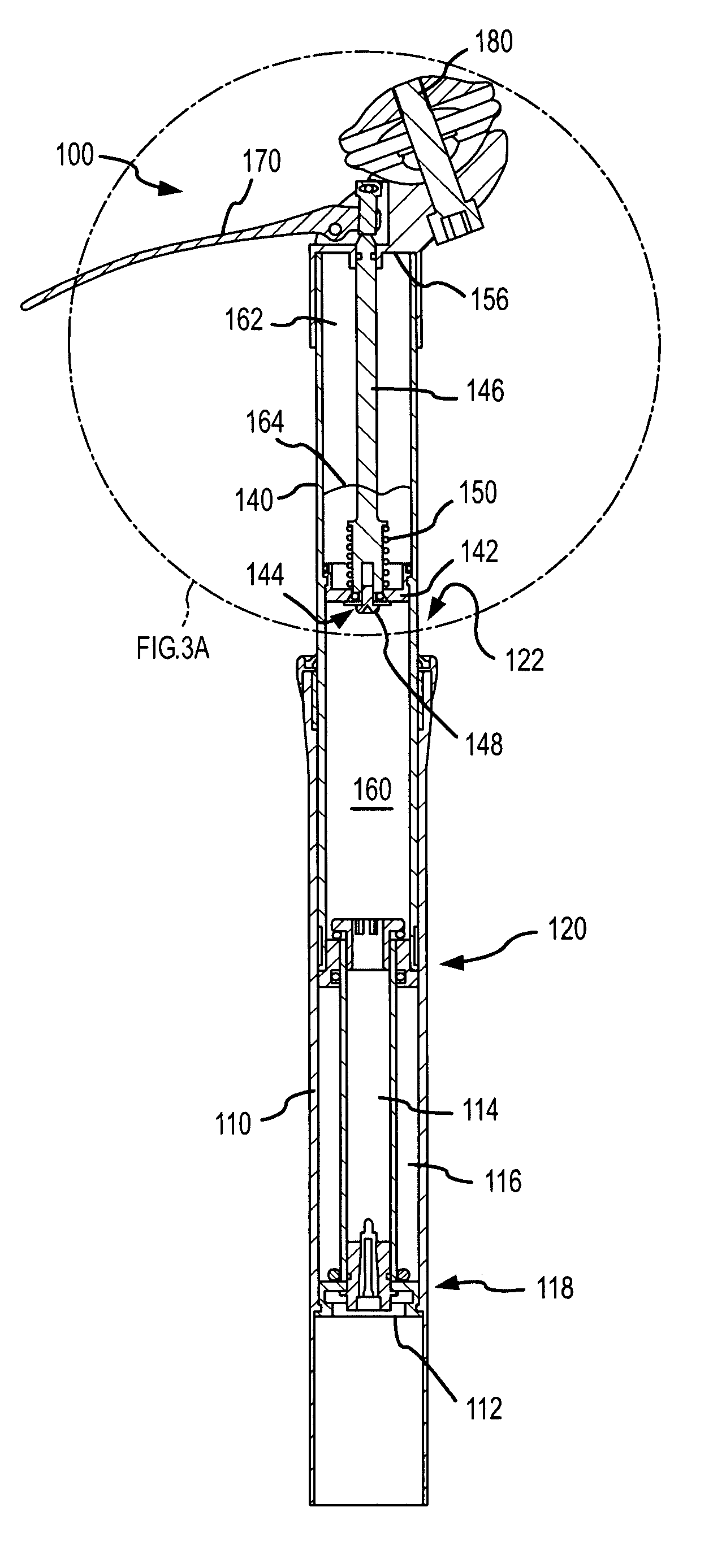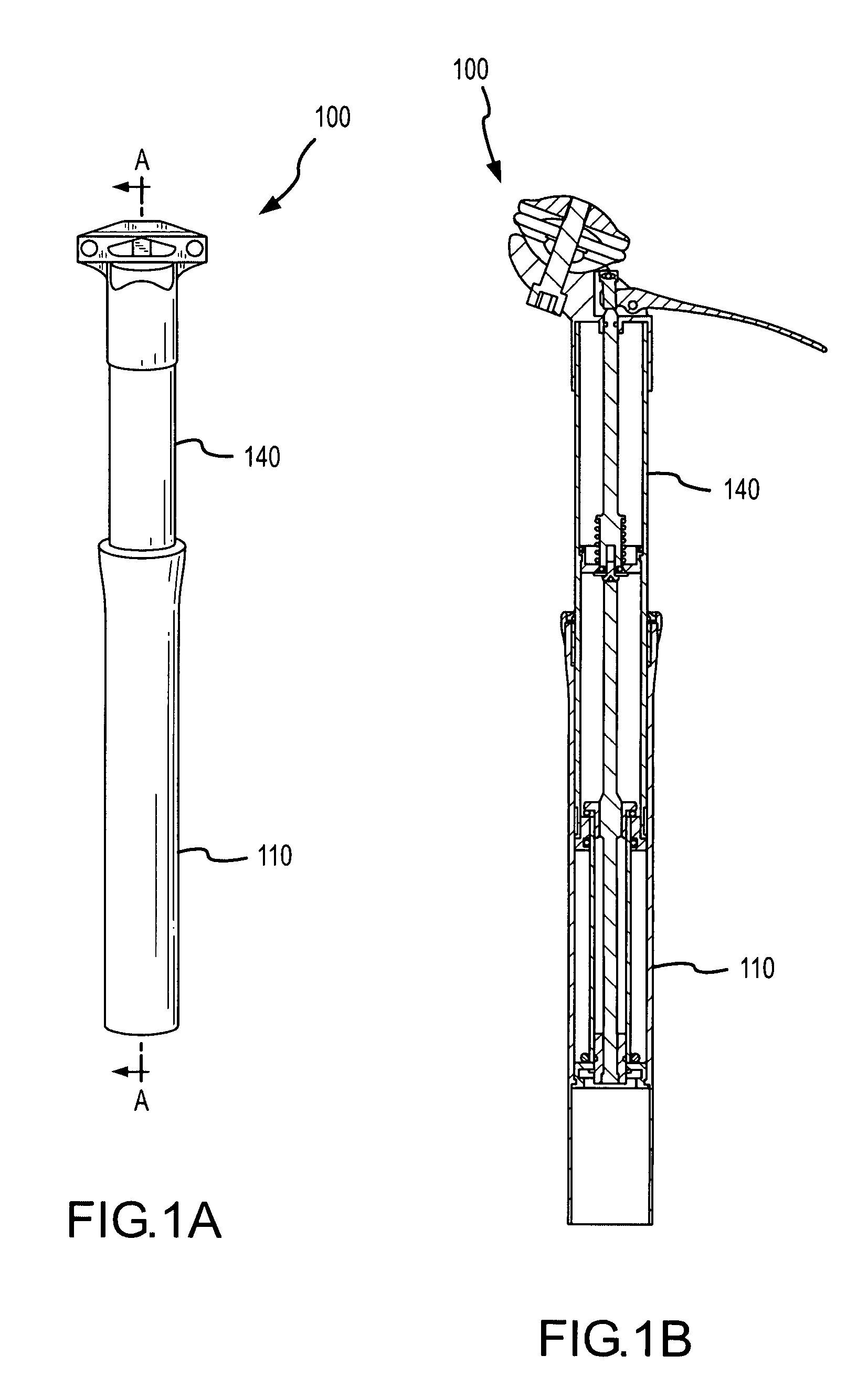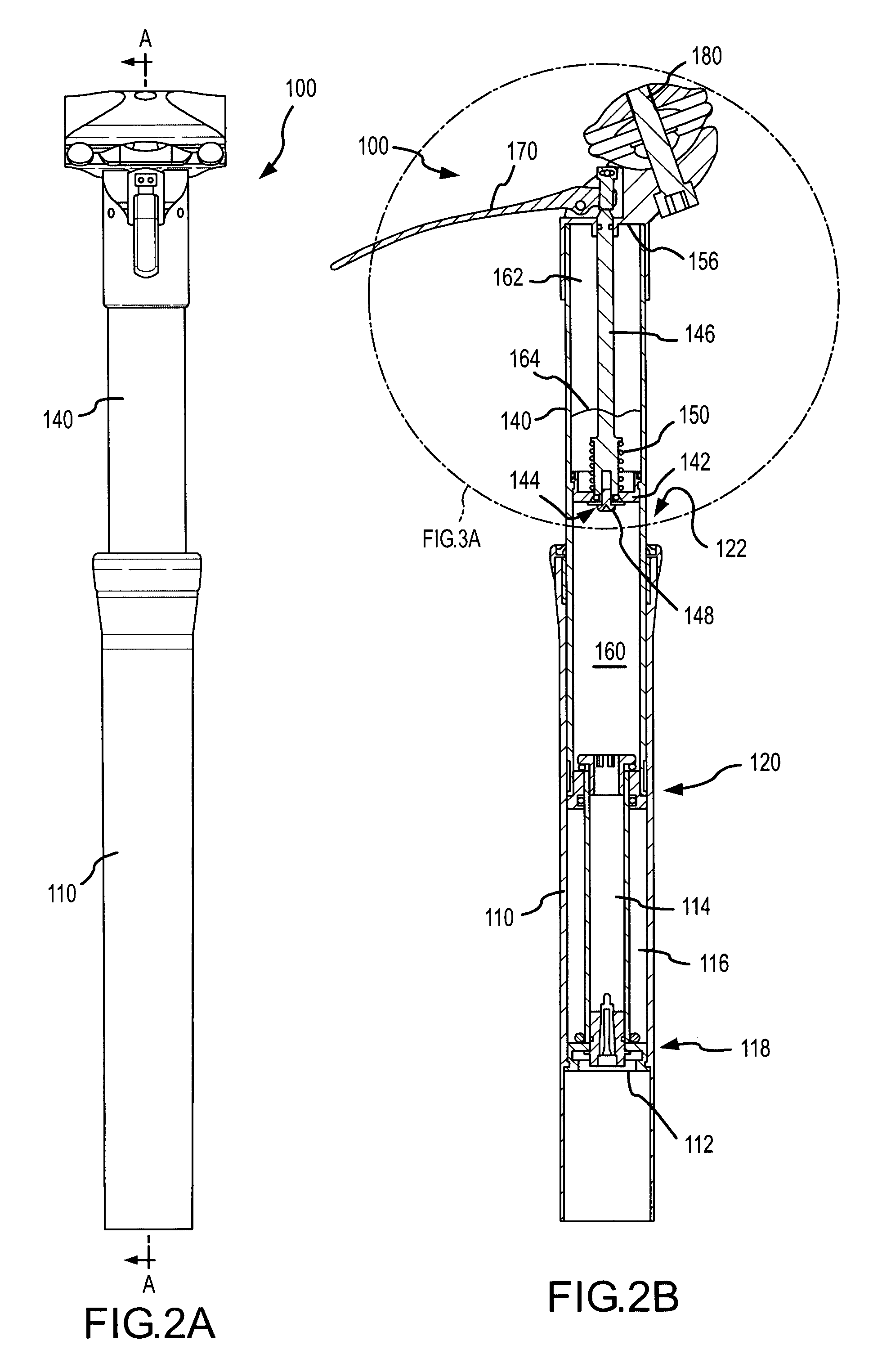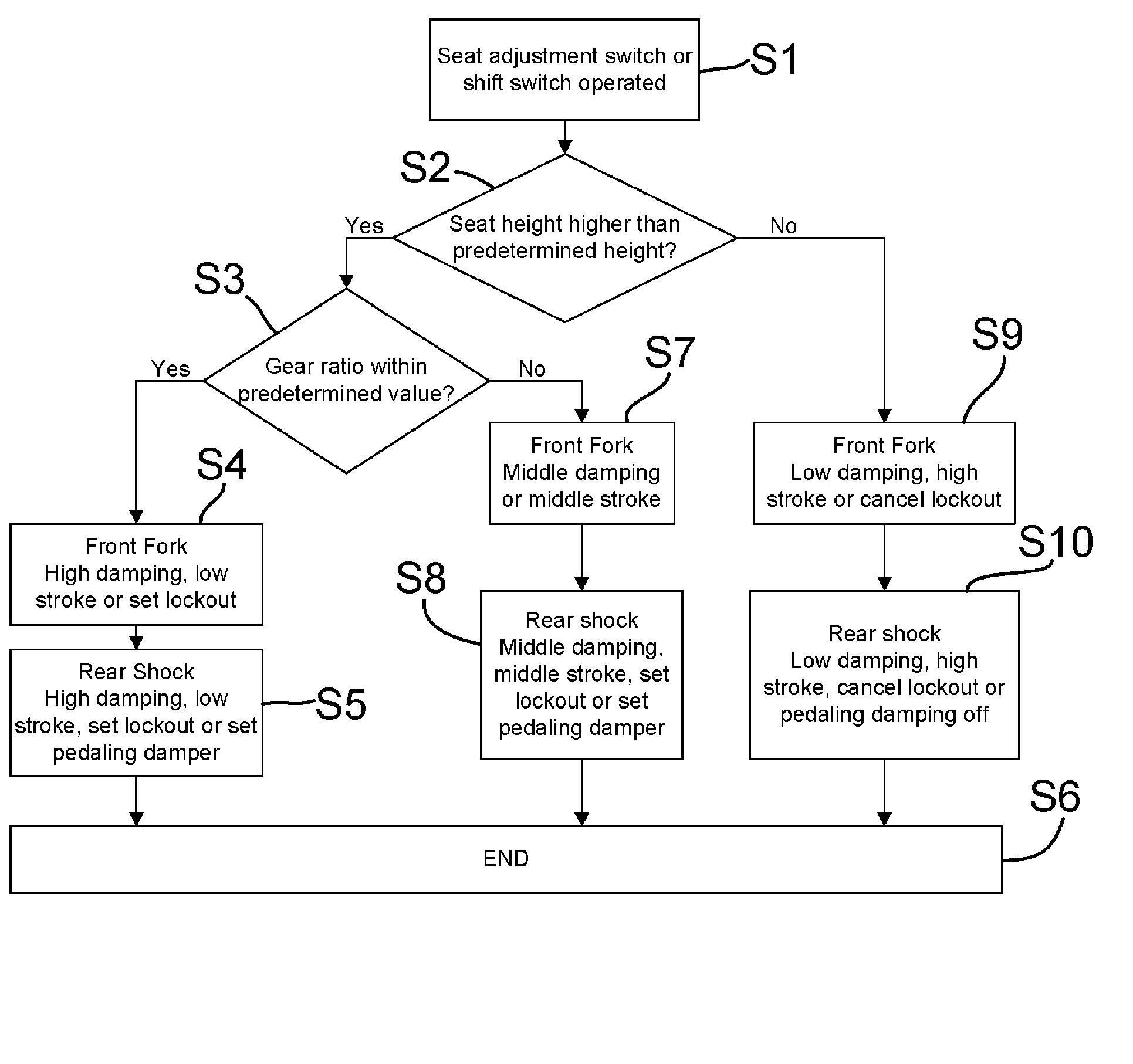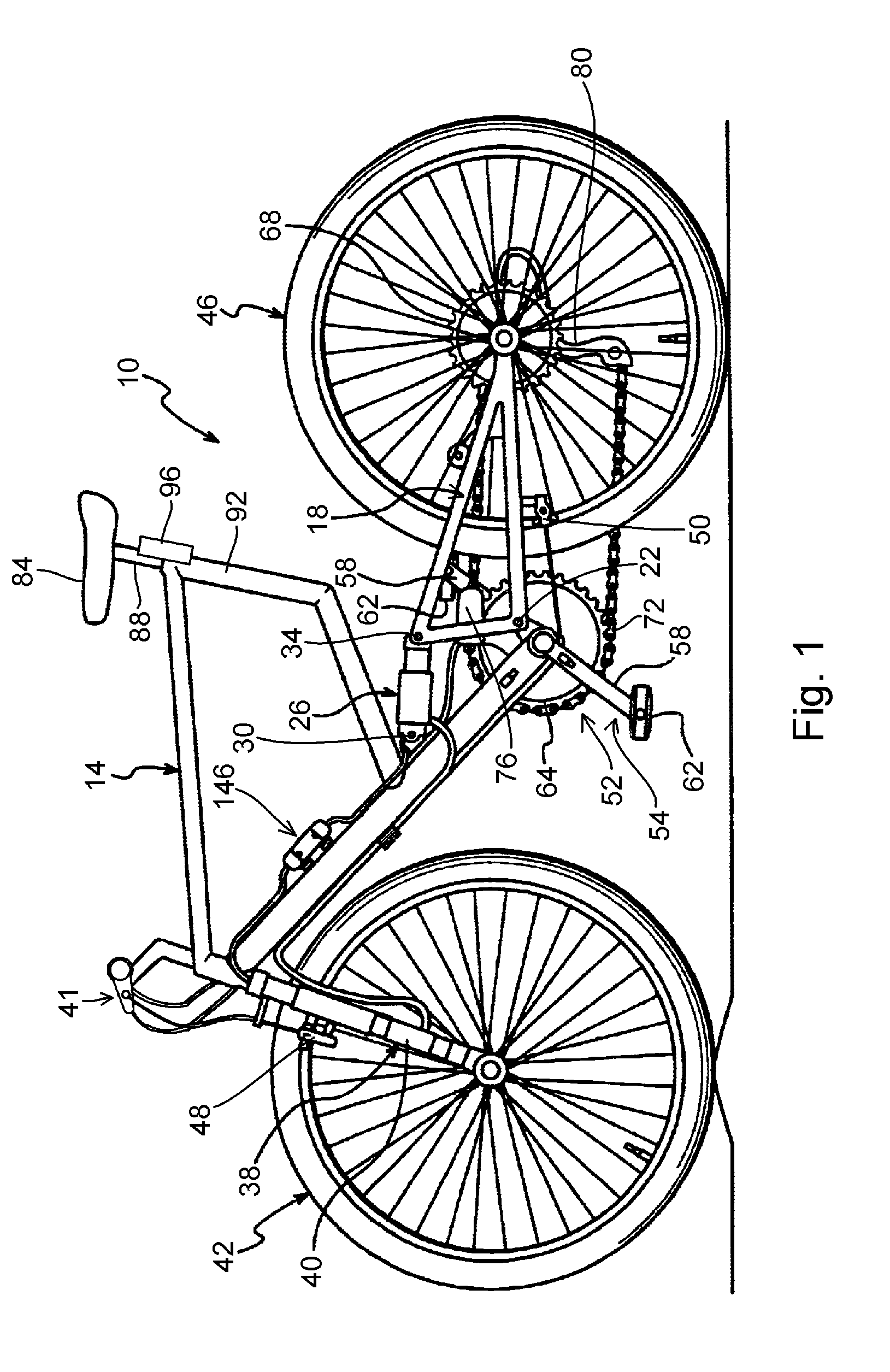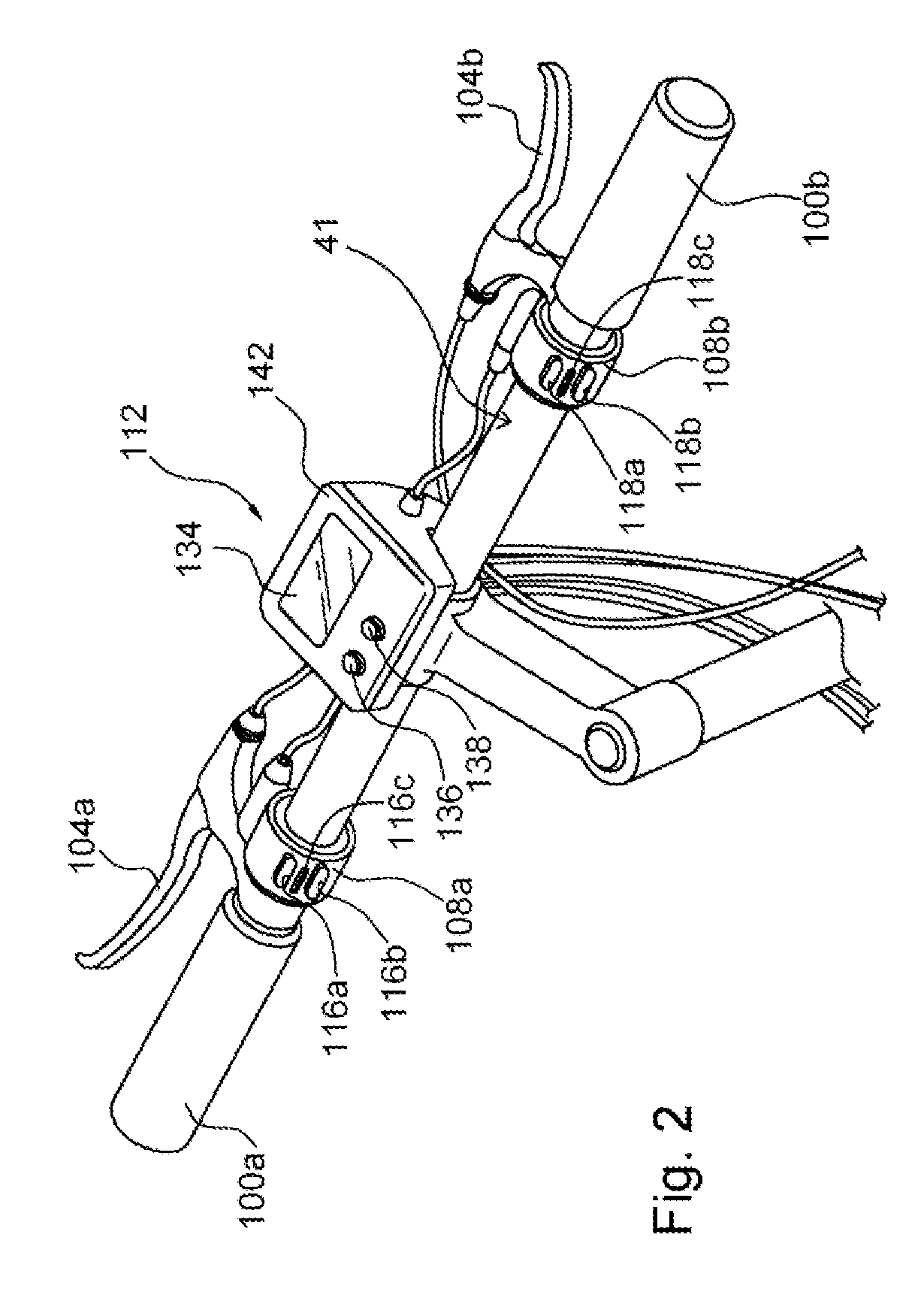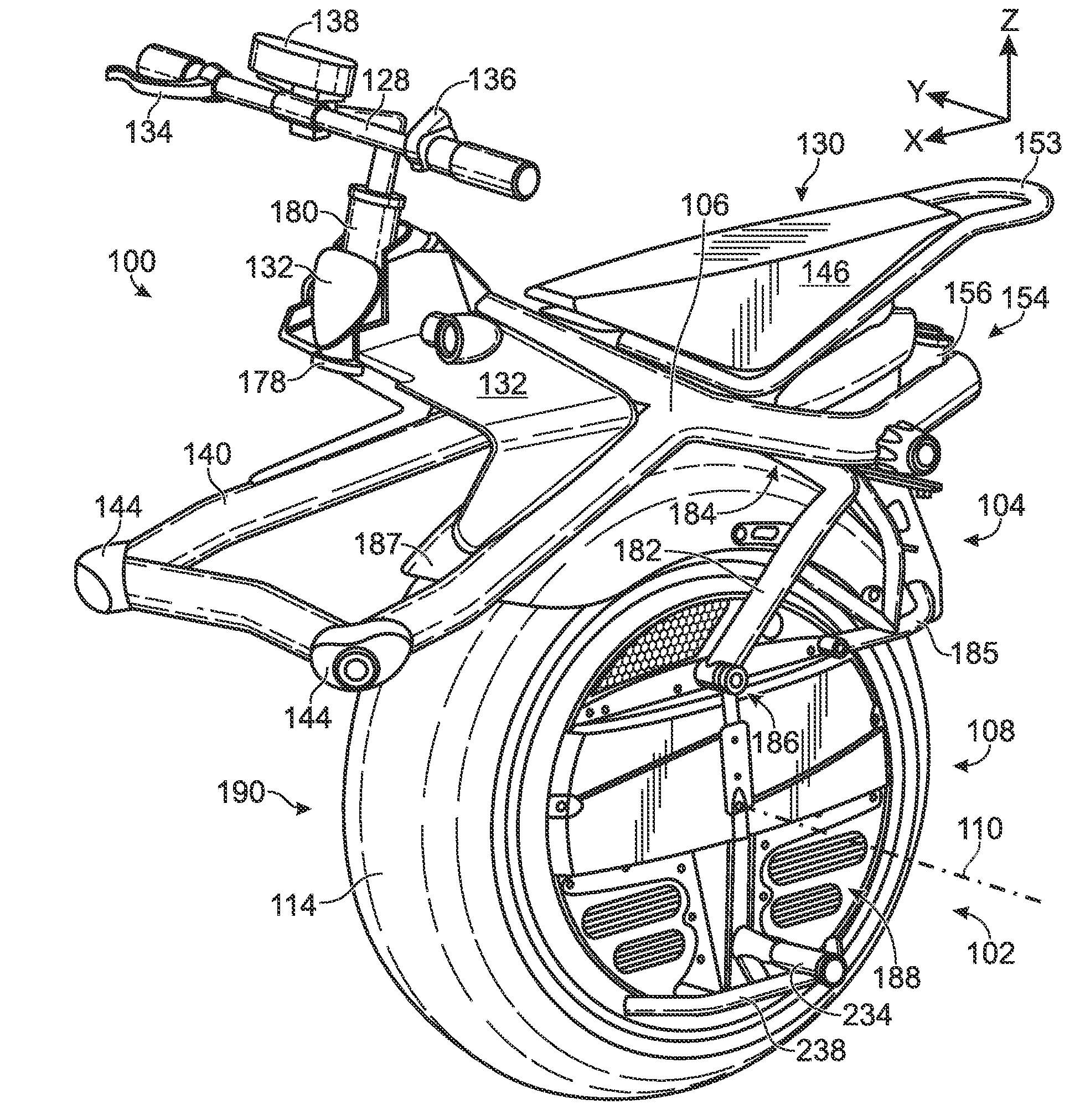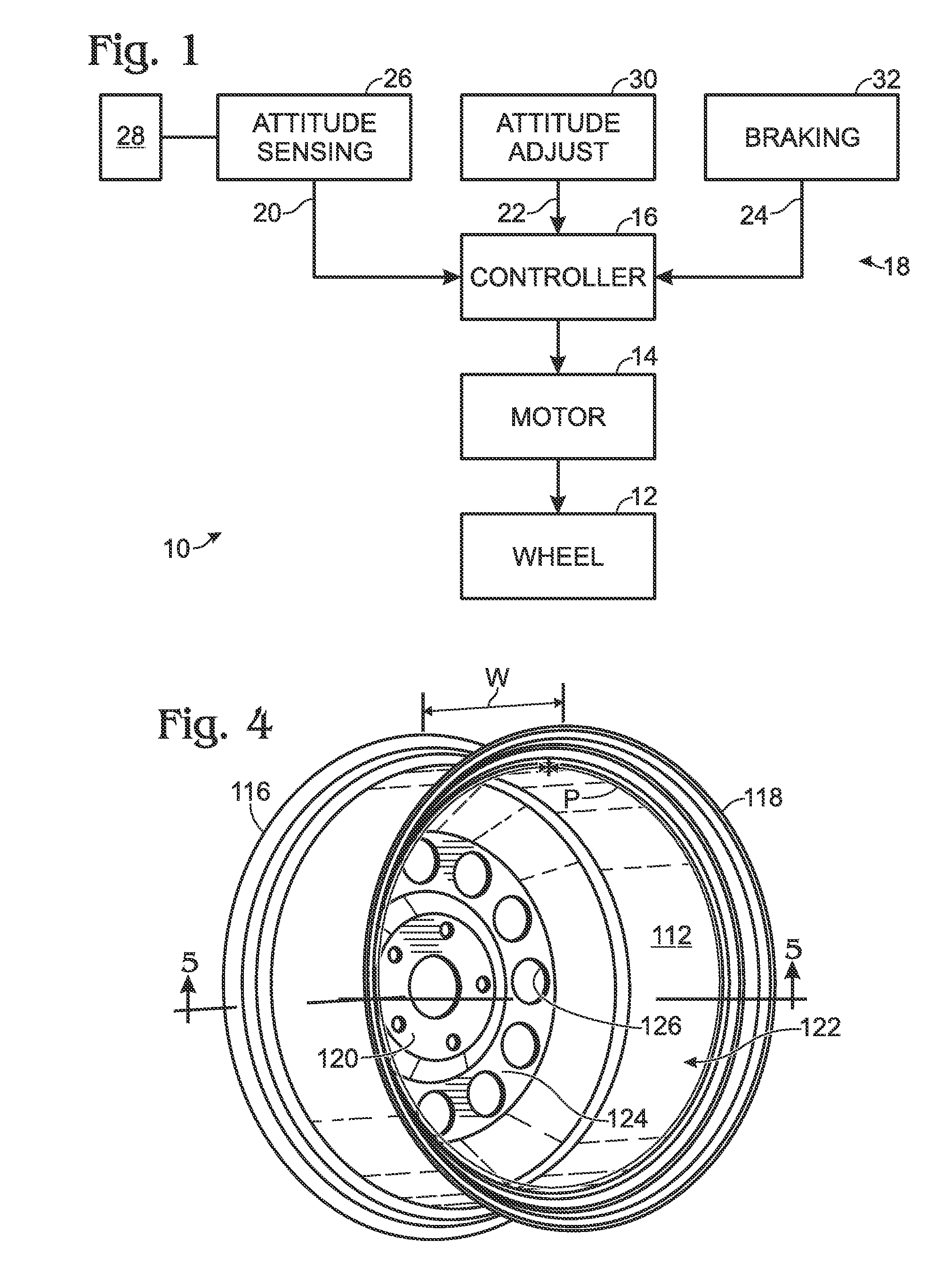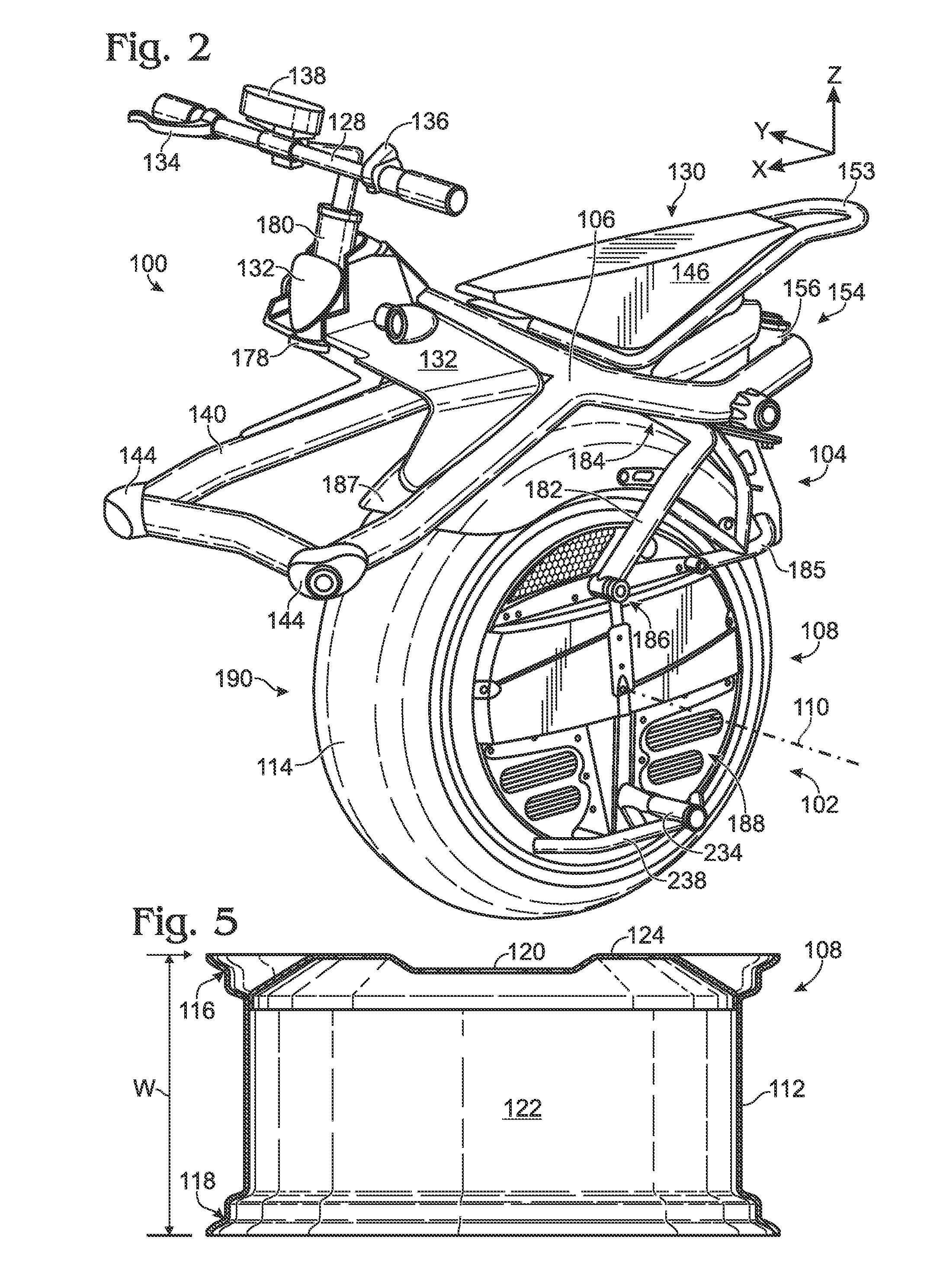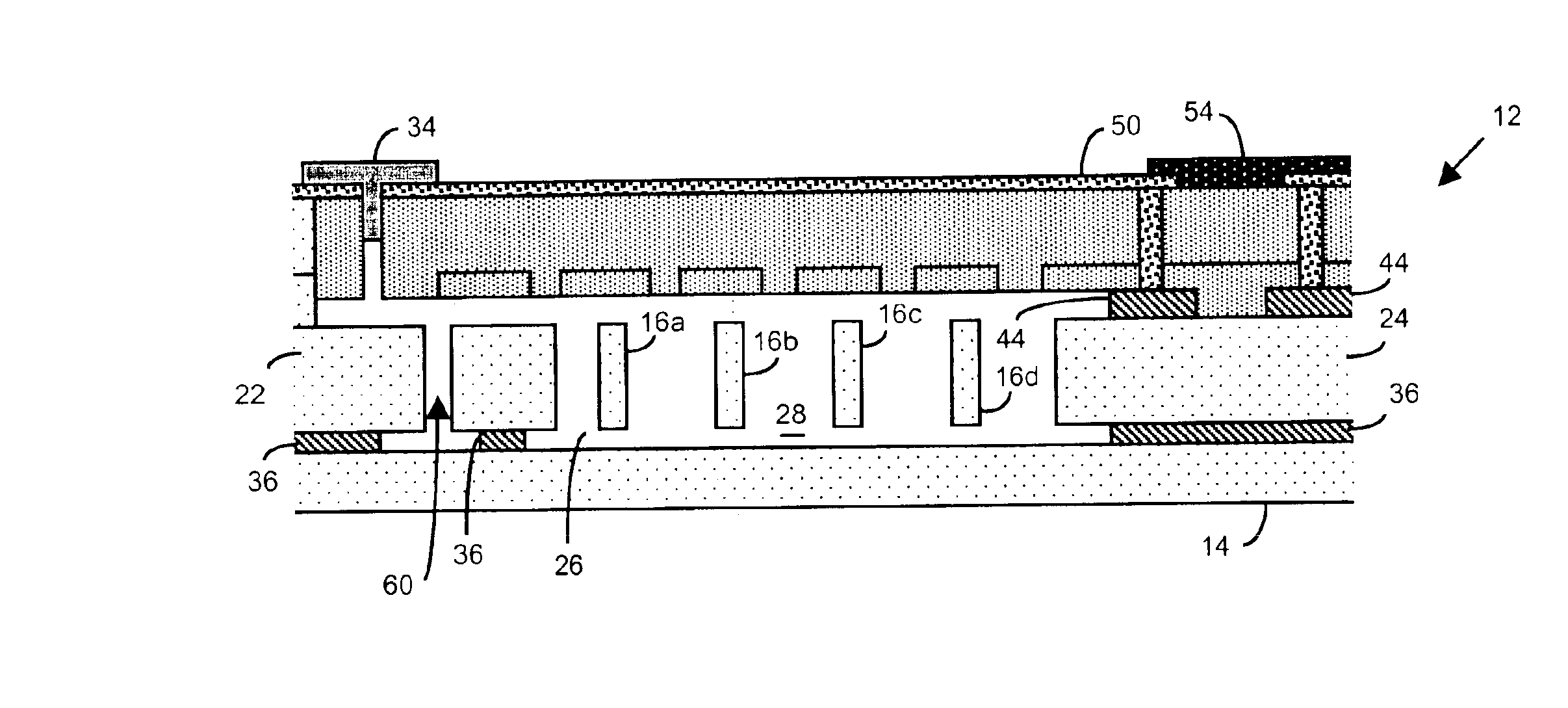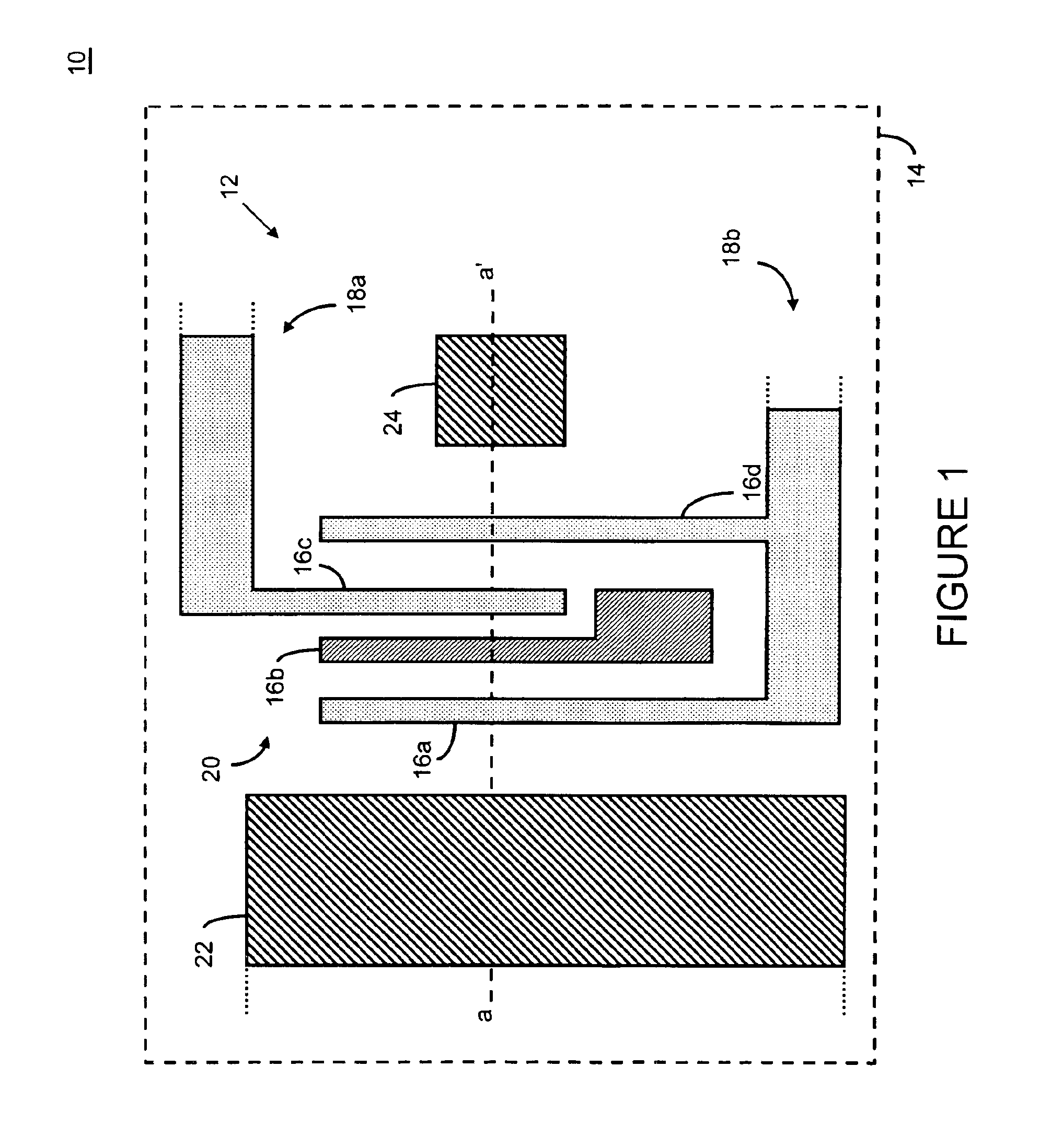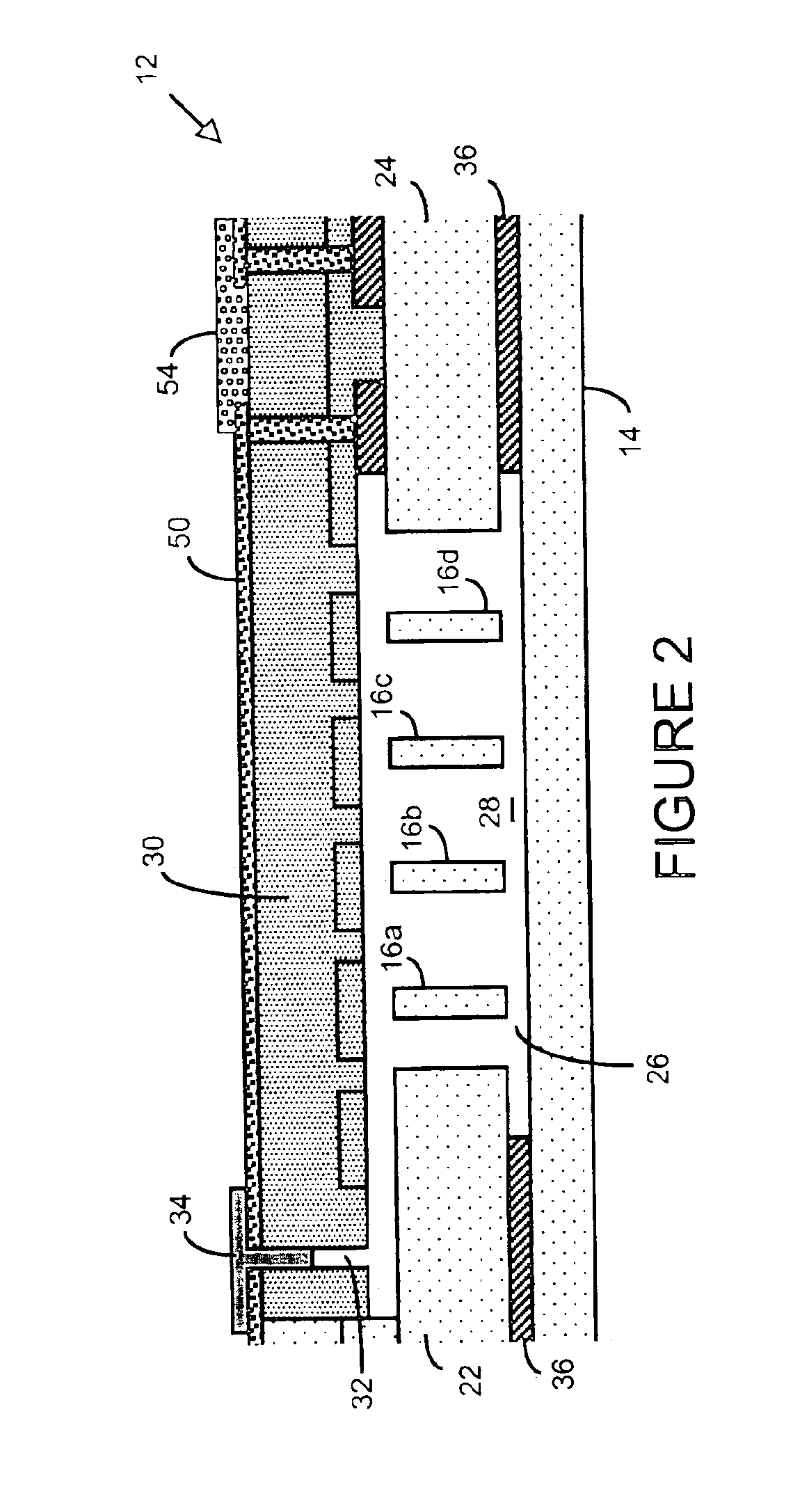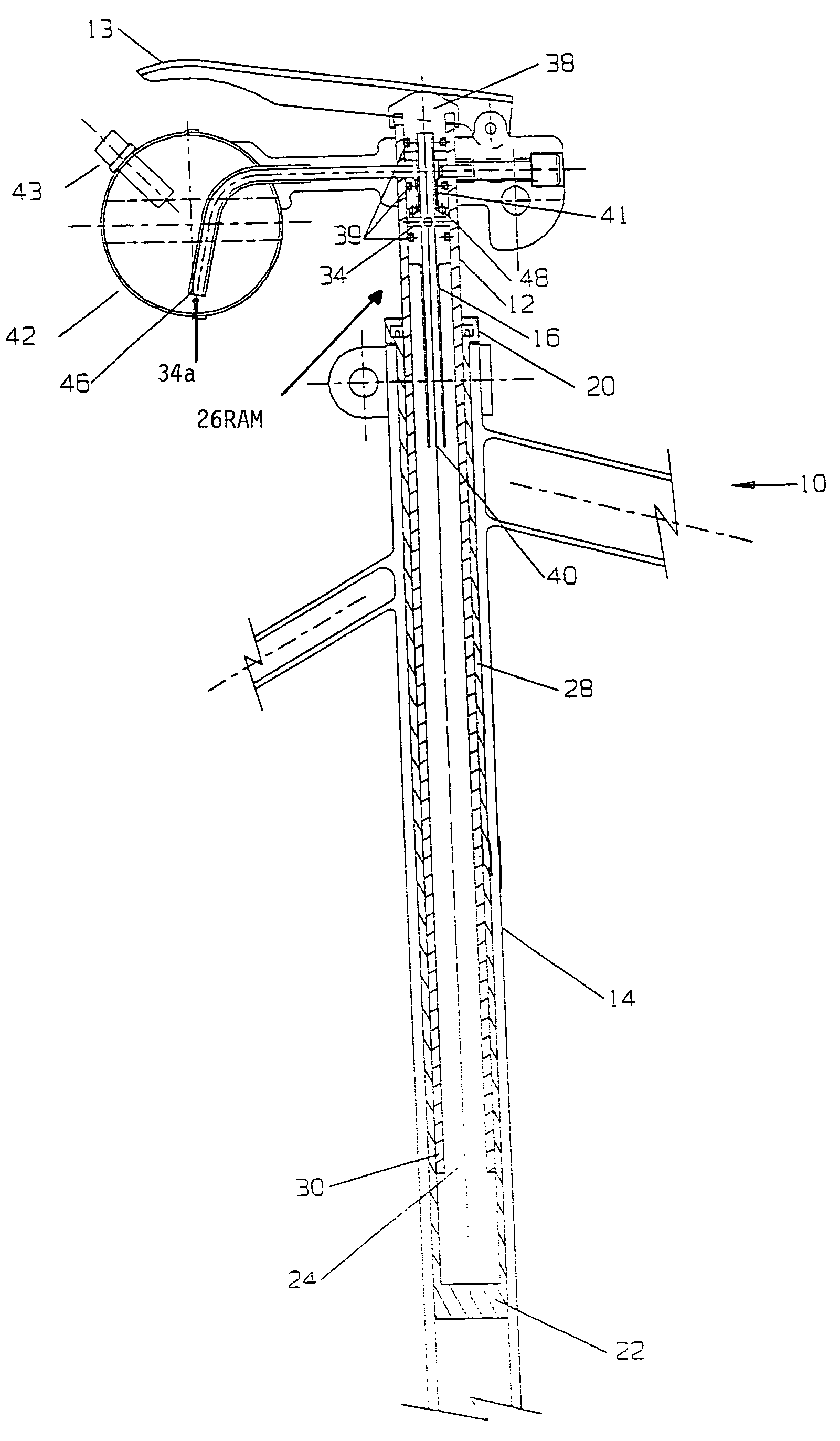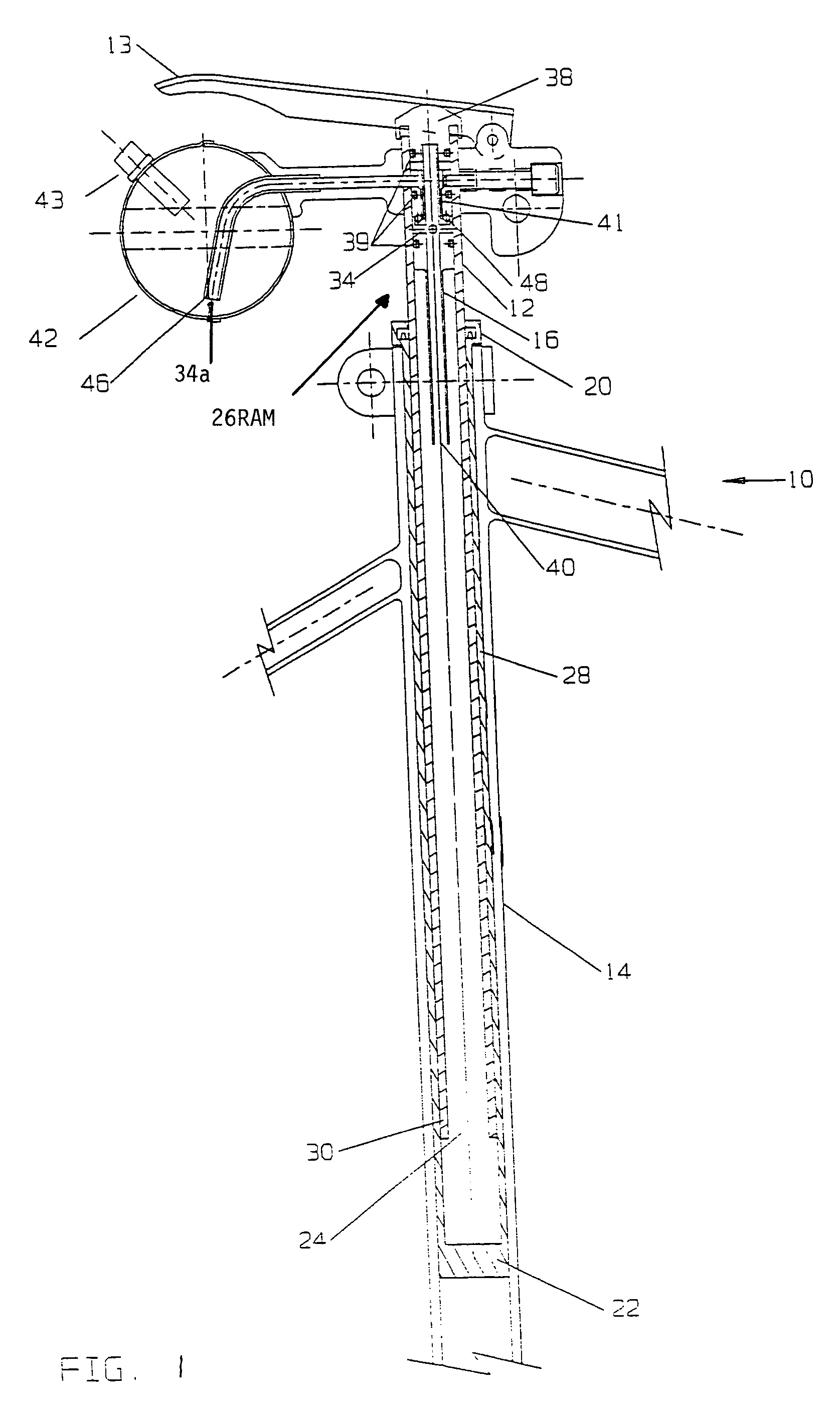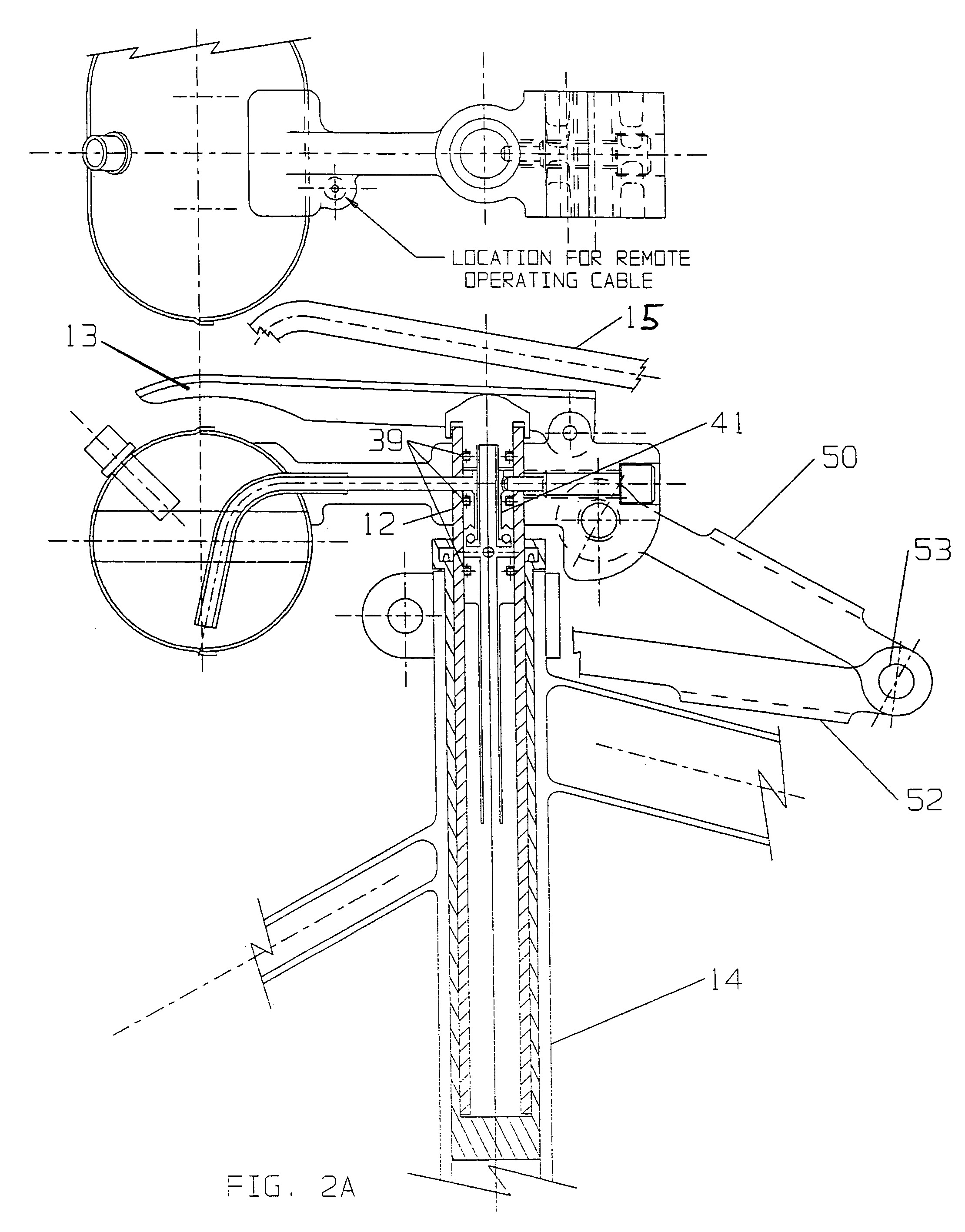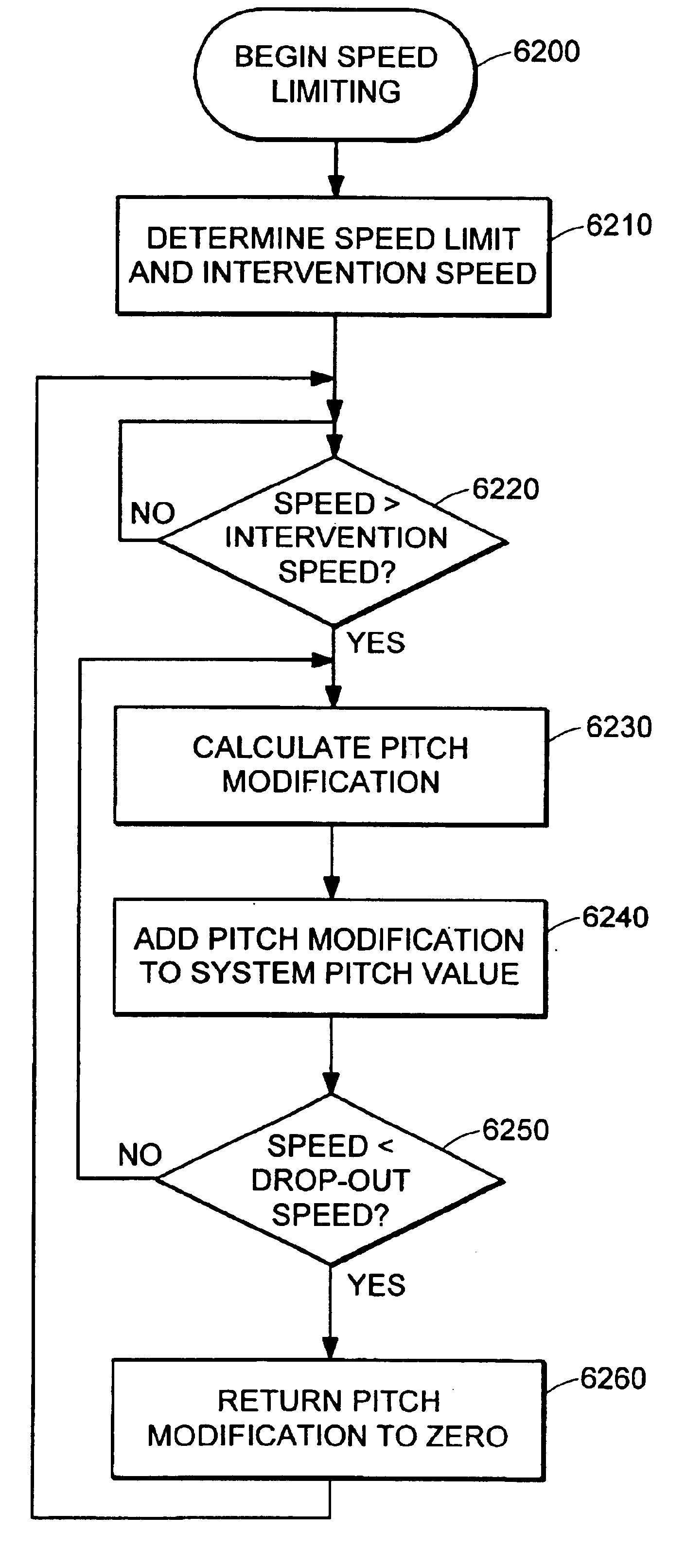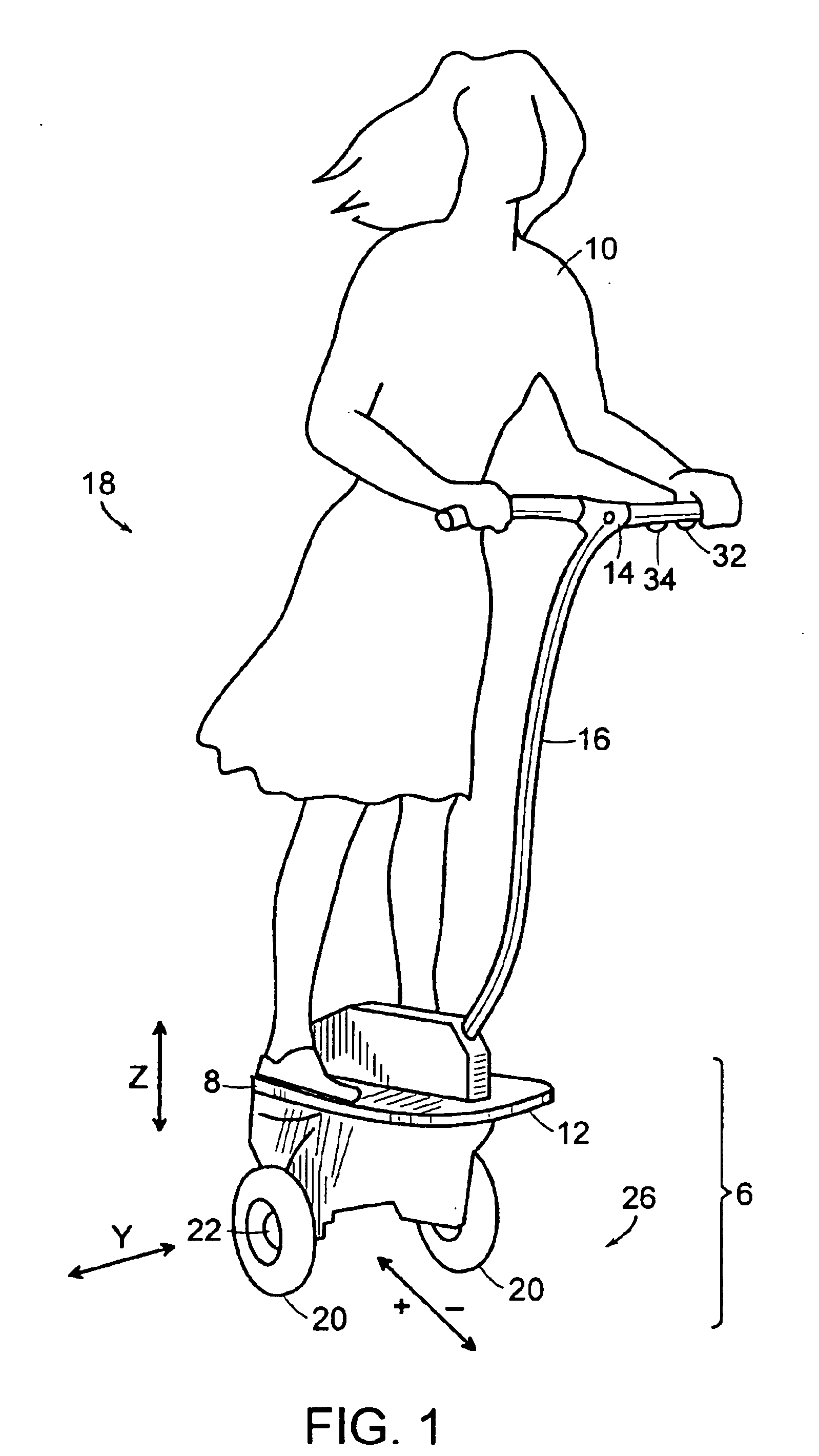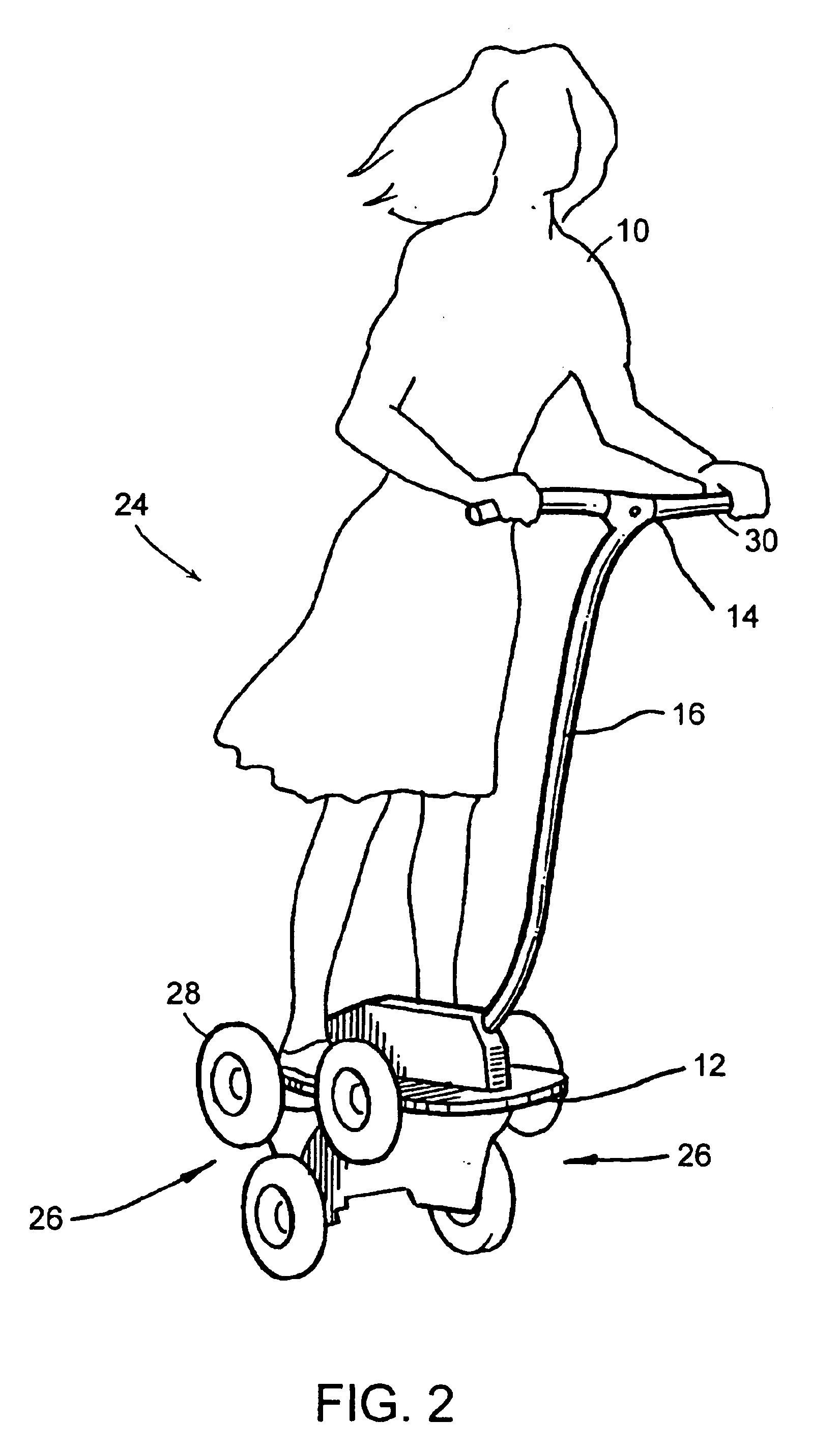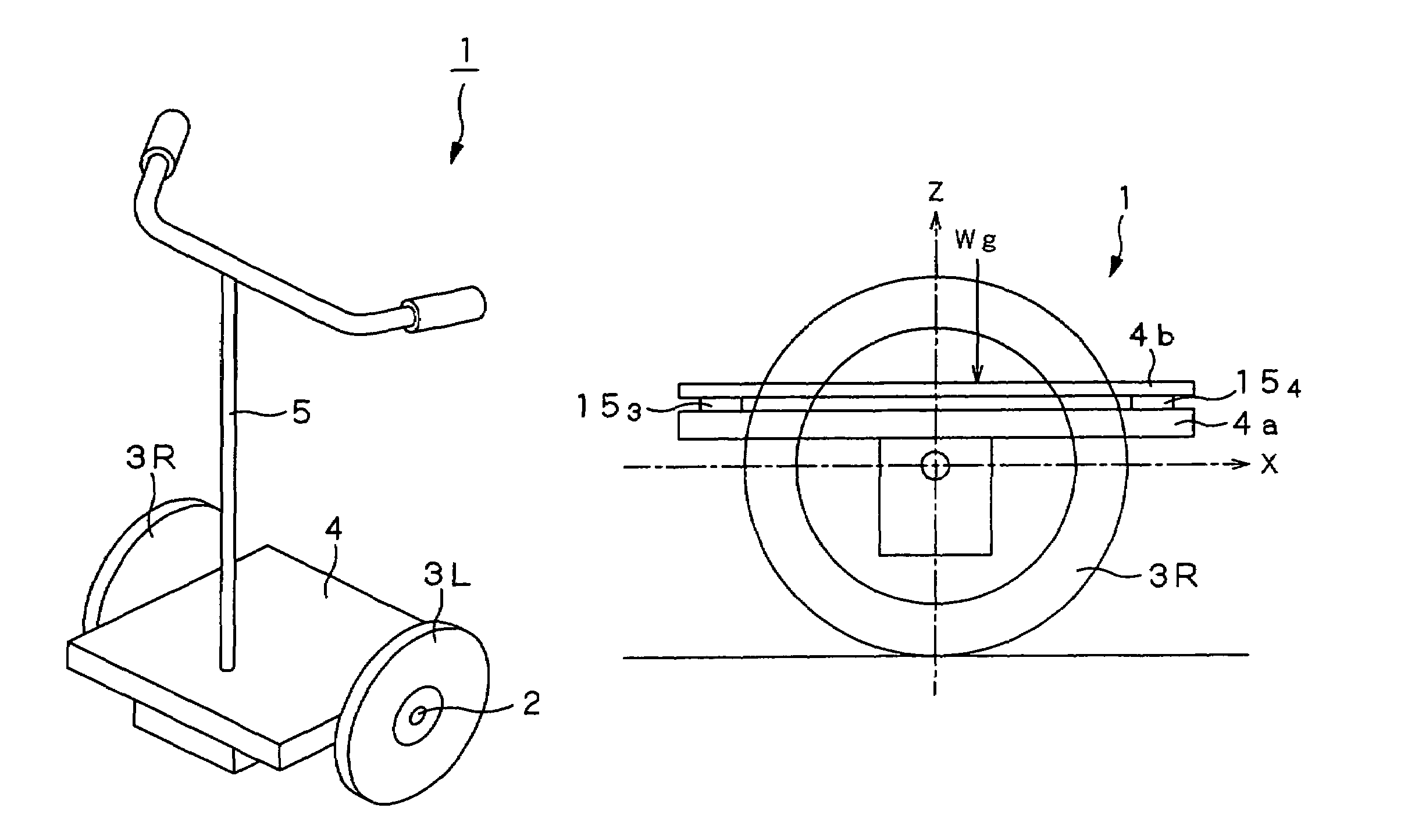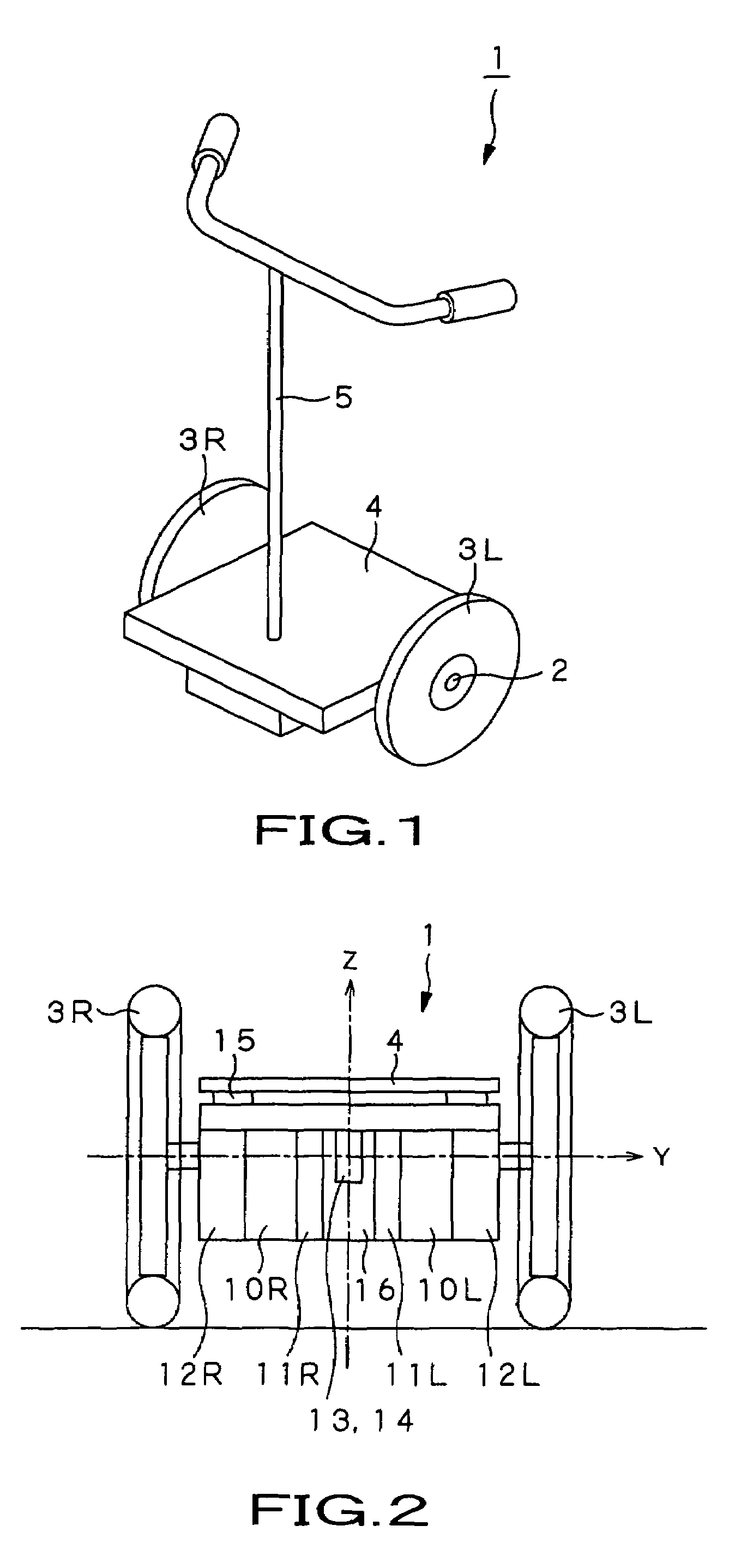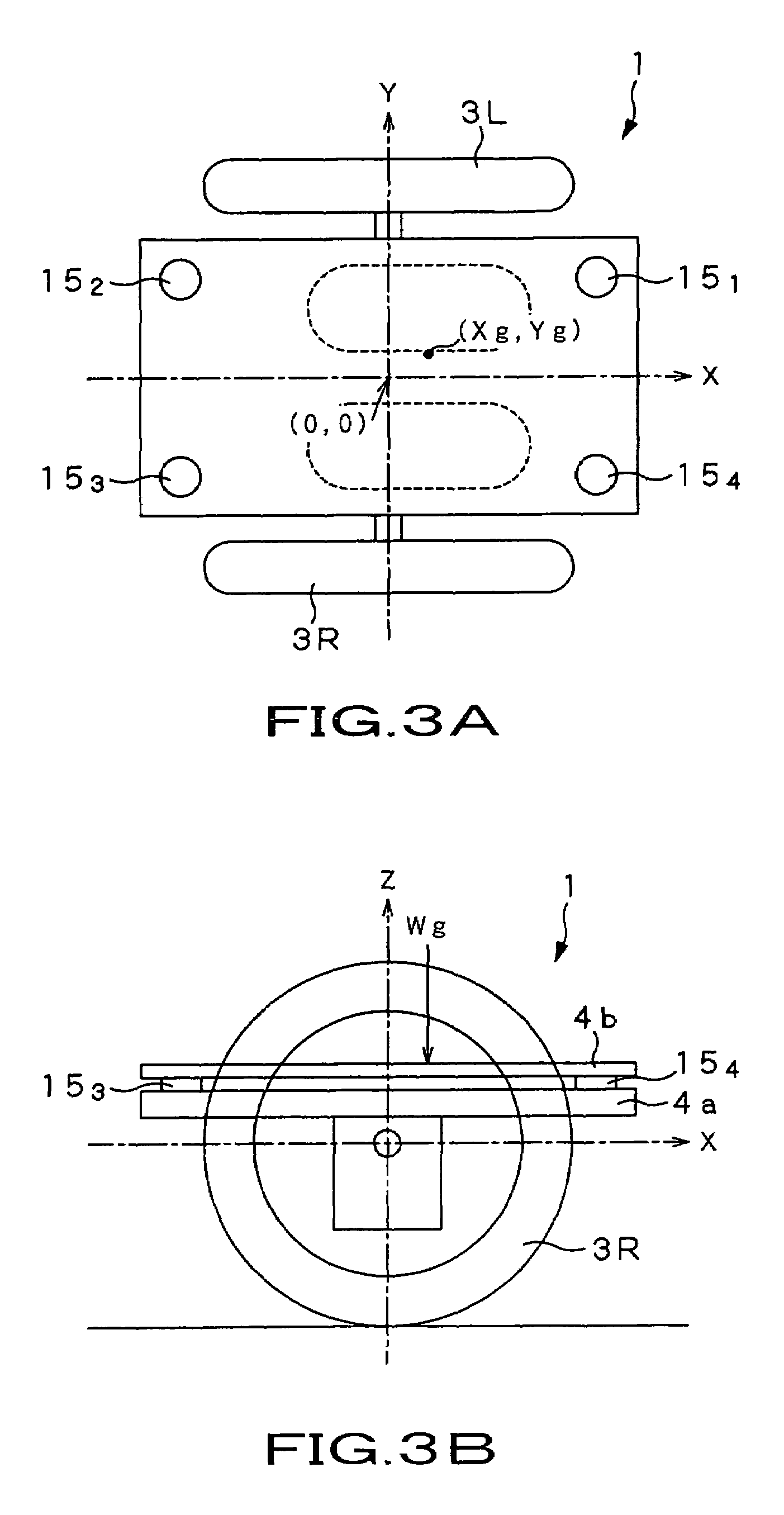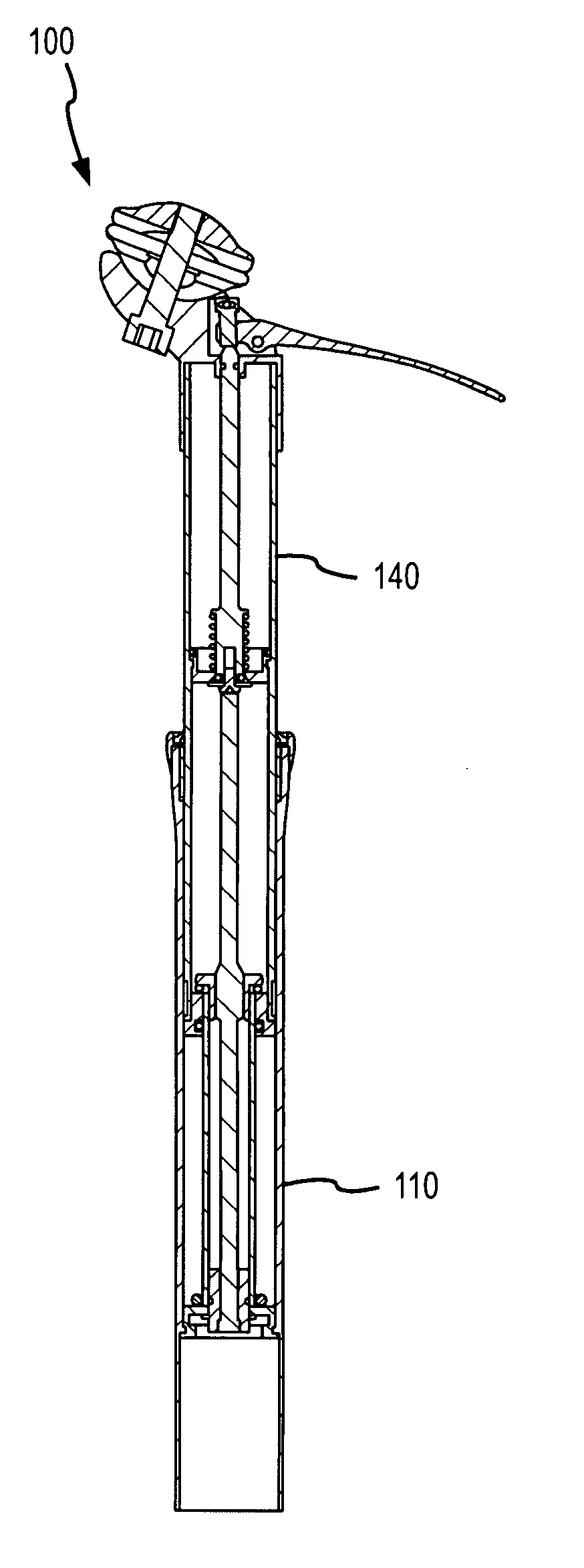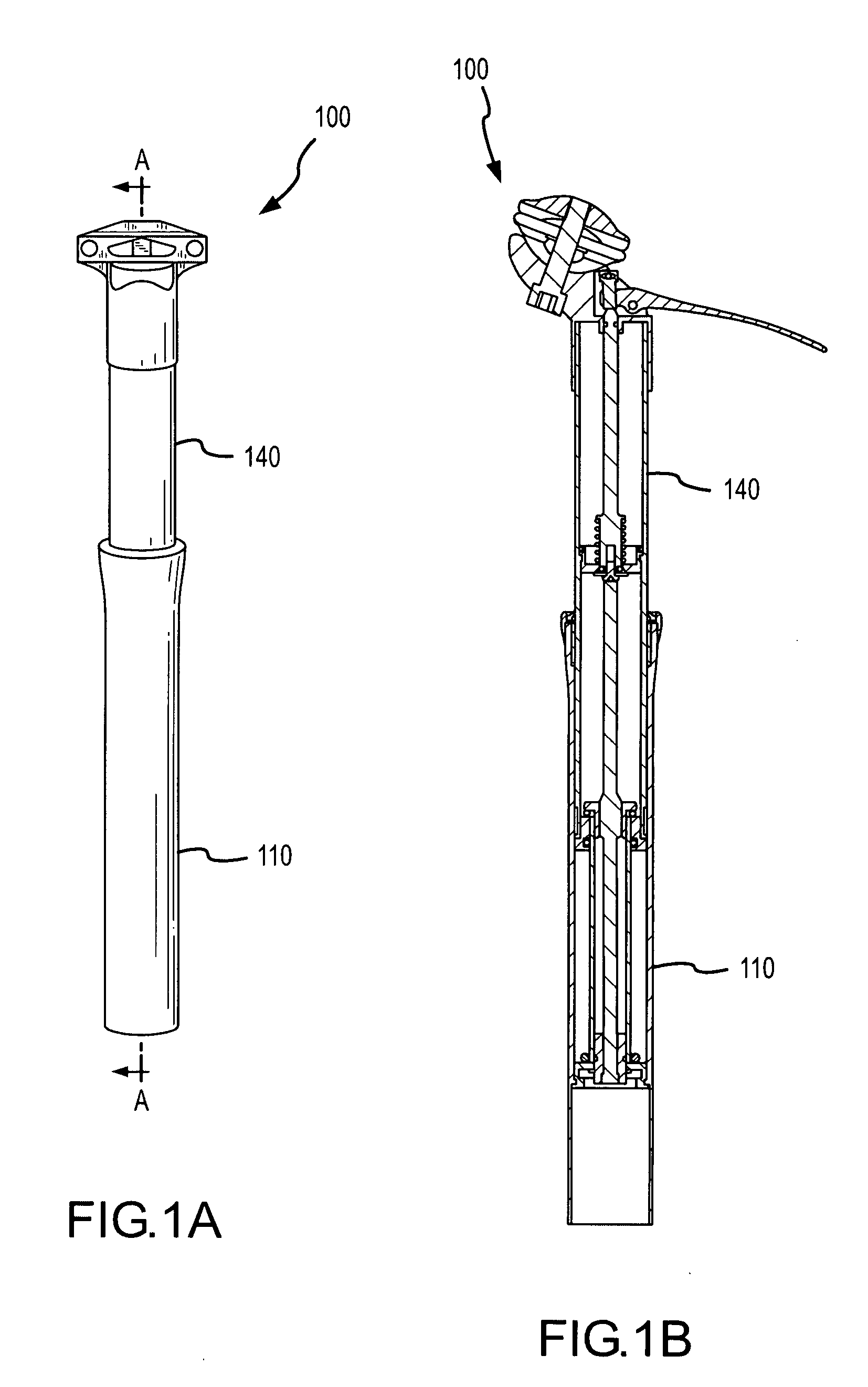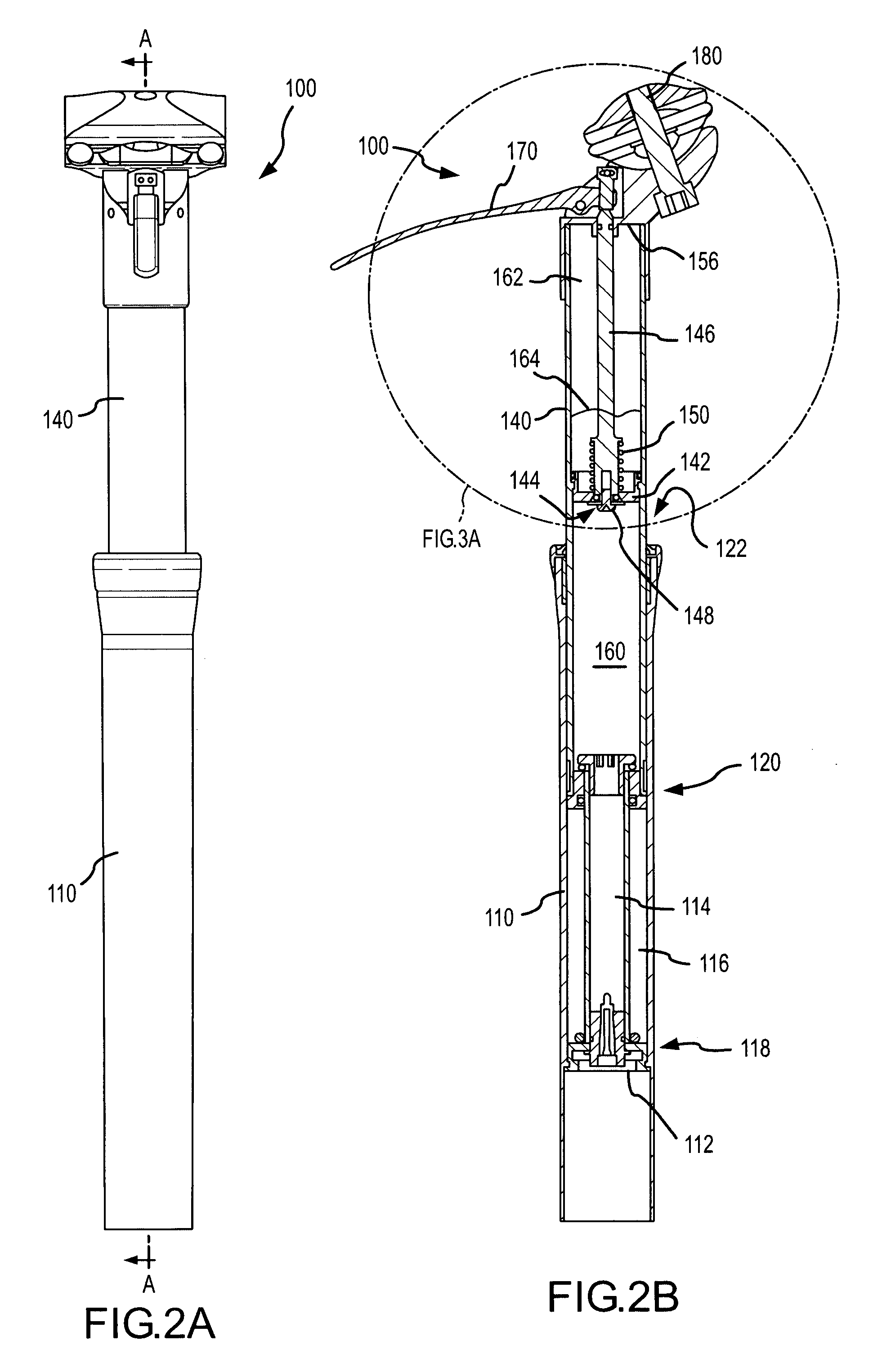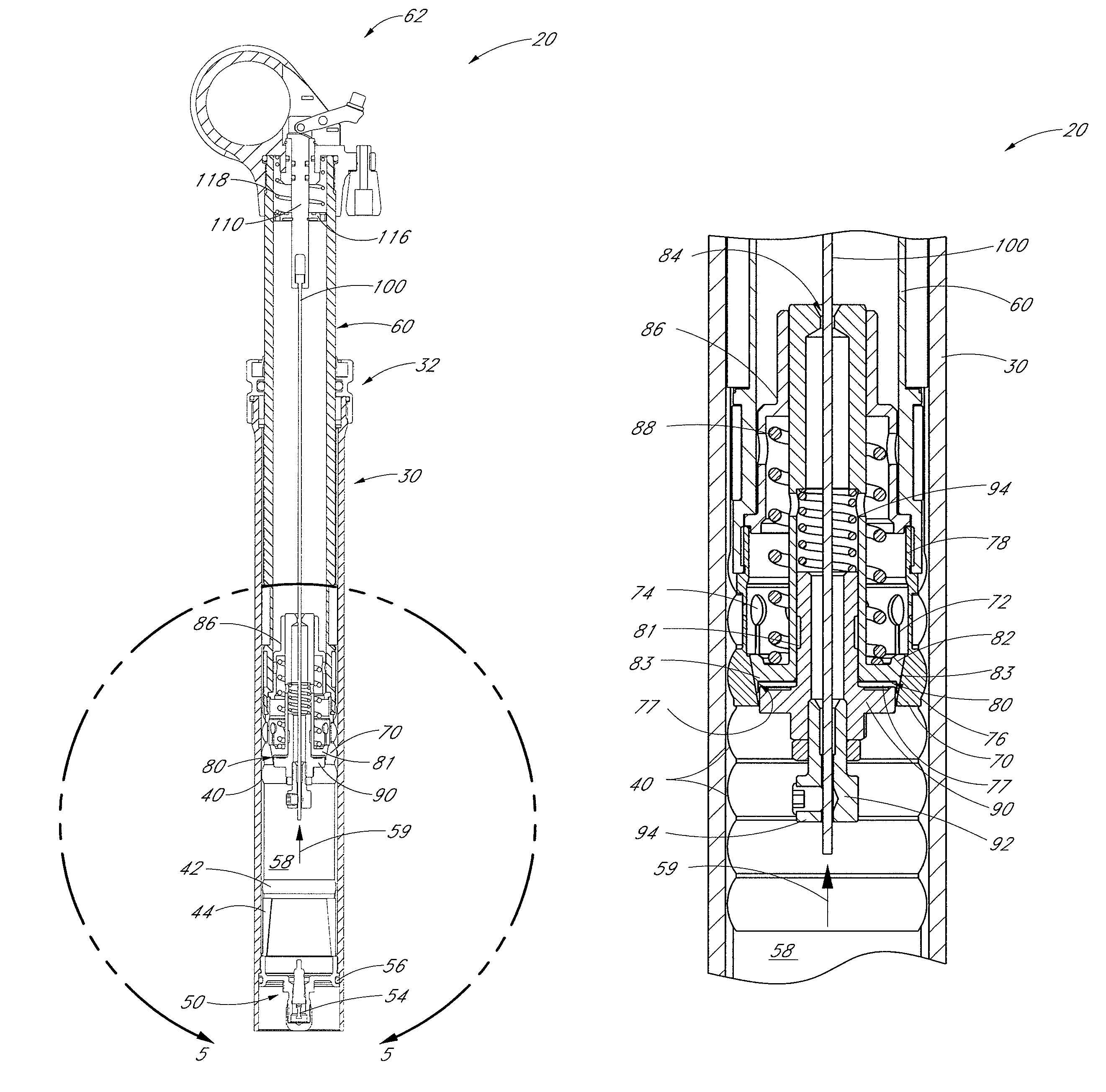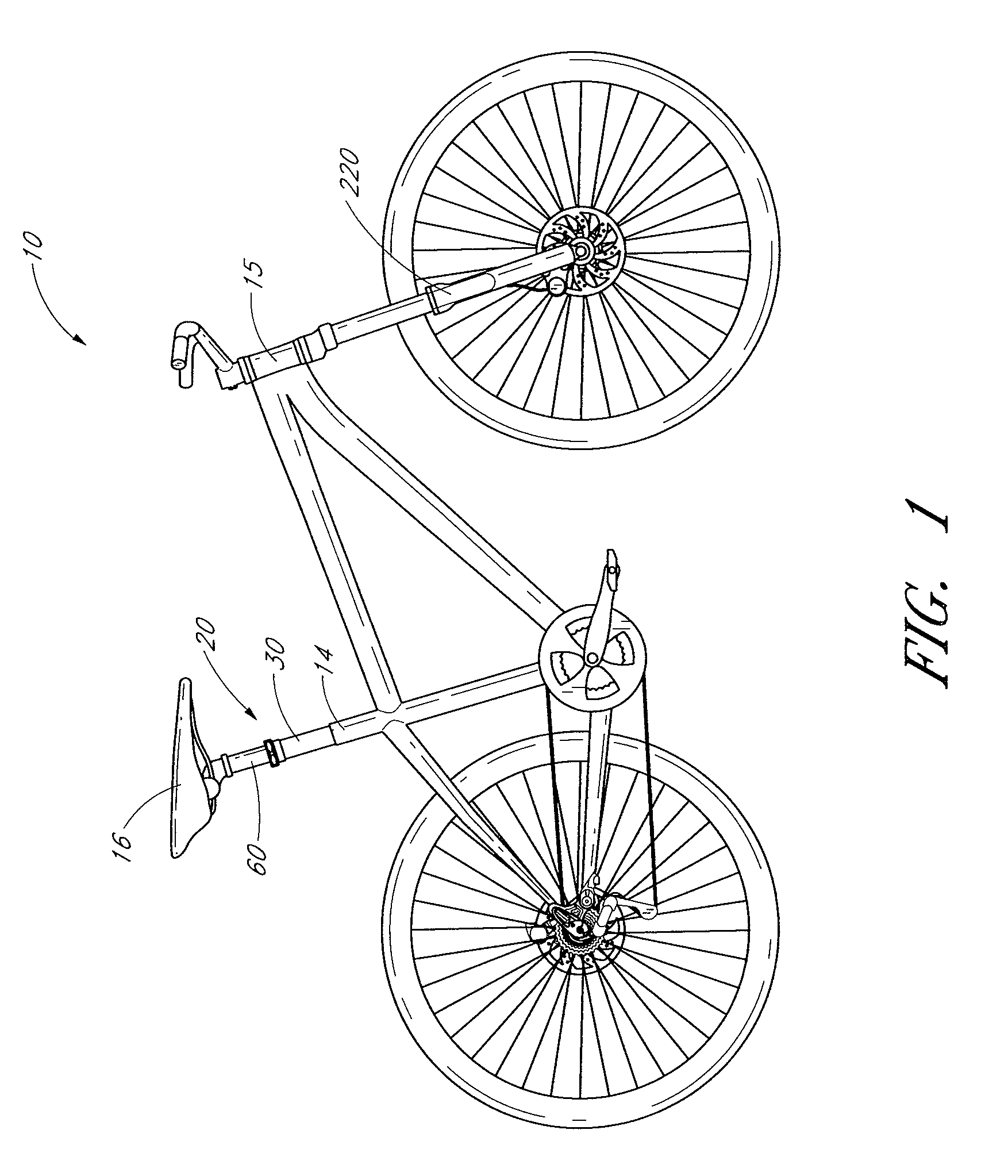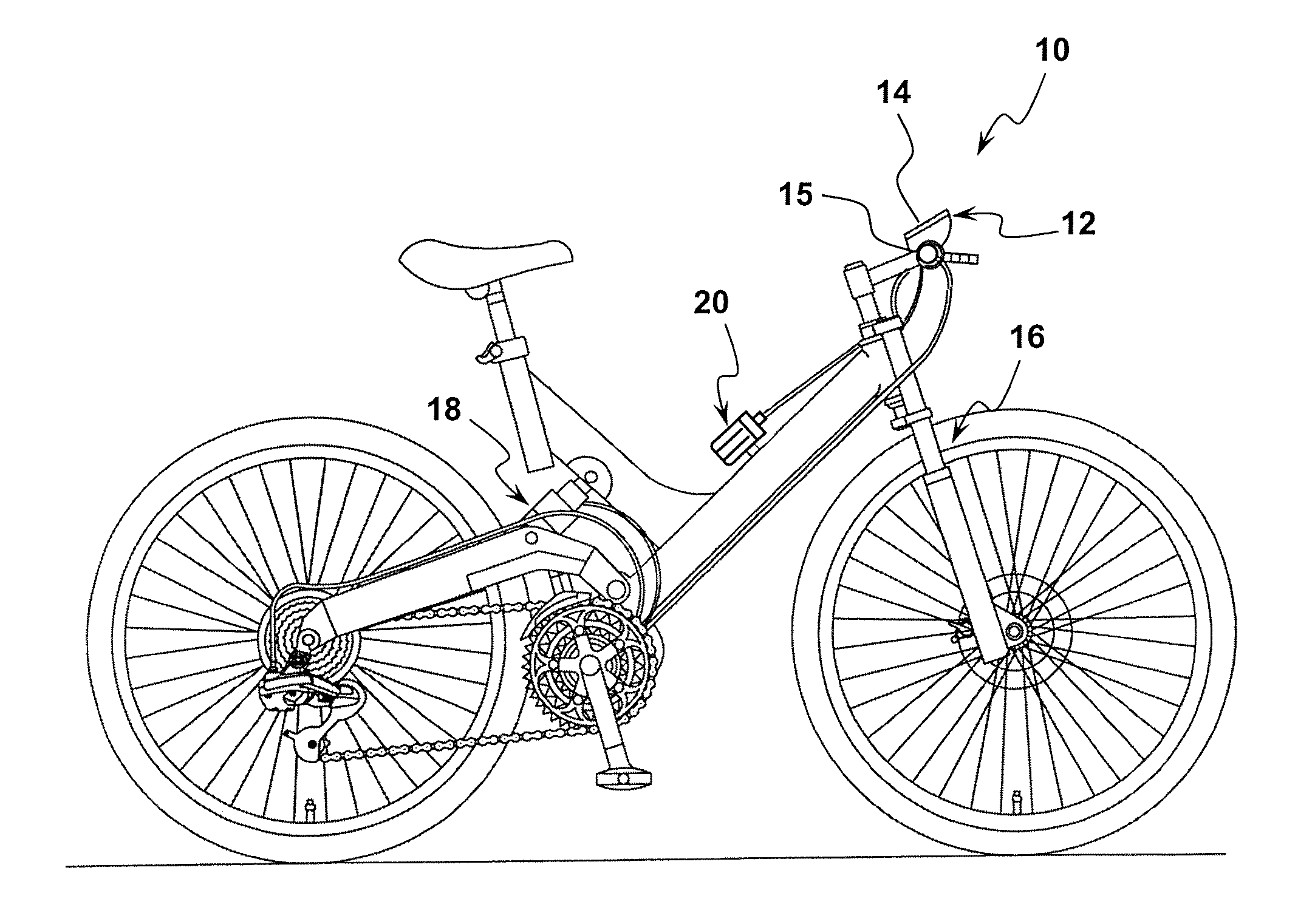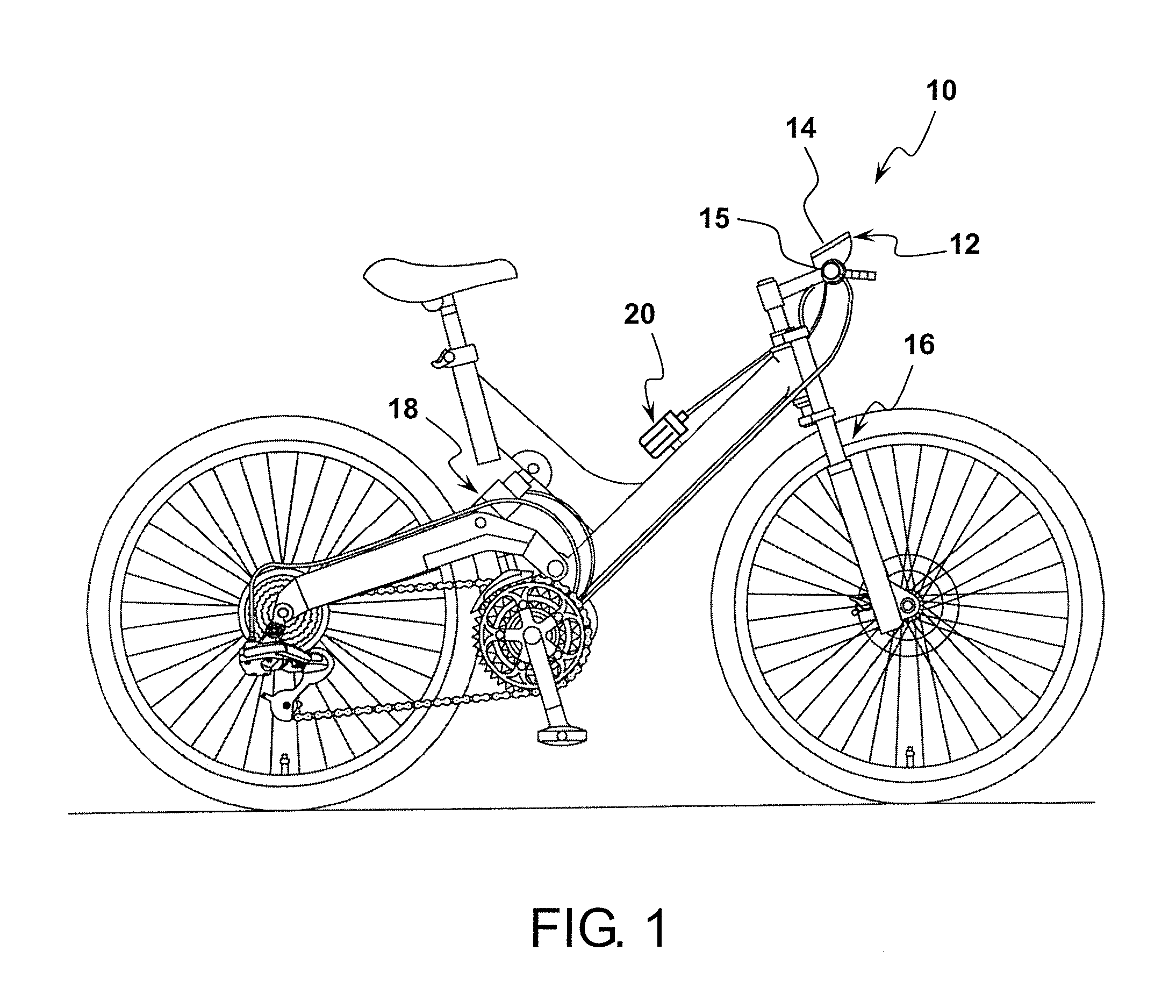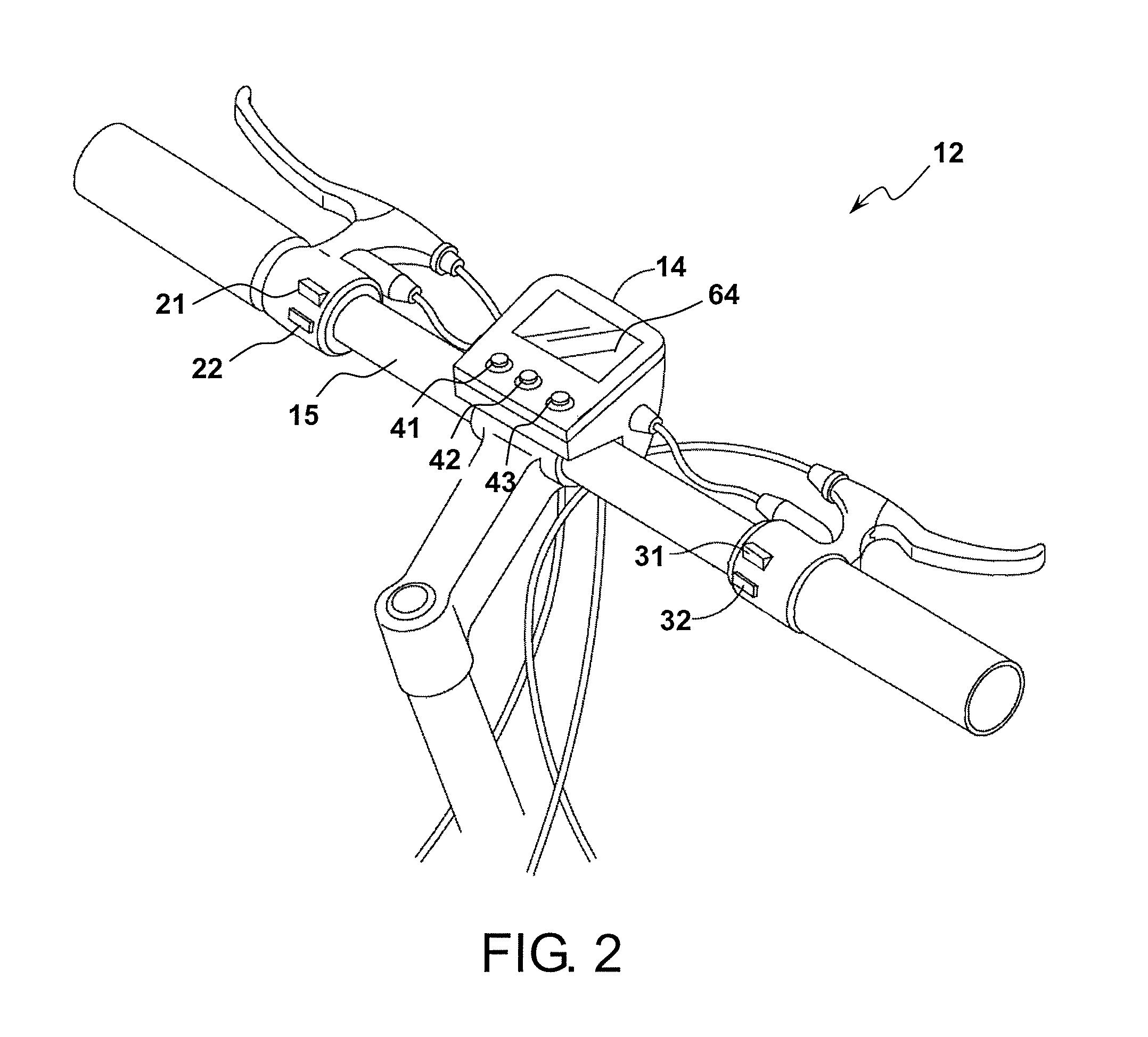Patents
Literature
Hiro is an intelligent assistant for R&D personnel, combined with Patent DNA, to facilitate innovative research.
2172results about "Unicycles" patented technology
Efficacy Topic
Property
Owner
Technical Advancement
Application Domain
Technology Topic
Technology Field Word
Patent Country/Region
Patent Type
Patent Status
Application Year
Inventor
Bicycle fork cartridge assembly
InactiveUS6592136B2Wheel based transmissionFrictional rollers based transmissionEngineeringMechanical engineering
An off-road bicycle suspension fork includes a pair of fork leg assemblies, each of the leg assemblies having an upper leg telescopingly engaged with a lower leg. A damping assembly is provided in at least one of the legs and includes a cartridge tube connected to the lower leg and a piston connected to the upper tube by a shaft. The piston is telescopingly engaged with the cartridge tube to define a compression chamber below the piston. A control assembly is located at a top portion of the upper leg and is in communication with the compression chamber via a central passage of the shaft. A reservoir is defined between at least a portion of the lower tube and the cartridge. During compression of the suspension fork, fluid flows from the compression chamber, upward through the central passage of the shaft, through the control assembly and to the reservoir.
Owner:FOX FACTORY
Powered single-wheeled self-balancing vehicle for standing user
ActiveUS20110220427A1Less to manufactureEasy to useUnicyclesFoldable cyclesDrive wheelSoft materials
A powered, gyroscopically balanced unicycle device to be used while standing, having leg contact surfaces which are made of a yielding, slightly soft material whose mild friction against the user's legs allows stable, precise control of the device without restraining the legs in any way. In one embodiment a single hubless wheel is driven by a friction drive mechanism which transmits torque from a motor through a drive wheel positioned below the foot platforms and in contact with the inner rim of the wheel. Various structures are provided for supporting the wheel and keeping it in place as it spins; absorbing small vertical movements of the wheel to prevent them from being transmitted to the foot platforms; enabling folding of the foot platforms; and facilitating carrying of the device by hand. Other embodiments are described and shown.
Owner:SHANE CHEN
Bicycle user interface system and method of operation thereof
A bicycle is disclosed having a control system with a user interface and an active suspension system. The control system includes a one or more sensors arranged to measure and transmit a signal indicative of the terrain over which the bicycle is being ridden. The active suspension system includes a valve box that is fluidly coupled to each chamber of the lower cylinder. An orifice in the valve box is changed in size in response to a signal from a sensor associated with the front wheel that changes the response of the suspension system due to changing terrain conditions. The user interface includes a selection device mounted to the handlebars that allows the user to change parameters of the active suspension system during operation of the bicycle.
Owner:CANNONDALE BICYCLE CORPORATION
Tilting wheeled vehicle
ActiveUS7487985B1Complex control systemWheel based transmissionFrictional rollers based transmissionControl systemCaster angle
A tilting, preferably three-wheeled, vehicle is disclosed that has a tilting mechanism that allows the vehicle to have leaning characteristics substantially similar to those offered by an in-line two-wheeled vehicle, but that does not require complex linkages and / or control systems to operate effectively. A tilting linkage is operably secured to a frame to allow a pair of spaced apart wheels to remain substantially aligned with the plane of the vehicle throughout its range of movement while still allowing the steering axes of each wheel to intersect the substantially vertical centerline of each wheel. The linkage also allows the caster angle of each wheel's pivot axis can be optimized independently of the angle of the vehicle's handlebar steering shaft.
Owner:ARCIMOTO
Bicycle suspension assembly
InactiveUS20090001684A1Wheel based transmissionFrictional rollers based transmissionDual stageGas spring
A bicycle suspension assembly may be in the form of a bicycle front suspension fork. The suspension fork may include a pair of telescoping fork legs. In one arrangement, a suspension spring and a damper are provided in only one of the pair of fork legs. The suspension spring assembly may include a negative spring. In one arrangement, the negative spring is a dual stage negative gas spring in which a negative spring gas chamber includes a first chamber section and a second chamber section. The first chamber section and the second chamber section are uncoupled in a first position of the suspension spring and the first chamber section and the second chamber section are coupled in a second position of the suspension spring.
Owner:SPECIALIZED BICYCLE COMPONENTS INC
Vertically adjustable bicycle assembly
ActiveUS20090324327A1Wheel based transmissionFrictional rollers based transmissionExpansion jointElectrical and Electronics engineering
An adjustable assembly for a bicycle includes a first support having an interior surface and a second support slidably positioned within at least a portion of the first support. One of the first support and the second support is adapted to attach to a first bicycle portion, and the other of the first support and the second support is adapted to attach to a second bicycle portion. Further, the second support comprises an expansion portion configured to be moved between an expanded position and a retracted position. The expansion portion is configured to engage the interior surface of the first support when the expansion portion is in an expanded position. In addition, the first support is configured to be selectively moved relative to the second support when the expansion portion is permitted to assume a retracted position. In some embodiments, the first bicycle portion comprises a bicycle frame and the second bicycle portion comprises a bicycle saddle. In other arrangements, the first bicycle portion comprises a fork assembly and the second bicycle portion comprises a handlebar assembly.
Owner:SPECIALIZED BICYCLE COMPONENTS INC
Vehicles and methods using center of gravity and mass shift control system
InactiveUS7350787B2Eliminate inadvertent shiftsPassenger cyclesChildren cyclesControl systemGravity center
A center of gravity (C / G) control system for a vehicle includes sensors to measure the center of gravity shift and mass shift of the human body in relation to the vehicle, a controller to determine outputs, a dynamically adjustable vehicle system, and a power supply. The sensor measures the direction and rate of shift of the center of gravity and mass shift of the human and creates a representative input signal. The controller determines the appropriate outputs in response to the relative center of gravity shift data received. The dynamically adjustable vehicle system receives the controller output and performs the expected action.
Owner:VOSS DARRELL W
Enhanced control of a transporter
InactiveUS7740099B2Reduce impactGood effectVehicle body stabilisationUnicyclesGround contactDifferentiator
A transporter that includes a platform for supporting a load and at least one primary ground-contacting element. The transporter includes an actuator for applying torque to the at least one primary ground-contacting element for propelling the transporter with respect to a surface. The transporter also includes a controller for controlling the actuator, the controller includes an input for receiving specification by a user of a desired direction of travel based on a position of a member with respect to a fiducial axis, a differentiator for calculating a rate of change of the position of the member with respect to the fiducial axis, and a processor for generating a yaw command signal based at least on the position of the member and the rate of change of the position of the member which is weighted based on the level of experience of the user.
Owner:SEGWAY INC
Bicycle fork cartridge assembly
InactiveUS20030001358A1Wheel based transmissionFrictional rollers based transmissionEngineeringMechanical engineering
An off-road bicycle suspension fork includes a pair of fork leg assemblies, each of the leg assemblies having an upper leg telescopingly engaged with a lower leg. A damping assembly is provided in at least one of the legs and includes a cartridge tube connected to the lower leg and a piston connected to the upper tube by a shaft. The piston is telescopingly engaged with the cartridge tube to define a compression chamber below the piston. A control assembly is located at a top portion of the upper leg and is in communication with the compression chamber via a central passage of the shaft. A reservoir is defined between at least a portion of the lower tube and the cartridge. During compression of the suspension fork, fluid flows from the compression chamber, upward through the central passage of the shaft, through the control assembly and to the reservoir.
Owner:FOX FACTORY
Speed limiting for a balancing transporter
InactiveUS6874591B2Limiting the speed of a transporterMaintain balanceVehicle fittingsUnicyclesGround contactPower flow
Owner:DEKA PROD LLP
Powered single-wheeled self-balancing vehicle for standing user
ActiveUS8807250B2Less to manufactureEasy to useUnicyclesElectric propulsion mountingDrive wheelGyroscope
Owner:SHANE CHEN
Control of a personal transporter based on user position
A controller for providing user input of a desired direction of motion or orientation for a transporter. The controller has an input for receiving specification by a user of a value based on a detected body orientation of the user. User-specified input may be conveyed by the user using any of a large variety of input modalities, including: ultrasonic body position sensing; foot force sensing; handlebar lean; active handlebar; mechanical sensing of body position; and linear slide directional input. An apparatus that may include an active handlebar is provided for prompting a rider to be positioned on a vehicle in such a manner as to reduce lateral instability due to lateral acceleration of the vehicle.
Owner:DEKA PROD LLP
Adjustable and progressive coil spring system for two wheeled vehicles
InactiveUS20080099968A1Improve handlingSignificant amount of weightWheel based transmissionFrictional rollers based transmissionCoil springScrew thread
An adjustable coil spring system placed within a leg of a vehicle such as a mountain bicycle fork. The spring system comprises an adjustable first soft spring seated on top of a second firm spring having greater length than the first soft spring. A coupler assembly is positioned between two springs comprised of a threaded bolt threadedly received within a coupler. A spring adjustment means may comprise a knob connected to the threaded bolt through a non-round shaped shaft, wherein the threaded bolt is disposed within the first soft spring. As the knob rotates, the coupler is moved up along the threaded bolt, decreasing the length of the first soft spring, thereby increasing firm spring characteristics of the spring system. As the knob rotates in an opposite direction, the coupler moves down, increasing the length of the first soft spring, thereby increasing soft spring characteristics of the spring system.
Owner:HAYES BICYCLE GROUP
Control of a personal transporter based on user position
A controller for providing user input of a desired direction of motion or orientation for a transporter. The controller has an input for receiving specification by a user of a value based on a detected body orientation of the user. User-specified input may be conveyed by the user using any of a large variety of input modalities, including: ultrasonic body position sensing; foot force sensing; handlebar lean; active handlebar; mechanical sensing of body position; and linear slide directional input. An apparatus that may include an active handlebar is provided for prompting a rider to be positioned on a vehicle in such a manner as to reduce lateral instability due to lateral acceleration of the vehicle.
Owner:DEKA PROD LLP
Adjustable Bicycle Seat Post Assembly
InactiveUS20060175792A1Enhanced bicycle experienceEasy to handlePassenger cyclesWheel based transmissionCouplingLocking mechanism
An adjustable-height bicycle seat post assembly comprises a hollow seat post for supporting a bicycle seat slidably on plastic guides or shims inside a hollow tube. The hollow tube clamps into the frame of a bicycle. A mainspring forces the post upward, but a locking mechanism interconnects the post with the tube in various fixed positions relative to the tube. The locking mechanism includes a housing, which supports a plunger for reciprocating movement into and out of engagement with holes on the post. The locking mechanism is affixed to the outside of the tube to bear shearing forces on the plunger. An endcap on the locking mechanism and a topcap on the tube protect the assembly from foreign debris. The locking mechanism may be manipulated remotely using a magnetic switch assembly or manually using a mechanical assembly. A lost motion coupling is integrated into the locking mechanism and / or actuator assembly to enable the remote actuator to be moved or deployed while the latch remains trapped under the influence of a dominant shear load. The lost motion coupling is also effective to allow an operator to deploy the remote actuator at any convenient time prior to a desired change in seat height.
Owner:KIMIR SEATPOST
Bicycle rear wheel suspension system with controlled variable shock rate
ActiveUS7581743B2Easy to controlGreat tractionPassenger cyclesChildren cyclesVehicle frameEngineering
The present invention is a bicycle including a bicycle frame and a rear wheel suspension system that is attached to the frame. The rear wheel suspension system includes a rear wheel swingarm and a shock absorber that is engaged to the swingarm to control the motion of a rear wheel of the bicycle. A change in the vertical wheel travel (ΔVWT) of the rear wheel is related to a change in the length of the shock absorber (ΔSL), providing a shock rate (SR) according to the relationship:SR=ΔSL / ΔVWT. The shock rate (SR) changes throughout the vertical wheel travel of the rear wheel, such that the change in the shock rate dSR / dVWT has a change in sign as the rear wheel travels through its vertical wheel travel. The shock rate may at first decrease in value and subsequently increase, or initially increase in value and subsequently decrease throughout the vertical wheel travel of the rear wheel. In various exemplary embodiments the swingarm may be attached to the frame at a single pivot point or through a linkage system.
Owner:SANTA CRUZ BICYCLES
Bicycle rear wheel suspension system
A bicycle frame assembly having a number of rotatable members configured to absorb shocks and impacts associated with operation of the bicycle. The assembly includes a frame constructed to support a rider and a chain stay having a rearward end that extends toward a wheel hub and a forward end that is pivotably connected to the frame. An absorber is pivotably connected to the forward end of the chain stay and extends to a rocker arm that is pivotably connected to the frame. A seat stay is pivotably connected to a rearward end of the rocker arm and extends to the rearward end of the chain stay. The rearward ends of the seat stay and the chain stay are pivotably connected to rotate about a common axis.
Owner:TREK BICYCLE CORPORATION
Apparatus for controlling a bicycle suspension element
An apparatus for controlling a bicycle suspension element includes a suspension parameter controller that provides a suspension parameter controlling signal to control an operating parameter of the bicycle suspension element in response to a bicycle seat position.
Owner:SHIMANO INC
Electronically Controlled Suspension System, Method for Controlling a Suspension System and Computer Program
ActiveUS20150197308A1Guaranteed uptimeRide-comfort can be improvedPassenger cyclesChildren cyclesControl signalElectric control
An electronically controlled suspension system for a bicycle includes at least one spring element between first and second parts the bicycle, both parts being movably interconnected. At least one parameter of the spring element is modified. At least one actuator influences the spring element to modify the at least one parameter. An electronic module produces a control signal for the at least one actuator. A control device is influenced by the control signal produced by the electronic module. The control device is connected to at least one of the electronic module and the actuator through a radio signal. A corresponding method controls the suspension system for the bicycle and a computer program executes the method.
Owner:GUSTAV MAGENWIRTH GMBH & CO KG
Adjustable-Length Seat Post
Owner:KLIEBER JOCHEN
Adjustable bicycle seat assemblies and methods of use
Owner:APROTECH
Apparatus for controlling a bicycle suspension element
Owner:SHIMANO INC
Electric-powered self-balancing unicycle
InactiveUS20140058600A1Energy efficiencyImprove usabilityUnicyclesDigital data processing detailsEngineeringFour-bar linkage
Owner:RYNO MOTORS
Anti-stiction technique for thin film and wafer-bonded encapsulated microelectromechanical systems
InactiveUS6930367B2Operating environment limitedMaterial nanotechnologyAcceleration measurement using interia forcesSelf-assembled monolayerEngineering
There are many inventions described and illustrated herein. In one aspect, there is described a thin film or wafer encapsulated MEMS, and technique of fabricating or manufacturing a thin film or wafer encapsulated MEMS employing anti-stiction techniques. In one embodiment, after encapsulation of the MEMS, an anti-stiction channel is formed thereby providing “access” to the chamber containing some or all of the active members or electrodes of the mechanical structures. Thereafter, an anti-stiction fluid (for example, gas or gas-vapor) is introduced into the chamber via the anti-stiction channel. The anti-stiction fluid may deposit on one, some or all of the active members of the mechanical structures thereby providing an anti-stiction layer (for example, a monolayer coating or self-assembled monolayer) and / or out-gassing molecules on such members or electrodes. After introduction and / or application of the anti-stiction fluid, the anti-stiction channel may be sealed, capped, plugged and / or closed.
Owner:ROBERT BOSCH GMBH
Adjustable air cushion bicycle seat
InactiveUS7025367B2Minimizing sliding friction pressureMaintain viscosityPassenger cyclesChildren cyclesHydraulic ramEngineering
An adjustable air cushion bicycle seat hydraulic ram system mounted within the seat post of a bicycle with one end of the ram attached to the bicycle seat, and the other end of the ram in communication with an internal reservoir associated with an adjustable pressurized air / oil reservoir to selectively fill the internal reservoir with a pressurized air column to form an air cushion within the ram to provide the desired ride cushion.
Owner:TOOL ENG & MFG
Speed limiting for a balancing transporter accounting for variations in system capability
InactiveUS6868931B2Limiting the speed of a transporterMaintain balanceVehicle fittingsUnicyclesGround contactPower flow
A class of transporters for carrying an individual over ground having a surface that may be irregular. Various embodiments have a motorized drive, mounted to the ground-contacting module that causes operation of the transporter in an operating position that is unstable with respect to tipping when the motorized drive arrangement is not powered. Related methods are provided for determining the maximum operating speed of the transporter from measurement of battery parameters and transporter motor current and for limiting the speed of the transporter to maintain stability based on various sets of operationally imposed margins.
Owner:SEGWAY INC
Coaxial motorcycle
InactiveUS7703568B2Stable changeStably compatibly realizeUnicyclesElectric energy managementGyroscopeDifferentiator
In a coaxial two-wheeled vehicle, an attitude controller (84) calculates motor torque Tgyr for maintaining a base so that it has a target angle from deviation between base angle command θref serving as attitude command and current base angle θ0 calculated by using a gyro sensor (13) and an acceleration sensor (14). On the other hand, at a position proportional controller (86R), a differentiator (88R) and a velocity proportional controller (89R), there is performed PD control with respect to deviation between rotation position command Prefr of a motor rotor (92R) for right wheel and current rotation position θr of a motor rotor (92R). A current control amplifier (91R) generates motor current on the basis of added value of motor torque which is the control result and estimated load torque T1 calculated by using pressure sensors to drive the motor rotor (92R).
Owner:TOYOTA JIDOSHA KK
Adjustable bicycle seat assemblies and methods of use
Adjustable height bicycle seat mounting assemblies, bikes using such assemblies, and methods of use are provided. One such adjustable height bicycle seat mounting assembly includes first and second tubes in telescoping arrangement. The first tube is adapted to be coupled to a bicycle frame and the second tube is adapted to be coupled to a bicycle seat. A bulkhead is disposed in one of the first and second tubes. The bulkhead has an orifice therethrough, with a rod extending through the orifice and coupled to a movement device disposed near an end of the second tube. The first and second tubes are axially adjustable relative to one another by regulating a flow of a fluid disposed in the first and second tubes.
Owner:APROTECH
Vertically adjustable bicycle assembly
ActiveUS8328454B2Wheel based transmissionFrictional rollers based transmissionEngineeringExpansion joint
An adjustable assembly for a bicycle includes a first support having an interior surface and a second support slidably positioned within at least a portion of the first support. One of the first support and the second support is adapted to attach to a first bicycle portion, and the other of the first support and the second support is adapted to attach to a second bicycle portion. Further, the second support comprises an expansion portion configured to be moved between an expanded position and a retracted position. The expansion portion is configured to engage the interior surface of the first support when the expansion portion is in an expanded position. In addition, the first support is configured to be selectively moved relative to the second support when the expansion portion is permitted to assume a retracted position. In some embodiments, the first bicycle portion comprises a bicycle frame and the second bicycle portion comprises a bicycle saddle. In other arrangements, the first bicycle portion comprises a fork assembly and the second bicycle portion comprises a handlebar assembly.
Owner:SPECIALIZED BICYCLE COMPONENTS INC
Bicycle suspension control apparatus
A bicycle suspension control apparatus is basically provided with a power supply sensor and a controller. The power supply sensor detects a power level of a power supply being supplied from the power supply to electrically adjustable front and rear suspensions. The controller is configured to selectively change at least one electrically adjustable suspension parameter of each of the front and rear suspensions. The controller receives a power level signal from the power supply sensor. The controller prohibits changing the electrically adjustable suspension parameter of the rear suspension upon the power supply sensor detecting the power level of the power supply being below a first prescribed power level. The controller permits changing the electrically adjustable suspension parameter of the front suspension upon the power supply sensor detecting the power level of the power supply being below the first prescribed power level.
Owner:SHIMANO INC
Features
- R&D
- Intellectual Property
- Life Sciences
- Materials
- Tech Scout
Why Patsnap Eureka
- Unparalleled Data Quality
- Higher Quality Content
- 60% Fewer Hallucinations
Social media
Patsnap Eureka Blog
Learn More Browse by: Latest US Patents, China's latest patents, Technical Efficacy Thesaurus, Application Domain, Technology Topic, Popular Technical Reports.
© 2025 PatSnap. All rights reserved.Legal|Privacy policy|Modern Slavery Act Transparency Statement|Sitemap|About US| Contact US: help@patsnap.com
